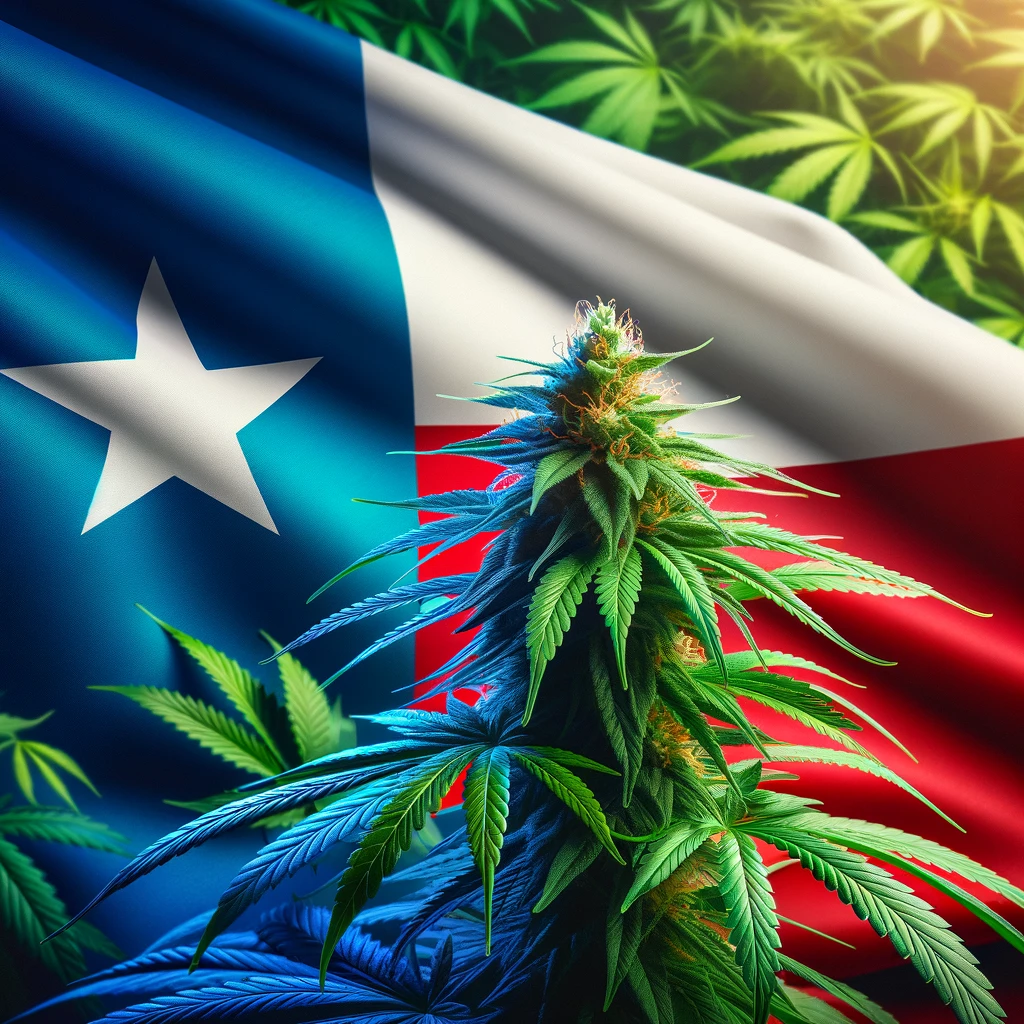
The short quick answer as of 2024: CBD products are legal in Texas if they comply with state and federal laws regulating manufacture and sale of such products.
Continue reading Is CBD Legal In Texas?While the Farm Bill provides a federal framework, the intricacies of CBD regulation are often left to individual states, leading to a patchwork of laws that can be confusing for consumers and producers alike.
Is CBD Possession Legal in All 50 States? The legality of possessing CBD isn’t a straightforward matter and varies significantly across the United States. In some states, CBD is freely accessible and legal without restrictions. In contrast, others impose stringent conditions or outright prohibit its possession. The legal status of CBD in any given state often depends on its source (hemp vs. marijuana) and the presence of THC, the psychoactive compound in cannabis.
Is Full Spectrum CBD Legal In All States? Full spectrum CBD, which includes a range of cannabinoids such as CBN, CBG, and a small percentage of THC (up to 0.3% by weight), occupies a unique legal status. While the 2018 Farm Bill federally legalized hemp-derived CBD with up to 0.3% THC, the on-the-ground reality is more complex.
The distinction between hemp-derived and marijuana-derived CBD is crucial here. Federally, hemp (defined as cannabis with 0.3% or less THC) and its derivatives like full spectrum CBD are legal. However, marijuana and products derived from it, containing higher THC levels, remain illegal under federal law.
Despite the federal green light on hemp-derived CBD, states can and do set their own rules. Some states align with the federal stance, allowing the sale and possession of full spectrum CBD without much fuss. Others have stricter regulations, placing limitations on the type of CBD products that can be legally sold and possessed, even if the THC content is within the 0.3% federal threshold.
Navigating the legal landscape of CBD in the U.S. requires an understanding of both federal guidelines and state-specific regulations, which can vary widely and change frequently. Read more right here:

The short quick answer as of 2024: CBD products are legal in Texas if they comply with state and federal laws regulating manufacture and sale of such products.
Continue reading Is CBD Legal In Texas?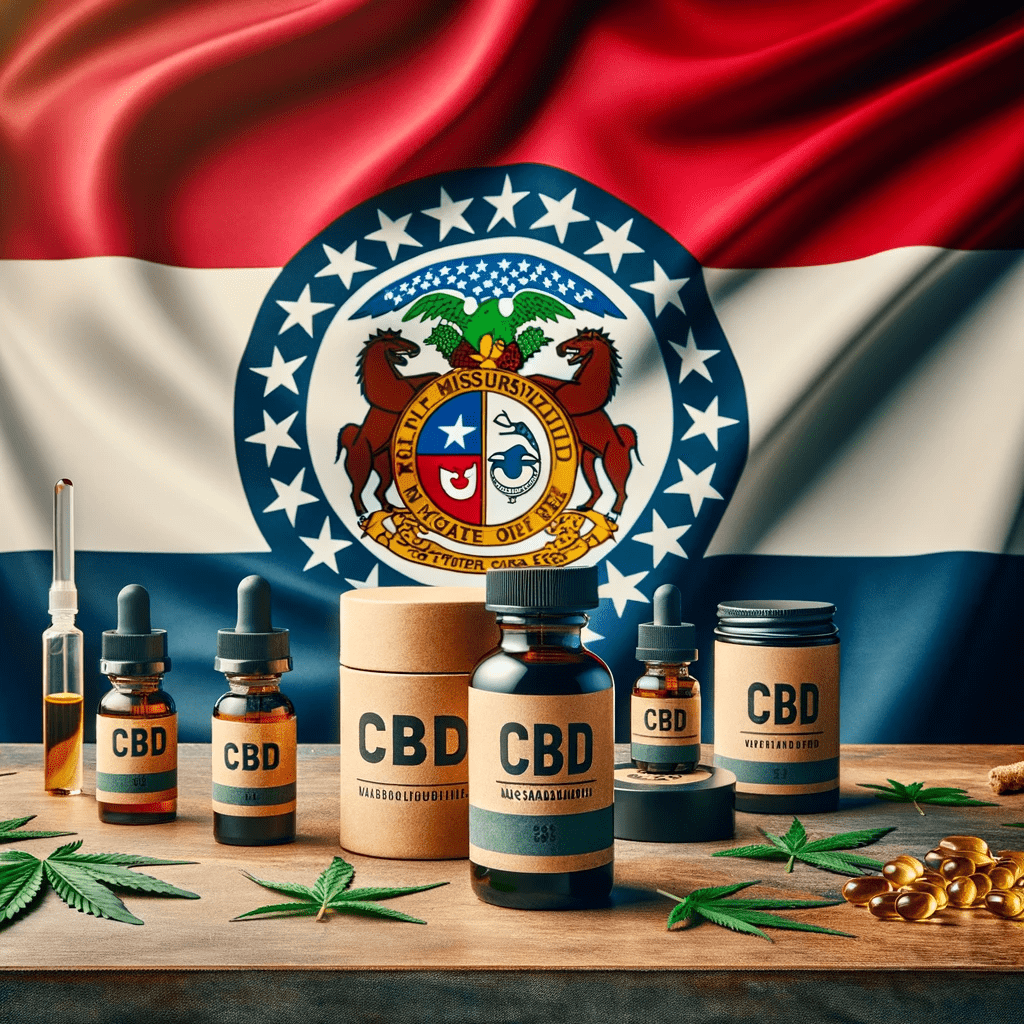
Missouri, with its beautiful Ozark Highlands, mysterious caves, and of course the iconic St. Louis Arch, is not just a place to go see the historical landmarks. It’s also a state where you can legally enjoy CBD in foods and drinks.
Continue reading Is CBD Legal in Missouri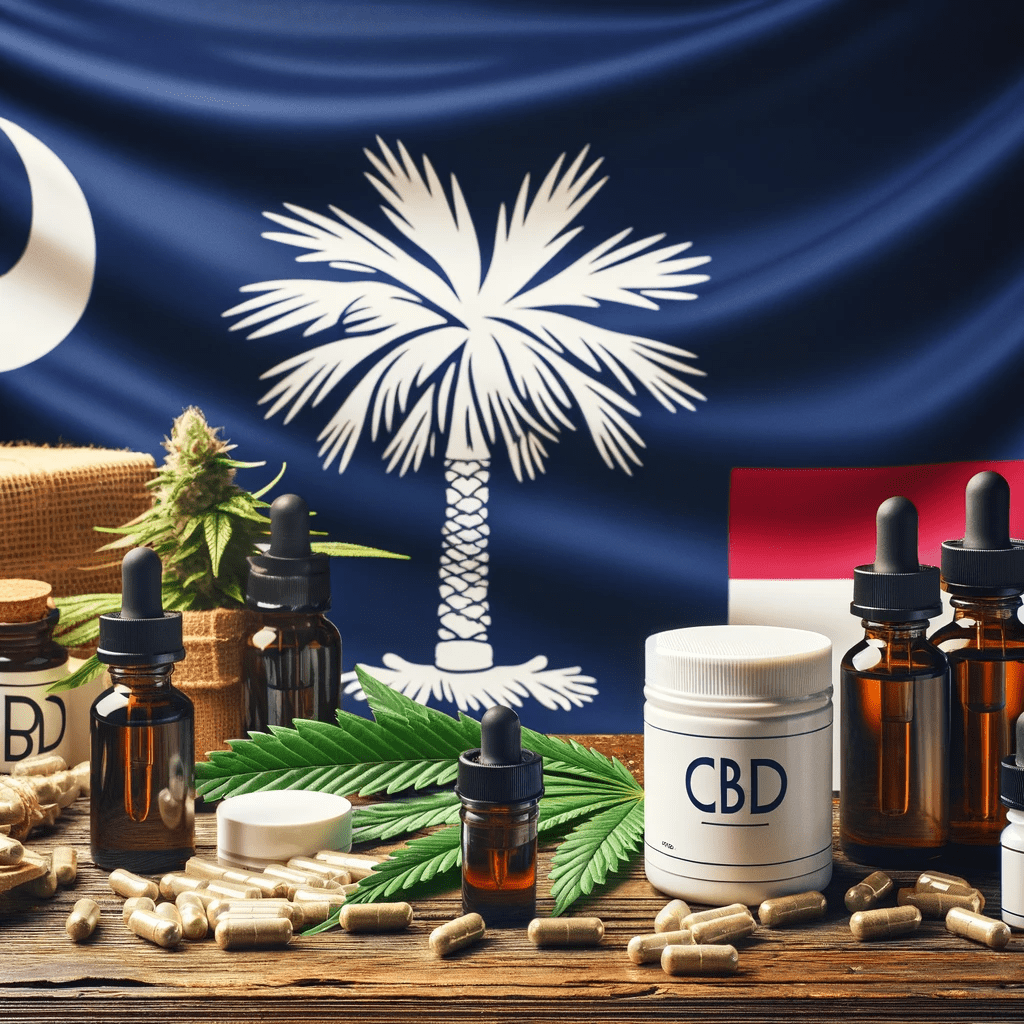
South Carolina: A Quick Guide to CBD Laws
South Carolina is known for its BBQ, sunny beaches, and welcoming atmosphere. Can you use CBD there? Yes, but there are important rules to know.
In South Carolina, CBD oil is legal for both health and fun. But, it must have less than 0.3% THC (the part that makes you feel high). You can’t call CBD a food supplement, and it’s not allowed in food either.
Continue reading Is CBD Legal in South Carolina?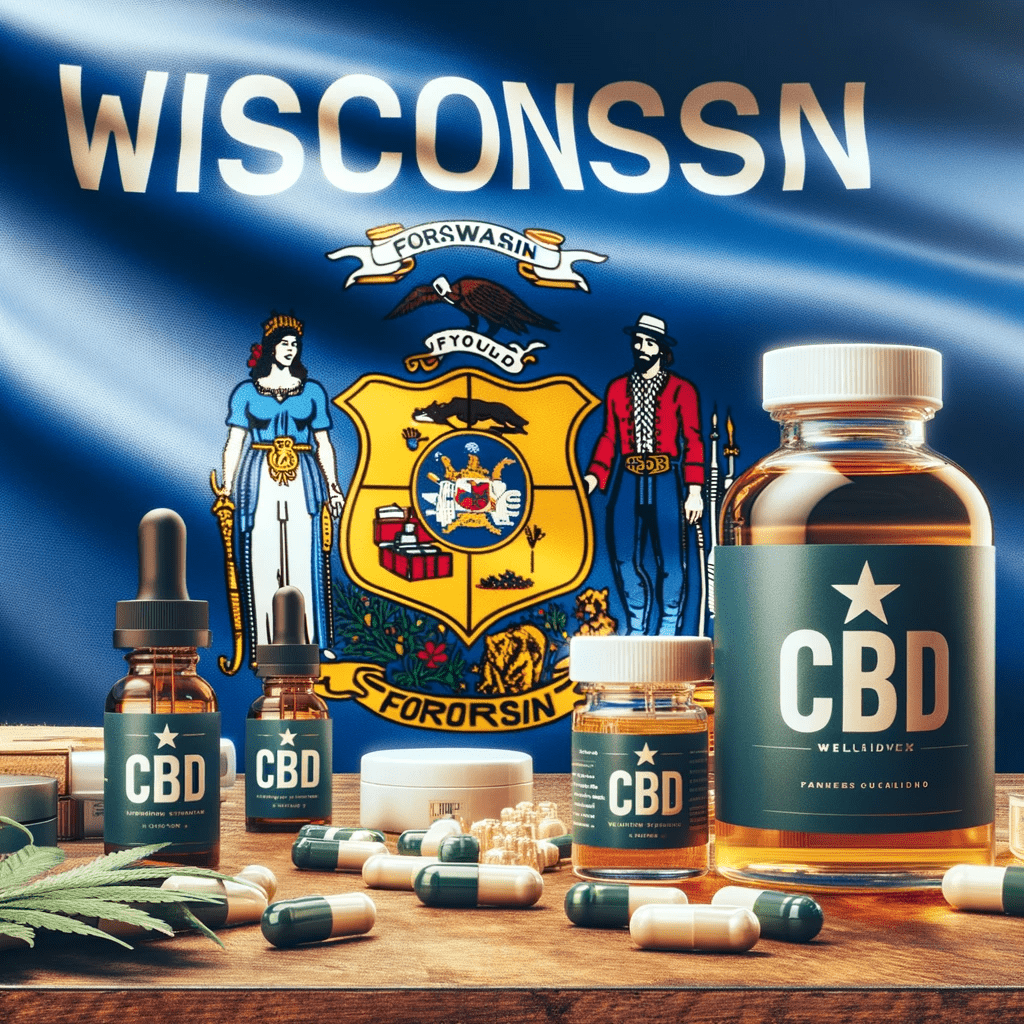
Wisconsin, famous for the Green Bay Packers and thrilling snowmobile races, is nestled between two majestic Great Lakes and boasts a myriad of activities for locals and tourists alike. But what’s the stance on CBD in this vibrant state? According to the 2017 Wisconsin Act 100, updated by the 2018 US Farm Bill, residents are free to grow, sell, and enjoy CBD products from industrial hemp, provided they contain no more than 0.3% THC.
Continue reading Is CBD Legal in Wisconsin?
Are you on the hunt for the best CBD cream in California? Look no further! California offers a plethora of options for purchasing top-quality CBD creams. Whether you’re seeking relief from muscle soreness, joint pain, or just looking to nourish your skin, the Golden State has got you covered. Let’s dive into the fantastic world of CBD creams in California and explore the top picks that will leave you feeling rejuvenated and refreshed.
Continue reading Buy CBD Cream in CaliforniaCBD, short for cannabidiol, has gained significant attention in recent years for its potential health benefits. There is often confusion surrounding the legal status of CBD in specific states. In the case of Illinois, it is essential to understand the regulations in place before purchasing or using CBD products. This article aims to provide clarity on the legal status of CBD in Illinois and guide readers through the current laws and regulations. information on where to purchase CBD products and the restrictions and requirements imposed by the state will also be covered. Let’s delve into the details surrounding the legality of CBD in Illinois and empower individuals to make informed decisions.
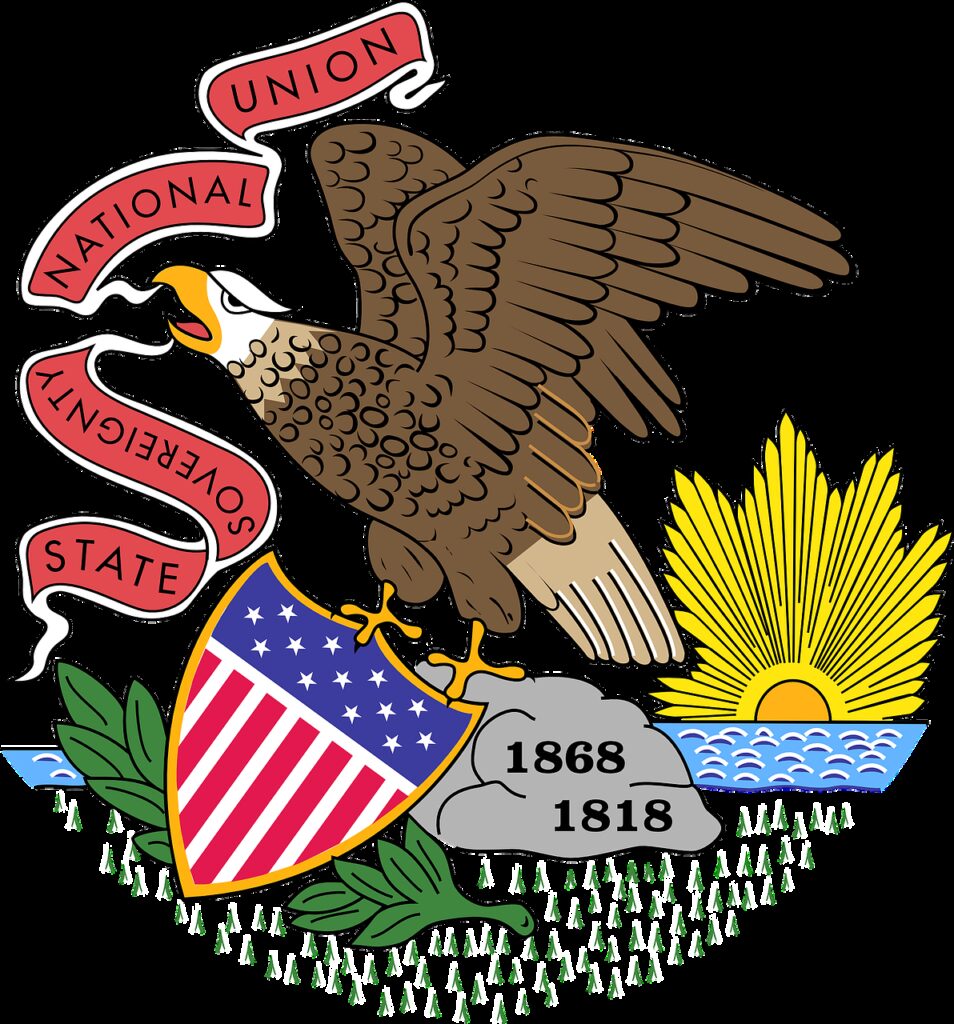
CBD is legal in Illinois if it contains less than 0.3% THC, the psychoactive compound in cannabis. The state allows the cultivation, sale, and use of CBD products that meet this criteria. It is important to have a clear understanding of the legal status of CBD. It is advisable to research the specific laws in your location, as the legality of CBD may vary in other states. To ensure compliance with the law and to guarantee quality, it is recommended to purchase CBD products from reputable sources. Obtaining a proper understanding of the legal status of CBD empowers individuals to make informed decisions about its use.
CBD, also known as cannabidiol, is a compound that can be found in the cannabis plant. It is one of the many cannabinoids present in the plant, each with their own unique effects on the body. Unlike THC, another well-known cannabinoid, CBD does not produce a sensation of being “high.” This characteristic has contributed to CBD gaining popularity, as it is considered to have potential therapeutic benefits.
Research indicates that CBD may possess properties that are anti-inflammatory, analgesic, and anxiety-relieving. It has been utilized to alleviate symptoms associated with conditions such as chronic pain, epilepsy, and anxiety disorders. CBD is available in various forms, including oils, tinctures, capsules, and topicals.
It is essential to note that CBD can be derived from either hemp or marijuana. When sourced from hemp, CBD that contains less than 0.3% THC is legal on the federal level in the United States. It is essential to be aware that the legal status of CBD can vary depending on the state. In Illinois, for example, CBD derived from hemp is legal, while CBD derived from marijuana is only permissible for medical marijuana patients.
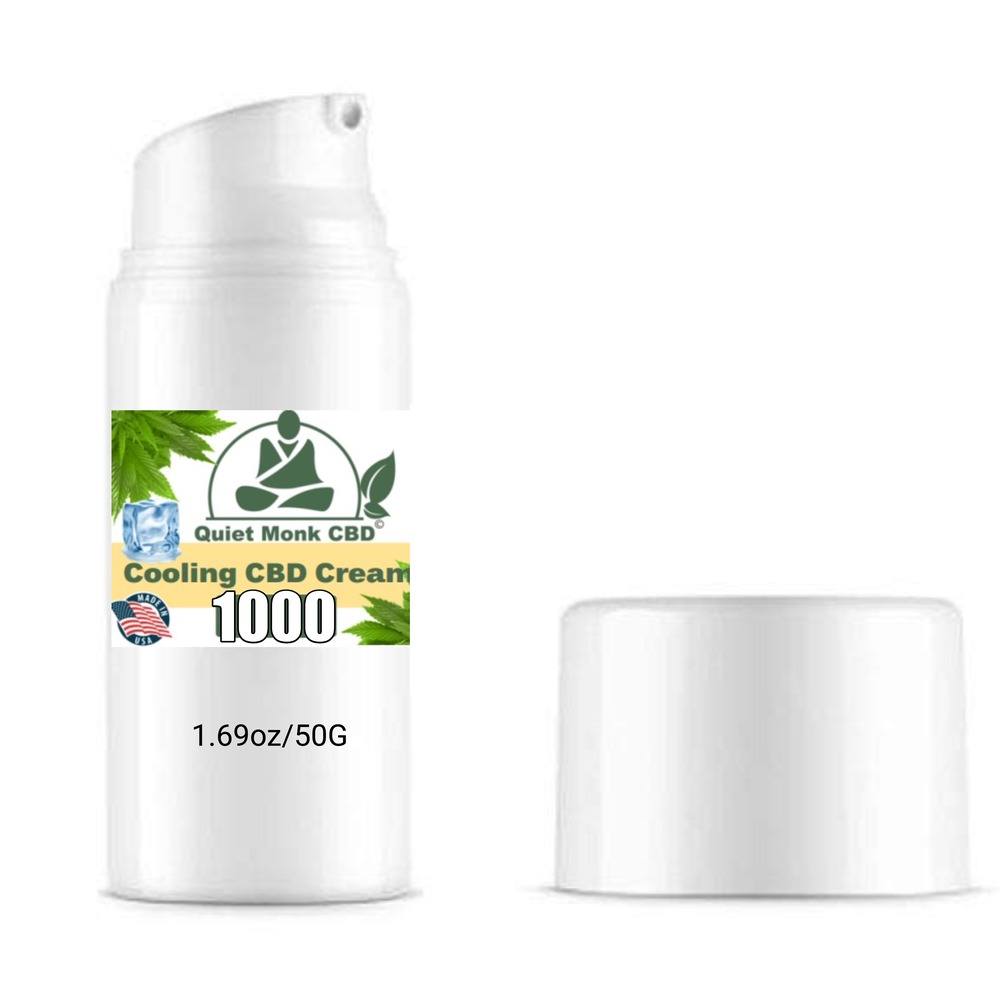
The legalization of CBD in the United States is a significant development. CBD, or cannabidiol, is derived from the cannabis plant and is popular for its potential health benefits. It is important to note that the legality of CBD in the United States depends on its source.
CBD derived from hemp is federally legal in the United States thanks to the 2018 Farm Bill, which removed hemp from the Controlled Substances Act. This allows for the legal cultivation, production, and sale of hemp-derived CBD products. Hemp-derived CBD must have less than 0.3% THC, the psychoactive compound in cannabis.
On the other hand, the legality of CBD derived from marijuana varies by state. Some states have legalized marijuana for both medical and recreational use, while others have only legalized it for medical purposes. In states where marijuana is legal, CBD derived from marijuana is also legal.
It is important to understand the specific laws regarding CBD in each state, including Illinois, to ensure compliance with local regulations. In Illinois, CBD derived from hemp is legal, but CBD derived from marijuana is only legal for medical purposes. Consumers can purchase CBD from authorized dispensaries or retail stores.
Current laws and regulations in Illinois regarding CBD are as follows:
Fact: Illinois has created a well-regulated CBD market, providing consumers with access to safe and legal CBD products.
CBD derived from hemp is indeed legal in Illinois. Thanks to the 2018 Farm Bill, hemp has been removed from the list of controlled substances and is now considered an agricultural commodity. Consequently, CBD derived from hemp can be legally possessed, sold, and consumed in Illinois, as long as it contains less than 0.3% THC.
In Illinois, the cultivation and processing of hemp are regulated by the Department of Agriculture, while the licensing of dispensaries and retailers selling CBD products falls under the jurisdiction of the Department of Financial and Professional Regulation.
It is important to be aware that the FDA has not yet approved CBD as a food additive or dietary supplement. Therefore, it is crucial to purchase CBD products from reputable sources that offer third-party lab testing to ensure both product safety and accurate labeling.
Allow me to introduce you to Sarah, a resident of Illinois who experienced chronic pain due to a medical condition. After thorough research, Sarah decided to give CBD derived from hemp a try. She consulted her doctor and purchased a CBD oil from a licensed dispensary. Fortunately, Sarah found significant relief from her pain by using the CBD oil and was able to effectively manage her symptoms. Sarah truly appreciates the legalization of CBD derived from hemp in Illinois, as it granted her a natural alternative for pain management.
CBD derived from marijuana is legal in Illinois for adults aged 21 and older. It can be purchased from state-licensed dispensaries, but it is illegal to buy from unauthorized sources. It is important to purchase from a licensed dispensary to ensure the product meets safety and quality regulations.
Looking to get your hands on some CBD in Illinois? Wonder no more! This section has got you covered with all the deets on where to purchase CBD in the Land of Lincoln. From dispensaries boasting a wide range of products to retail stores catering to CBD enthusiasts, we’ll explore the hotspots that offer this popular cannabinoid. So, whether you prefer the expertise of a dispensary or the convenience of a retail store, we’ll help you navigate your way towards your CBD purchase in Illinois. Let’s dive in!
When purchasing CBD in Illinois, you have two options: dispensaries and retail stores.
Dispensaries specialize in selling cannabis products, including CBD. They are regulated by the state and require customers to show proper identification and medical marijuana cards if applicable. Dispensaries offer a range of CBD products, such as tinctures, edibles, topicals, and more. Some dispensaries may only serve customers registered in the state’s medical marijuana program.
Retail stores in Illinois now carry CBD products, including health food stores, vape shops, and convenience stores. Customers do not need a medical marijuana card to purchase products at retail stores. It is advisable to check the reputation and quality of the brand before making a purchase.
If you want a wide selection of CBD products and expert advice, dispensaries are a good option. If convenience and accessibility are important to you, retail stores may be more suitable. Remember to research, read reviews, and ensure that the products you are considering meet your specific needs and preferences.
Retail stores are essential for the availability of CBD products in Illinois. They offer a convenient option for consumers to purchase CBD.
Retail stores, including health food stores and specialty CBD shops, have a wide variety of CBD products such as oils, capsules, edibles, and topicals. These stores cater to different preferences and needs, ensuring that customers have a range of options.
When shopping at retail stores, it is crucial to ensure that CBD products come from reputable manufacturers and have accurate labeling with CBD content and ingredients. Retailers should also provide information on testing and quality control measures for product safety and effectiveness. Purchasing from trusted retail stores gives customers confidence in the quality and legality of the CBD products they purchase.
The CBD market has experienced significant growth in recent years, and retail stores have played a vital role in meeting the growing demand. With the expansion of the industry, more retail stores are expected to offer CBD products, giving consumers more options and easier access. When buying CBD in Illinois, it is advisable to visit retail stores that specialize in CBD products to find the right product for your specific needs.
Discover the ins and outs of CBD in Illinois as we uncover the restrictions and requirements surrounding its usage. From age limitations to the state’s medical marijuana program and the stringent labeling and testing regulations, we’ll dive into the details you need to know. So, whether you’re a user or simply curious, we’ve got you covered with all the essential information on CBD in Illinois.
In Illinois, age restrictions exist for purchasing and consuming CBD products. It is important to follow these regulations to comply with the law. Minors under 21 cannot buy or possess CBD products in Illinois. This applies to both hemp-derived and marijuana-derived CBD.
These age restrictions protect the well-being of minors and ensure responsible use of CBD products. Retail stores and dispensaries must check ID to confirm customers’ age before selling CBD products.
Illinois enforces age restrictions to prevent minors from accessing CBD, as its effects on developing brains are still being studied. It is crucial for parents and guardians to be aware of and educate their children about these age restrictions and the potential risks and benefits of CBD.
The Medical Marijuana Program in Illinois provides medical cannabis for qualifying patients. Here are important details about the program:
The program’s goal is to provide safe access to medical cannabis. Patients should be aware of the program’s regulations to comply with them.
The labeling and testing requirements are essential for consumer safety and product transparency in Illinois. The Illinois Department of Agriculture mandates that all CBD products sold in the state must be properly labeled and tested.
In terms of labeling requirements, the product’s name, net weight or volume, and ingredient list must be included. It should clearly state whether the product is derived from hemp or marijuana. The label must also feature a scannable QR code or web address that provides detailed information about the product’s testing results, including the levels of THC, CBD, and other cannabinoids. Any warnings or precautions for use should be included on the label.
Turning to testing requirements, CBD products in Illinois must undergo testing by a certified laboratory to ensure adherence to quality and safety standards. The testing should encompass potency, contaminants, and consistency. Potency testing guarantees that the CBD content matches the label claims while also ensuring that the THC levels are within the legal limit. Contaminant testing checks for the presence of pesticides, heavy metals, and solvents, thereby guaranteeing product safety. Consistency testing ensures that each batch of product is uniform in content and quality.
By adhering to these labeling and testing requirements, consumers can make well-informed decisions regarding the CBD products they purchase, knowing that they are safe and accurately labeled. It allows for regulatory oversight and quality control in the CBD industry in Illinois.
Yes, CBD is legal in Illinois. The state has passed several laws regarding CBD, including the Illinois Industrial Hemp Act and the Cannabis Regulation and Tax Act, which legalized hemp-derived CBD products with less than 0.3% THC and cannabis for both recreational and medicinal purposes, respectively.
Yes, Illinois legalized recreational marijuana in January 2020. Adults aged 21 and older can purchase marijuana from state-licensed dispensaries and possess up to one ounce of marijuana and 500 mg of THC in marijuana-infused products.
No, CBD should not result in a false positive on a drug test as long as it contains 0.3% THC or less. THC and its metabolites can show up on a drug test if present in the body.
CBD products can be purchased over the counter without a medical marijuana card in Illinois. They are widely available at licensed dispensaries, health food stores, online, and other retailers.
To use medical marijuana in Illinois, individuals must have a valid ID card, a medical marijuana card, and a licensed physician’s recommendation. The state has a list of eligible medical conditions for which CBD is permitted.
Registered patients in Illinois can grow up to 5 marijuana or CBD-rich hemp plants at home. The state allows the cultivation and processing of industrial hemp with the proper licenses and permits.
This is not legal advice. Please consult with your State and local laws.
Now, in the context of Idaho, it’s crucial to understand the state’s specific laws and regulations surrounding CBD. According to Idaho state laws, CBD, regardless of its source, is illegal. This means that both CBD derived from hemp and CBD derived from marijuana are prohibited in the state.
There are restrictions on CBD in Idaho, and possession or use of CBD products without a prescription is not permitted. there are limitations on the THC content in CBD creams and oils in accordance with Idaho law.
It’s essential to be aware of the potential consequences of possessing or using CBD in Idaho. Legal penalties can apply, and enforcement may result in confiscation of CBD products.
Understanding the legality of CBD in Idaho is crucial to ensure compliance with state laws and regulations. It’s important to stay informed and consult legal resources to navigate the complex landscape of CBD regulations in Idaho.
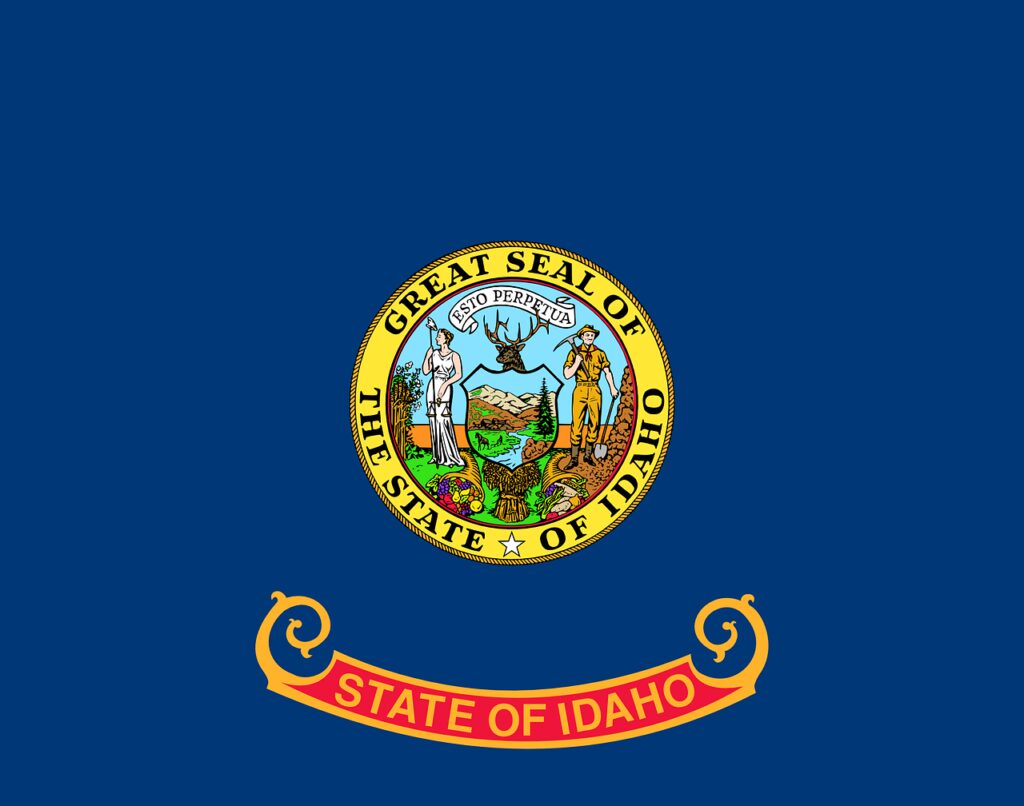
Understanding CBD legality is crucial when it comes to staying informed about laws and regulations in your area. In the United States, thanks to the 2018 Farm Bill, hemp and hemp-derived CBD products with less than 0.3% THC are now legal. It’s important to note that individual states can have their own CBD laws, so it’s essential to research and comply with local regulations. Gaining a clear understanding of CBD legality empowers you to make well-informed decisions when purchasing and using CBD products.
Back in 1970, cannabis was classified as a Schedule I drug, making it illegal at the federal level in the United States. Over time, attitudes towards cannabis and CBD have evolved. The change began with the legalization of medical marijuana in California in 1996, subsequently followed by other states permitting cannabis for medicinal purposes. Then, in 2018, the Farm Bill legalized hemp and hemp-derived CBD products at the federal level. This significant development created new opportunities for CBD research, development, and accessibility, potentially unlocking various health benefits.
The legal status of CBD in the United States is a topic that can be quite complex and may vary depending on federal and state laws. So, what exactly is the legal status of CBD in the United States?
Well, at the federal level, CBD is considered legal if it is derived from hemp and contains no more than 0.3% THC. This was made possible by the 2018 Farm Bill, which removed hemp and its derivatives from the controlled substances list.
It is important to note that individual states have the authority to establish their own laws regarding CBD legality. This means that some states choose to align with federal regulations and permit the sale and use of CBD derived from hemp. On the other hand, there are states with stricter regulations that either make CBD illegal or restrict its availability to those with a prescription.
To determine the legal status of CBD in a specific state, it is crucial to conduct thorough research and understand the state laws. While the acceptance and availability of CBD products are generally increasing, it is necessary to stay informed about the legal requirements and restrictions in your state. Compliance with these laws is vital in order to avoid potential legal penalties or the confiscation of CBD products.
CBD, or cannabidiol, is illegal in Idaho due to the state’s strict cannabis laws.
Idaho views CBD as a controlled substance, regardless of its THC content.
Therefore, possessing, selling, or distributing CBD products is prohibited in the state, including both hemp-derived and marijuana-derived CBD.
Individuals found with CBD in Idaho may face legal consequences.
If you are in Idaho and seeking alternative health and wellness options, it is advisable to consult a healthcare professional for guidance on legal and safe alternatives.
Is CBD legal in Idaho? They can provide customized information and recommendations based on your specific needs and circumstances.
Remember, laws can change, so it is crucial to stay informed about the legal status of CBD in your state.
It is also important to research and understand CBD laws and regulations before traveling to other states.
Is CBD legal in Idaho?
Understanding Idaho State Laws regarding CBD is important for residents and potential users of CBD products in the state.
1. CBD derived from hemp is legal in Idaho if the THC content is less than 0.3%. It is important to ensure that CBD products do not exceed this legal limit.
2. CBD derived from marijuana is illegal in Idaho because marijuana is classified as a Schedule I controlled substance.
3. CBD products can be purchased without a prescription in Idaho if they are derived from hemp and contain less than 0.3% THC.
4. CBD products sold in Idaho must contain no more than 0.3% THC to be considered legal.
It is crucial to understand these laws to comply with regulations and avoid potential legal troubles when using CBD products in Idaho.
Fact: Idaho has strict regulations on CBD, and it is one of the few states where CBD derived from marijuana is illegal.
CBD derived from hemp is legal in Idaho. The state follows federal law on hemp-derived CBD products. The 2018 Farm Bill legalized hemp and hemp-derived products with less than 0.3% THC. Hemp-derived CBD products meet this requirement, so they are legal in Idaho.
Marijuana-derived CBD is not legal in Idaho. Marijuana is a Schedule I controlled substance, and possession or use of marijuana and marijuana-derived CBD is illegal.
When buying CBD products in Idaho, make sure they are derived from hemp and have low THC levels. Also, buy from reputable sources and check for third-party lab testing to ensure product quality and legality.
CBD derived from marijuana is illegal in Idaho. In accordance with Idaho state laws, all forms of marijuana, including CBD derived from marijuana, are classified as illegal substances. Possessing or using CBD derived from marijuana in Idaho can lead to legal penalties and enforcement actions. It is important to note that Idaho does not have a medical marijuana program, therefore there are no exceptions for its medical use.
The restrictions on CBD derived from marijuana in Idaho are strict and do not differentiate between CBD derived from marijuana and other forms of marijuana. As a result, the possession, use, and sale of CBD products containing any level of THC, even trace amounts, are prohibited.
To fully understand the legal status, it is crucial to distinguish between CBD derived from hemp and CBD derived from marijuana. CBD derived from hemp contains very low levels of THC and is federally legal. Conversely, CBD derived from marijuana has higher levels of THC and is considered illegal in Idaho.
“What Are the Restrictions on CBD in Idaho?
CBD is heavily restricted in Idaho. The state has strict restrictions on the use and sale of CBD products, regardless of their THC content. Idaho does not have specific provisions for medical or recreational use of CBD. It is important to note that federal regulations allowing the sale and use of CBD products with less than 0.3% THC do not apply in Idaho. Possession, sale, and use of CBD oil in any form, including hemp-derived CBD, is illegal in Idaho. Therefore, individuals in Idaho cannot legally access the potential health benefits of CBD products.
Idaho has historically maintained conservative cannabis laws and has not been open to relaxing restrictions on CBD. Despite the increasing acceptance and legalization of CBD in other states, Idaho remains steadfast in its restrictions. Individuals in Idaho need to be aware of the legal consequences and limitations regarding CBD, as the state’s stance on CBD may not align with federal regulations or neighboring states’ laws.”
In Idaho, CBD cannot be purchased without a prescription. Idaho strictly prohibits the possession, sale, and use of CBD products, regardless of whether they are derived from hemp or marijuana, without a valid prescription from a registered practitioner. Therefore, it is essential to be aware that the recreational or medicinal use of CBD is not legalized in Idaho.
These stringent restrictions are put in place to prevent any potential misuse or abuse of CBD products and uphold Idaho’s firm stance on marijuana and its derivatives. Individuals residing in Idaho must abide by these laws to avoid facing legal consequences. It is crucial to understand that possessing or using CBD without a prescription can result in fines, potential confiscation of the CBD products, and other penalties. To ensure compliance with Idaho’s laws, it is advisable to consult with a healthcare professional or legal expert before purchasing or using CBD.

There are THC limits in CBD products in Idaho. CBD products must have less than 0.3% THC to be legal in Idaho as per federal regulations outlined in the 2018 Farm Bill.
These limits differentiate CBD products from marijuana, which is illegal in Idaho due to higher THC levels. By keeping THC content below 0.3%, CBD products can be legally sold and used in the state.
Consumers should be aware of the THC content in the CBD products they purchase. Always check product labels and third-party lab test results to ensure compliance with legal limits.
This information will help you make an informed decision and avoid legal issues. Choose CBD products that meet the legal requirement of less than 0.3% THC to comply with the law and enjoy the potential benefits of CBD without psychoactive effects.
Remember to always verify the THC content when purchasing CBD products and consult with a healthcare professional for guidance on CBD usage.
Did you know that possessing or using CBD in Idaho can have potential consequences? In this section, we will explore the legal penalties and the enforcement measures surrounding CBD in Idaho. We’ll also dive into the topic of confiscation and how it relates to CBD usage. Get ready to uncover the legal landscape surrounding CBD in Idaho and the potential outcomes you need to be aware of.
Possessing or using CBD products in Idaho can lead to legal consequences. Idaho state law makes it illegal to possess any amount of THC, the psychoactive compound found in marijuana. This means that even CBD products with trace amounts of THC can result in legal penalties. If caught possessing or using CBD in Idaho, individuals may face fines, probation, or imprisonment, depending on the severity of the offense and their prior criminal record. It’s important to note that possession and use of CBD derived from hemp, which contains less than 0.3% THC, is still considered illegal in Idaho. Law enforcement actively enforces these laws and confiscates CBD products that violate state regulations.
Suggestions:
– Familiarize yourself with your state’s CBD laws to avoid legal penalties.
– Consult with a legal professional if you have doubts about the legality of CBD in your area.
– Be cautious when purchasing and using CBD products, ensuring they comply with local regulations and contain minimal or no THC.
– CBD laws in Idaho are enforced seriously.
– Using or possessing CBD products with any THC can lead to legal consequences.
– Idaho law enforcement has the authority to confiscate non-compliant CBD products.
– The enforcement actions may vary, but penalties can include fines, probation, or imprisonment.
Pro-tip: Before using or buying any CBD products, it is crucial to understand Idaho’s CBD laws and regulations. Make sure to familiarize yourself with specific restrictions and seek legal advice if needed to comply and avoid enforcement and confiscation issues.
Yes, CBD is legal in Idaho as long as it contains zero THC and is derived from the mature stalks of the plant. Possession of CBD in Idaho has no limits as long as it follows state guidelines.
Possession of marijuana in Idaho carries severe penalties, including felony charges.
Yes, CBD oil can be purchased in physical stores in Idaho. It is important to research the product’s legality before purchasing.
Yes, purchasing CBD oil online in Idaho is legal. Online stores often offer better prices, a wider selection, and the ability to research the company’s credibility.
No, CBD oil is not considered a controlled substance in Idaho if it meets specific conditions regarding THC content and derivation.
It is recommended to buy CBD oil from licensed stores and sellers to avoid legal problems. It is also important to check if the CBD oil has been tested by an outside lab, avoid companies making outrageous claims, choose CO2-extracted CBD, look for full-spectrum CBD, and opt for organic hemp.
This page is not meant to be legal advice. Pleas consult a lawyer and your local and state laws for accurate up-to-date information.
Hawaii has different regulations for CBD derived from hemp and CBD derived from marijuana. CBD derived from hemp, which contains less than 0.3% THC (the psychoactive compound in cannabis), is legal in Hawaii. On the other hand, CBD derived from marijuana, which contains more than 0.3% THC, is regulated differently.
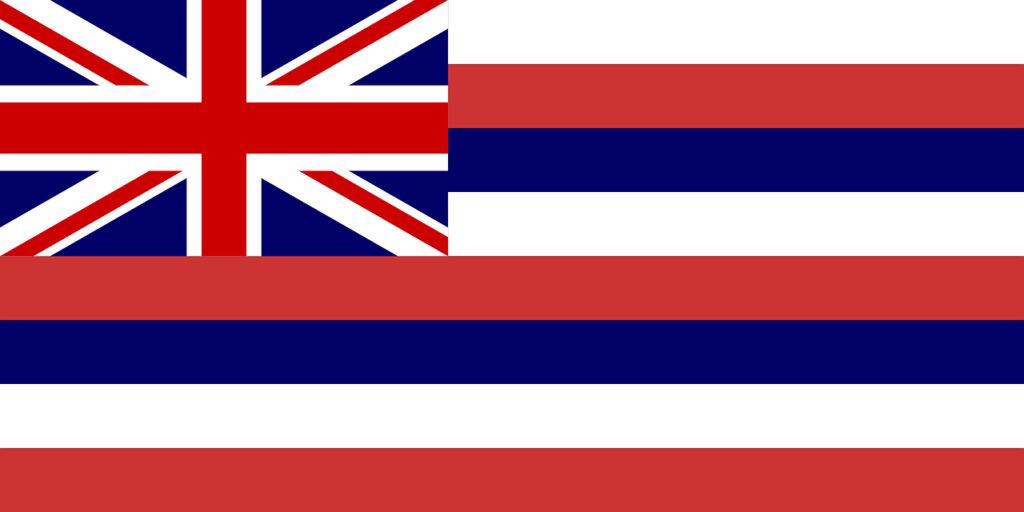
To fully grasp the legal framework surrounding CBD in Hawaii, it is crucial to examine the regulations and restrictions imposed by the state. This includes understanding where CBD can be purchased legally and the potential health benefits associated with its usage. By the end of this article, readers will have a comprehensive understanding of whether CBD is legal in Hawaii and the factors that contribute to its legality.
An overview of CBD can help you understand its uses and benefits. Here are some important facts about CBD:
While CBD has shown promise in various studies, more research is needed to fully understand its potential benefits and long-term effects. It is always advisable to purchase CBD products from reputable sources and ensure they undergo third-party testing for quality and purity.
The current legal status of CBD in Hawaii is regulated by both state and federal laws. In Hawaii, CBD derived from hemp is legal for both medicinal and recreational use, as long as it contains less than 0.3% THC. CBD derived from marijuana, however, is only legal for medical use and requires a prescription from a registered healthcare provider.
Under the federal law, CBD products derived from hemp were legalized with the passage of the 2018 Farm Bill. This legislation removed hemp from the list of controlled substances, allowing for the production and sale of hemp-derived CBD products across the country.
In Hawaii, residents and visitors can find a wide range of CBD products, including oils, tinctures, edibles, topicals, and more. However, it is important to purchase CBD products from reputable sources to ensure their quality and legality.
It is worth noting that the regulations regarding CBD are constantly evolving, and it is important to stay informed about any changes in the legal status. As of now, CBD derived from hemp is legal in Hawaii, but it is always a good idea to consult with local laws or legal professionals for the most up-to-date information.
Amy, a Hawaii resident, had been struggling with chronic pain due to a sports injury. She had heard about the potential benefits of CBD for pain relief and decided to give it a try. However, she was unsure about the legal status of CBD in Hawaii and wanted to make sure she was in compliance with the law.
Amy did some research and discovered that CBD derived from hemp was legal in Hawaii as long as it contained less than 0.3% THC. She found a trusted local CBD retailer who provided lab reports to ensure the quality and legality of their products.
After using CBD for a few weeks, Amy noticed a significant reduction in her pain levels. This allowed her to enjoy activities she had previously been unable to participate in. She was grateful for the legal access to CBD in Hawaii and the positive impact it had on her well-being.
Amy now recommends CBD to her friends and family who are also struggling with chronic pain, always reminding them to do their own research and purchase from reputable sources.
Yes, CBD derived from hemp is legal in Hawaii. In 2014, the state adopted the federal Farm Bill, which legalized the production and sale of hemp-derived CBD products containing less than 0.3% THC. This means that as long as the CBD product meets this THC threshold and is derived from hemp, it is considered legal in Hawaii.
It should be noted that the legal status of CBD derived from marijuana is different. In Hawaii, marijuana is decriminalized for medical use, but it is still illegal for recreational use. Therefore, CBD derived from marijuana is only legal for qualified medical patients who have obtained a medical marijuana card.
The regulations and restrictions on CBD in Hawaii primarily focus on labeling and testing requirements. CBD products, whether derived from hemp or marijuana, must be properly labeled with accurate information regarding CBD content, THC content, and other ingredients. Additionally, these products are subject to testing for purity and potency to ensure consumer safety.
If you are looking to purchase CBD products in Hawaii, there are various options available. You can find CBD products in licensed dispensaries for medical marijuana patients. Additionally, many health and wellness stores, as well as online retailers, offer a wide range of hemp-derived CBD products, including oils, tinctures, edibles, and topicals.
As for the potential health benefits of CBD, research suggests that it may have therapeutic effects for various conditions, including chronic pain, anxiety, epilepsy, and inflammation. However, it is important to note that the FDA has not approved CBD for the treatment of any specific medical condition, and more research is needed to fully understand its benefits and risks.
In Hawaii, the legal status of CBD derived from marijuana is not straightforward. Is CBD derived from marijuana legal in Hawaii? While the state has legalized the use of medical marijuana, the laws surrounding CBD derived from marijuana are complex.
1. Possession and Use: It is legal for registered medical marijuana patients to possess CBD derived from marijuana in Hawaii. These patients can obtain CBD products from state-certified dispensaries, provided they have a valid medical marijuana card.
2. Recreational Use: The recreational use of marijuana, including CBD derived from marijuana, is illegal in Hawaii. Possession of marijuana without a valid medical marijuana card is considered a criminal offense.
3. Federal Law: It is important to note that even though medical marijuana is legal in Hawaii, CBD derived from marijuana is still considered illegal under federal law. This creates a conflict between state and federal regulations, which can lead to confusion and potential legal issues.
4. Legal Restrictions: CBD derived from marijuana is subject to strict regulations in Hawaii. It must be obtained from a state-licensed dispensary, and patients must adhere to dosage limits and other requirements set by the state’s medical marijuana program.
5. Legal Consequences: Possessing or using CBD derived from marijuana without a valid medical marijuana card can result in legal consequences, including fines and potential imprisonment. It is essential to understand the laws and regulations surrounding CBD derived from marijuana in Hawaii to avoid any legal complications.
Given the legal complexities and potential consequences, it is crucial to consult with a legal professional or healthcare provider before considering the use of CBD derived from marijuana in Hawaii. They can provide guidance on the legality and appropriate usage of CBD products based on individual circumstances.
When it comes to CBD regulations and restrictions in Hawaii, it’s important to stay informed to ensure you are complying with the law. Here are the key points to understand:
1. Legal Status: CBD is legal in Hawaii as long as it is derived from industrial hemp and contains no more than 0.3% THC, the psychoactive compound found in cannabis. Any CBD product that meets these criteria is considered legal for purchase, possession, and use.
2. Age Restrictions: In Hawaii, you must be at least 18 years old to purchase or possess CBD products. Retailers are required to verify the age of customers before selling CBD to them.
3. Licensing and Testing: CBD products sold in Hawaii must be produced by licensed manufacturers and undergo testing for safety and potency. This ensures that the products are free from contaminants and accurately labeled.
4. Labeling Requirements: CBD products in Hawaii must be properly labeled with information such as the CBD content, the THC content, and any other relevant ingredients. The labels should also include the name and contact information of the manufacturer or distributor.
5. Restrictions on CBD-infused Food and Beverages: As of now, CBD-infused food and beverages are not permitted for sale in Hawaii. However, there are ongoing discussions and potential changes to these regulations, so it is important to stay updated on any developments.
6. Medical CBD: Hawaii has a medical marijuana program that allows patients with qualifying conditions to access CBD products with higher THC levels. Medical CBD users must obtain a valid medical marijuana card to purchase and use these products.
7. Traveling with CBD: If you are traveling to Hawaii, it is important to note that CBD laws may vary from state to state. It is recommended to research and understand the specific regulations of both your departure and destination locations to ensure compliance.
For further information or clarification on specific CBD regulations in Hawaii, it is recommended to consult official government sources or legal professionals.
Remember to always prioritize your well-being and consult a healthcare professional before incorporating CBD into your routine.
Note: The information provided above is accurate as of the time of writing and is subject to change. Please refer to official sources for the most up-to-date information regarding CBD regulations in Hawaii.

CBD is legally available in Hawaii and can be purchased from various locations throughout the state. Where can you purchase CBD in Hawaii? Here are some places where you can find CBD products in Hawaii:
When purchasing CBD in Hawaii, it’s important to ensure that the products you choose are tested for quality and potency. Look for brands that provide third-party lab results to validate the CBD content and check for any potentially harmful contaminants.
Remember, it’s always a good idea to consult with a healthcare professional before incorporating CBD into your wellness routine, especially if you have any pre-existing medical conditions or are taking medications that may interact with CBD.

Yes, CBD is legal in Hawaii as long as it is hemp-derived and contains 0.0-0.3% THC. Medical marijuana, including cannabis-derived CBD, is also legal for those with a medical marijuana card.
There are no possession limits for hemp-derived CBD in Hawaii as long as it contains less than 0.3% THC. However, medical marijuana patients may have limitations under the medical marijuana program.
Yes, you can purchase CBD products in Hawaii. CBD can be purchased in person at hemp and CBD oil shops, mostly located in Honolulu on Oahu. Online CBD shopping is also available.
Yes, there are restrictions on selling CBD products in Hawaii. CBD products are not allowed to be sold in food, beverages, or cosmetics. It is important to ensure that you are purchasing from licensed sellers to avoid low-quality or fake products.
No, you do not need a prescription to buy CBD oil in Hawaii if it comes from hemp and contains less than 0.3% THC. However, medical marijuana patients with qualifying health conditions can obtain licensed doctors’ recommendations to use cannabis-derived CBD products.
CBD oil can be found at local stores in Honolulu and Hilo. However, it is recommended to buy CBD oil online in Hawaii, as online stores offer a wider selection of products and often have better prices.
This is not legal advice. Please consult with your State and local laws.
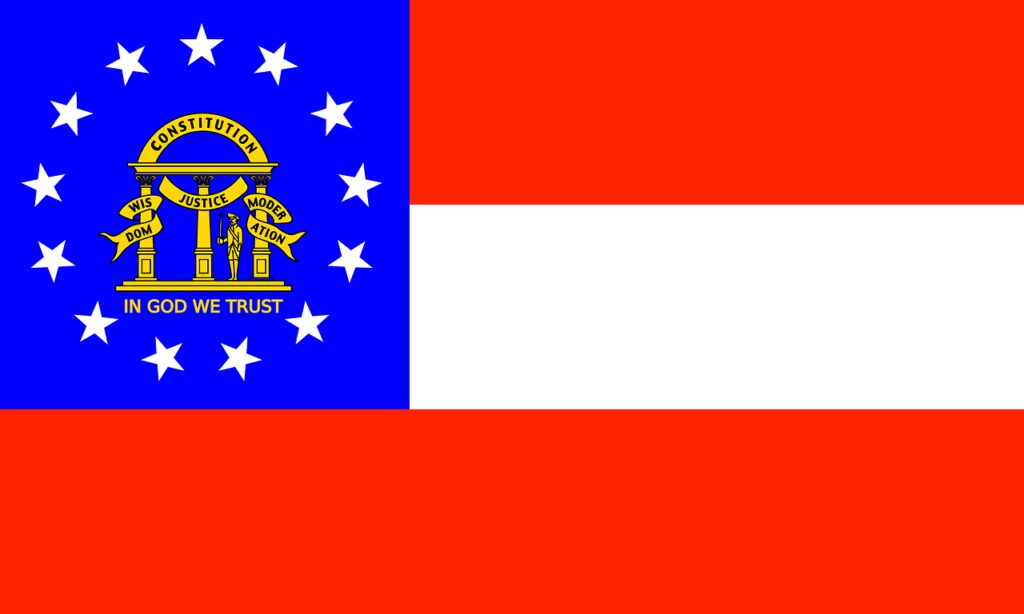
Before delving into Georgia’s specific legislation, it is important to understand the legal landscape of CBD in the United States. CBD’s legal status is a result of both federal and state laws. Federally, CBD extracted from hemp containing less than 0.3% THC (Tetrahydrocannabinol) is legal. Individual states, however, can have their own regulations regarding the possession, sale, and use of CBD.
Turning our attention to Georgia, we’ll examine the existing laws that govern CBD within the state. Currently, CBD is legal in Georgia, but there are certain considerations to keep in mind. This includes restrictions on THC content, which is the psychoactive component of cannabis, as well as specific conditions for legal possession and use of CBD.
If you are looking to purchase CBD in Georgia, it’s important to know where to find reliable sources. We’ll discuss the various avenues available for purchasing CBD products in the state.
We will touch upon any legal challenges and changes surrounding CBD in Georgia, including recent legislation updates and the potential future prospects for CBD in the state.
Before we proceed, it’s crucial to note that while this article aims to provide current and accurate information, laws regarding CBD can change. It’s advisable to consult legal resources and official authorities for the most up-to-date and precise information regarding the legality of CBD in Georgia.
What is CBD? CBD, or cannabidiol, is a natural compound found in the Cannabis sativa plant. It is one of over 100 cannabinoids present in the plant, and it is known for its potential therapeutic benefits.
CBD is extracted from the hemp variety of the cannabis plant, which contains only trace amounts of tetrahydrocannabinol (THC), the psychoactive compound associated with marijuana. This means that CBD does not produce a “high” or intoxicating effect.
Research has shown that CBD interacts with the body’s endocannabinoid system, which is involved in regulating various physiological processes such as pain perception, mood, appetite, and immune function. CBD is believed to influence this system, leading to potential health benefits.
Some of the potential benefits of CBD include:
It is important to note that while CBD shows promise in these areas, more research is needed to fully understand its potential benefits and the optimal dosages for different conditions. Additionally, CBD products are not regulated by the FDA, so it is crucial to choose products from reputable manufacturers that provide third-party lab testing to ensure purity and potency.

The legal status of CBD in the United States is a complex issue that can vary depending on multiple factors.
It is important to understand that the legal status of CBD is subject to change as laws and regulations continue to evolve. Before purchasing or using CBD products, it is recommended to thoroughly research and comprehend the specific laws and regulations in your state.
CBD, or cannabidiol, is federally legal in the United States as long as it is derived from hemp and contains no more than 0.3% THC. The 2018 Farm Bill legalized hemp and its derivatives, which includes CBD, at the federal level. This means that CBD products can be legally produced, distributed, and sold across the country.
It is important to note that the legality of CBD may vary at the state level. Some states may have additional restrictions or regulations on CBD products, so it is essential to familiarize yourself with the specific laws in your state.
While CBD is federally legal, it is crucial to choose CBD products from reputable sources. Look for companies that provide third-party lab testing to ensure the quality and potency of their products. Additionally, it is essential to read product labels and verify that they contain less than 0.3% THC.
When considering the legality of CBD, it is important to understand that CBD derived from marijuana, which contains more than 0.3% THC, is still considered illegal at the federal level. Only CBD derived from hemp is federally legal.
State laws and CBD play a crucial role in determining the legal status of CBD products. While federal legalization does not automatically make CBD legal in every state, it is important to understand the specific laws and regulations in your state before purchasing or using CBD.
Here are some key points to consider when it comes to state laws and CBD:
1. Legalization status: Each state has the authority to determine its own laws regarding CBD. Some states have fully legalized both medical and recreational use of CBD, while others have more restrictive laws or only allow medical use.
2. THC content restrictions: Many states have regulations in place that limit the amount of THC (the psychoactive compound in cannabis) allowed in CBD products. These restrictions ensure that CBD products contain low levels of THC and minimize the potential for abuse or intoxication.
3. Conditions for legal possession and use: States often specify certain conditions under which CBD can be legally possessed and used. This may include requirements such as having a medical prescription, being a registered patient in a state medical program, or meeting certain age restrictions.
4. Purchasing options: The availability of CBD products can vary from state to state. Some states have established dispensaries or licensed retailers where CBD products can be legally purchased. Online purchase options may also be available, but it is essential to ensure that the product complies with state laws and regulations.
5. Changes and updates: State laws regarding CBD are subject to change over time. New legislation may be introduced to expand or restrict access to CBD, so it is important to stay informed about any updates or changes that may occur.
Understanding state laws regarding CBD is crucial to ensure compliance and avoid legal issues. It is recommended to consult the specific laws and regulations of your state or seek legal advice if you have any concerns or questions.
Fact: As of June 2021, 36 states in the United States have legalized medical marijuana, while 18 states have passed legislation allowing recreational use.
Wondering about the legal status of CBD in Georgia? Let’s dive into the nitty-gritty of “Is CBD Legal in Georgia?” We’ll explore the current laws in Georgia that govern CBD, from the overview of regulations to restrictions on THC content. Plus, we’ll uncover the conditions for legal possession and use of CBD in this state. Get ready to unravel the facts and shed light on the legality of CBD in Georgia!
Georgia’s Current Laws on CBD: An Overview
It is important to stay updated on any changes in Georgia’s CBD laws, as they are subject to change. The non-medical use or possession of CBD without a medical marijuana card is illegal in Georgia. It is recommended to consult with a healthcare professional for guidance on using CBD for medical purposes in Georgia.
When it comes to CBD, it is important to be aware of the restrictions on THC content. Understanding these restrictions will help you navigate the legal landscape surrounding CBD products. Take a look at the table below to see the specific restrictions on THC content:
| State | Maximum THC Content |
|---|---|
| Alabama | 0.3% |
| Alaska | No limit |
| Arizona | 0.3% |
| Arkansas | 0.3% |
| California | No limit |
| Colorado | 0.3% |
| Connecticut | No limit |
| Delaware | 0.3% |
| Florida | 0.3% |
| Georgia | 5% (seizure disorders only) |
As you can see, different states have different restrictions on the maximum THC content allowed in CBD products. In most states, including Georgia, the limit is set at 0.3%. However, Georgia does have an exception for individuals with seizure disorders, allowing for a higher THC content of up to 5%.
It’s important to note that THC is the psychoactive compound in cannabis that can produce a “high” effect. Keeping THC content within legal limits ensures that CBD products are non-intoxicating and comply with regulations. This helps to ensure consumer safety and prevent misuse of these products.
When purchasing CBD products, it’s essential to check the THC content and ensure it falls within the legal restrictions of your state. This information is typically provided by reputable manufacturers on their product labels or websites. By adhering to these restrictions, you can confidently and legally incorporate CBD into your wellness routine.
The conditions for legal possession and use of CBD in Georgia are as follows:
These are the specific conditions for legal possession and use of CBD in Georgia. It is crucial to comply with these requirements to ensure adherence to the state’s laws and regulations.
If you’re wondering where you can buy CBD in Georgia, there are several options available to you. It’s important to note that the sale and possession of CBD products in Georgia is legal as long as they contain less than 0.3% THC, which is the psychoactive compound found in marijuana. Here are some places where you can purchase CBD in Georgia:
It’s important to do your research and ensure that you are purchasing CBD from a reputable source. Look for third-party lab test results to verify the product’s potency and purity. Additionally, consider factors such as product quality, customer reviews, and affordability when making your purchasing decision.
Remember that while CBD is legal in Georgia, it’s always a good idea to check local laws and regulations, as they may vary depending on your location. It’s also advisable to consult with a healthcare professional before incorporating CBD into your routine, especially if you have any underlying health conditions or are taking medications.
Legal challenges and changes in CBD’s legality in Georgia have brought about intriguing developments. Delving into legislation updates and future prospects, we uncover a dynamic landscape that shapes the use and distribution of CBD. From regulatory shifts to potential market growth, these sub-sections promise to illuminate the evolving legal framework behind CBD in Georgia. Stay tuned as we explore the latest developments and forecast the future direction of this CBD landscape.
Legislation updates play a crucial role in determining the legal status of CBD in Georgia. It’s important to stay informed about any changes or new laws that may impact the possession and use of CBD products in the state.
Here are some key legislation updates regarding CBD in Georgia:
It’s important to note that while CBD with low THC content is legal in Georgia, the possession and use of marijuana for recreational purposes remains illegal.
Sarah, a Georgia resident, had been using CBD oil to manage her chronic pain. However, she was unaware of the recent legislation updates regarding CBD in the state. One day, she was stopped by the police while carrying her CBD oil. Luckily, the officer informed her about the changes in the law and provided her with resources to learn more about the legal requirements for CBD possession and use in Georgia. This incident prompted Sarah to educate herself about CBD legislation updates to ensure she remains compliant with the law.
When analyzing the future prospects of CBD, it is important to consider the potential growth of the industry, regulatory changes, and consumer trends.
| Aspect | Future Prospects |
|---|---|
| Growth of the Industry | With increasing awareness and acceptance of CBD, the industry is expected to experience substantial growth in the coming years. According to market research, the global CBD market is projected to reach $XX billion by 2025, representing a XX% compound annual growth rate. |
| Regulatory Changes | The legal status of CBD is likely to evolve further as regulatory bodies continue to refine their policies. As more scientific evidence emerges supporting the potential health benefits and safety of CBD, there may be an increased push for standardized regulations at both the federal and state levels. This could lead to clearer guidelines for manufacturing, labeling, and quality control. |
| Consumer Trends | The demand for CBD products is expected to continue to rise as more consumers become interested in natural health alternatives. Factors such as increased stress levels, a growing focus on wellness, and the desire for non-intoxicating options contribute to the popularity of CBD. In the future, we can expect to see a wider variety of CBD products catering to different consumer preferences and needs. |
| Product Innovation | The CBD industry will likely see further product innovation to meet consumer demands. This may include the development of new delivery methods, formulations, and higher bioavailability options. Product differentiation through unique blends, flavors, and targeted effects will also contribute to the future success of CBD brands. |
| Educational Efforts | As the CBD industry matures, there will be an increased focus on educating consumers about the benefits, potential risks, and responsible use of CBD. Efforts to provide accurate information and dispel misconceptions will play a crucial role in building consumer confidence and trust in CBD products. |
| International Market Expansion | As CBD continues to gain acceptance worldwide, companies may look to expand their operations and tap into emerging markets. Global legalization and harmonization of regulations will facilitate this expansion, providing opportunities for increased sales and market penetration. |
Keywords to incorporate: Future Prospects
When considering the legality of CBD in Georgia, there are several important considerations to keep in mind:
By understanding federal and state laws, knowing the source and THC content of CBD, consulting with a healthcare professional, ensuring product quality, and considering individual needs, you can make informed decisions when it comes to CBD in Georgia.
Yes, CBD is legal in Georgia. The state allows the sale of hemp-derived CBD products with a THC content of less than 0.3%. However, marijuana-derived CBD products can only be purchased with a medical marijuana card.
Patient possession limits in Georgia allow individuals with qualifying medical conditions to possess up to 20 ounces of infused cannabis oils containing no more than 5 percent THC. The amount of CBD in the oil must be equal to or greater than the amount of THC.
Qualifying medical conditions for medical marijuana in Georgia include AIDS, Alzheimer’s disease, Amyotrophic Lateral Sclerosis, Autism, Cancer, Crohn’s disease, Epidermolysis bullosa, Hospice care patients, Intractable Pain, Mitochondrial disease, Multiple sclerosis, Parkinson’s disease, Post-traumatic stress syndrome, Severe or end stage Peripheral neuropathy, Seizure disorder, Sickle cell disease, and Tourette’s syndrome.
Yes, state-licensed dispensaries for high-CBD/low-THC oil products were permitted in May 2021. There are five initial licenses issued, and the first two dispensaries have begun operating.
Yes, Georgia allows reciprocity. Individuals with a registration card issued by another state that allows the possession of low-THC oil are exempt from Georgia’s laws.
No, home cultivation of hemp is not allowed in Georgia. Hemp cultivation is regulated and requires licenses and permits.
This is not legal advice. Always check with your State and local governments.
CBD, short for cannabidiol, has gained significant popularity in recent years for its potential health benefits. However, the legal status of CBD can vary from state to state. In the case of Florida, it is important to understand the specific regulations and laws surrounding CBD.
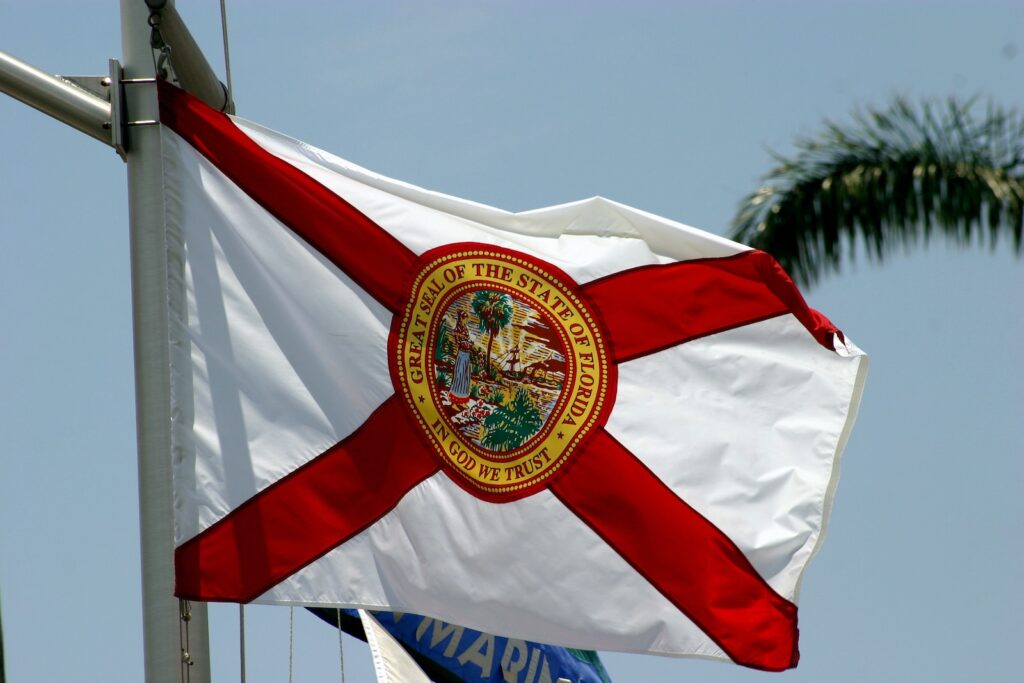
To begin, let’s explore an introduction to CBD and its legal status in the United States. Following that, we will delve into an overview of CBD laws in Florida. It is crucial to distinguish between CBD derived from hemp and CBD derived from marijuana, as the legal status can differ depending on the source.
In Florida, the legality of CBD derived from hemp is a topic of interest. We will explore the legalities associated with CBD derived from marijuana. We will examine the medical and recreational use of CBD in Florida, along with the guidelines for purchasing CBD products.
Understanding the legal status of CBD in Florida is essential for residents and visitors alike in order to ensure compliance with the law and make informed decisions regarding the use of CBD products. By obtaining a comprehensive understanding of the regulations surrounding CBD in Florida, individuals can navigate the market and their options more confidently.
The legal status of CBD in the United States is constantly evolving and can vary from state to state. However, at the federal level, CBD is considered legal if it is derived from hemp plants with less than 0.3% THC content. Here are some key points regarding the legal status of CBD in the United States:

An overview of CBD laws in Florida reveals the legal status and regulations surrounding the use of CBD products in the state.
While CBD is legal in Florida, it is essential to stay informed about any changes or updates to the state’s laws and regulations. Keeping up with the FDACS guidelines and working with licensed and reputable retailers ensures compliance and safety when using CBD products.
Sarah, a resident of Florida, was curious about using CBD to manage her chronic pain. After researching the state’s laws and regulations, she found that CBD derived from hemp was legal in Florida as long as it contained less than 0.3% THC. Sarah decided to visit a local CBD store that showcased their FDACS license. The knowledgeable staff educated her about different CBD products and helped her choose a high-quality CBD oil with a low THC concentration. Sarah, following the recommended dosage, experienced significant relief from her pain, allowing her to enjoy a better quality of life.
CBD derived from hemp is indeed legal in Florida. In the state, hemp, which is a particular type of cannabis plant that has low levels of THC, the psychoactive compound found in marijuana, follows the federal definition and is considered legal. This was made possible through the passage of the Farm Bill by the federal government in 2018, which allowed for the cultivation and sale of hemp and hemp-derived products, including CBD, as long as they have less than 0.3% THC.
The cultivation of hemp in Florida is regulated by the Florida Department of Agriculture and Consumer Services. Farmers can obtain a license to grow hemp and extract CBD from it. Additionally, retailers are allowed to sell CBD products derived from hemp in the state, provided that they meet the labeling and testing requirements.
It is important to keep in mind that even though hemp-derived CBD is legal in Florida, CBD derived from marijuana is considered illegal. Marijuana is categorized as a Schedule I controlled substance by the federal government, and its recreational use is illegal in Florida. However, medical use of marijuana is permitted for qualifying patients who have a prescription from an authorized physician.
When purchasing CBD products in Florida, it is crucial to ensure that they are derived from hemp and contain less than 0.3% THC. It is advisable to choose reputable brands that conduct third-party lab testing to confirm the purity and potency of their products. Additionally, consulting with a healthcare professional is recommended in order to determine the appropriate dosage and usage for one’s specific needs.
Is CBD Derived from Marijuana Legal in Florida?
CBD derived from marijuana is not legal in Florida. While CBD oil derived from hemp with less than 0.3% THC is legal at the federal level, marijuana is classified as a Schedule I controlled substance and is illegal under federal law. Florida follows federal guidelines and has its own laws when it comes to CBD.
In Florida, the use of CBD derived from marijuana is only legal for qualified patients who have been diagnosed with a debilitating medical condition. These conditions include cancer, epilepsy, glaucoma, HIV/AIDS, Crohn’s disease, Parkinson’s disease, multiple sclerosis, post-traumatic stress disorder (PTSD), amyotrophic lateral sclerosis (ALS), and terminal illnesses. Patients must have a recommendation from a qualified doctor and be registered with the Florida Department of Health’s Office of Medical Marijuana Use.
It is important to note that possession or use of marijuana-derived CBD without a valid medical marijuana card is illegal in Florida. The penalties for possession of marijuana can range from a misdemeanor to a felony, depending on the amount in possession.
The legal status of CBD derived from marijuana in Florida has evolved over time. In 2016, Amendment 2 was passed, allowing for the medical use of marijuana in the state. This opened the door for patients with qualifying conditions to access CBD products derived from marijuana.
However, it wasn’t until the implementation of the Compassionate Medical Cannabis Act in 2017 that regulations were established for the cultivation, production, and distribution of medical marijuana in Florida. These regulations ensure that only patients with qualifying conditions can access marijuana-derived CBD.
As of now, recreational use of marijuana is still illegal in Florida, and CBD derived from marijuana is only legal for qualified patients under the state’s medical marijuana program. It’s important to stay informed and abide by the laws and regulations regarding CBD in Florida to avoid any legal consequences.
The use of CBD for medical purposes is legal in Florida. The state has enacted laws that allow patients with certain medical conditions to access CBD oil or products containing CBD under specific circumstances.
It’s important to note that while CBD for medical use is legal in Florida, recreational use of cannabis is still illegal. Possession, cultivation, and distribution of cannabis for non-medical purposes are considered illegal under state law.
A fact: As of November 2021, there were over 560,000 registered patients in Florida’s medical marijuana program, with around 400,000 active patients actively using medical CBD oil for their conditions.
When it comes to the recreational use of CBD in Florida, there are certain regulations and restrictions that must be followed. While CBD is indeed legal in Florida, it is essential to familiarize oneself with the specifics surrounding its recreational use.
Staying well-informed about the current regulations and any updates regarding the recreational use of CBD in Florida is crucial. Keeping up-to-date with state laws and guidelines will ensure compliance and a safe, enjoyable CBD experience.
When it comes to purchasing CBD in Florida, there are several important steps to follow in order to ensure that you are buying a legitimate and high-quality product. If you want to know how to buy CBD in Florida, follow this comprehensive guide:
By following these steps, you can confidently navigate the process of buying CBD in Florida and ensure that you are purchasing a high-quality and legally compliant product.
Yes, CBD is legal in Florida as long as it is derived from hemp and contains less than 0.3% THC. The state has taken positions on the legalization of cannabis and hemp, and hemp-derived CBD is legal in Florida. However, marijuana-derived CBD is not legal in the state.
Consumers must be at least 18 years old to purchase most CBD products in Florida. However, CBD inhalants require consumers to be 21 years or older. It is also important to purchase CBD products from trusted sources that fall within federal guidelines, including containing less than 0.3% THC and having third-party lab results.
Yes, you can purchase CBD products online in Florida. Reputable retailers will provide educational information about their products and ensure they meet the legal requirements, such as containing less than 0.3% THC. It is important to choose a trusted online retailer to ensure the quality and legality of the products.
No, there are no possession limits for hemp-derived CBD products in Florida. As long as the CBD product meets the legal requirements, including containing less than 0.3% THC, individuals can possess as much CBD as they need.
No, you do not need a medical marijuana card to purchase hemp-derived CBD products in Florida. However, if you are looking for CBD products derived from marijuana with higher THC content, you will need a valid Florida medical marijuana card and a licensed physician prescription.
CBD products can be purchased from various retail storefronts, including gas stations and kiosks, in Florida. Additionally, you can also purchase CBD products online from reputable retailers. It is important to be cautious and purchase from trusted sources to ensure the quality and legality of the products.
This is not legal advice. You should check with your State and local laws.
CBD, or cannabidiol, has gained significant popularity in recent years for its potential health benefits. However, the legality of CBD varies from one state to another. In this article, we will specifically explore the legality of CBD in Delaware.

Before delving into the specific laws of Delaware, it is essential to understand the broader legal landscape of CBD in the United States. CBD’s legality is determined by both federal and state laws.
At the federal level, CBD derived from hemp containing less than 0.3% THC became legal with the passage of the 2018 Farm Bill. However, the overall legality of CBD can also depend on individual states’ regulations.
Turning our attention to Delaware, it is crucial to examine the state’s laws regarding CBD. Is CBD legal in Delaware? The answer is yes. According to the Delaware state laws, CBD products derived from hemp are legal for both medical and recreational use as long as they contain no more than 0.3% THC.
Delaware has enacted legislation that allows for the cultivation, processing, and sale of hemp-derived CBD products within the state. This means that residents of Delaware can legally purchase and possess CBD products as long as they comply with the specified THC content limit.
So, if you are in Delaware and interested in purchasing CBD products, you have various options. CBD products can be found in local stores, such as dispensaries, health food stores, and vape shops. You can also buy CBD online and have it delivered to your doorstep.
It is worth noting that Delaware has a medical marijuana program in place, which allows qualified patients with specific medical conditions to access CBD products with higher THC concentrations. However, for recreational users, CBD derived from hemp with less than 0.3% THC is the legal option.
As CBD continues to gain recognition for its potential health benefits, it is important to stay informed about the specific laws and regulations surrounding its legality in your state. In Delaware, CBD derived from hemp is legal, allowing residents to enjoy the potential benefits this cannabinoid may offer.
The legality of CBD in the United States is a multifaceted issue that varies from state to state. While CBD is derived from hemp, which was federally legalized through the passage of the 2018 Farm Bill, individual states retain the authority to regulate its production, sale, and use.
To gain a comprehensive understanding of CBD’s legality in the United States, it is crucial to consider the level of THC present in the product. THC is the psychoactive compound found in cannabis that produces the “high” sensation. CBD products derived from hemp must contain less than 0.3% THC to be considered legal. Conversely, CBD products derived from marijuana, which contains higher THC levels, are subject to more stringent regulations.
At present, the majority of states have embraced regulations that align with federal law, permitting the sale and use of CBD products with minimal THC content. Nonetheless, there are still a handful of states where CBD remains illegal in all its forms. It is imperative to conduct thorough research and comprehend the specific laws in your state prior to purchasing or using CBD products.
Lisa’s case serves as an exemplification of the intricate nature surrounding CBD’s legality. Lisa is a middle-aged woman residing in California who suffers from chronic pain. For several years, Lisa had been successfully managing her pain using CBD oil without any complications. Unfortunately, during a routine traffic stop, she was found in possession of CBD oil that contained trace amounts of THC. Despite the low THC content, Lisa faced charges of possessing a controlled substance, as her state had not yet legalized the recreational use of cannabis. This unfortunate incident underscores the significance of comprehending and adhering to the laws in each respective state.
CBD, or cannabidiol, is a compound derived from the cannabis plant that has gained popularity in recent years for its potential health benefits. However, when it comes to the legality of CBD in the United States, the situation can be quite complex.
To answer the question, “Is CBD federally legal in the United States?” the answer is yes, but with certain limitations. The Farm Bill of 2018 legalized the production and sale of hemp and its derivatives, which includes CBD, at the federal level. However, there are a few important considerations to keep in mind.
Firstly, the CBD must be derived from hemp plants that contain no more than 0.3% THC, the psychoactive compound found in marijuana. Any CBD product that exceeds this THC limit would be considered illegal under federal law.
Secondly, the CBD must be produced and sold in compliance with specific regulations. These regulations include ensuring proper labeling, manufacturing practices, and quality control. The FDA has also stated that CBD cannot be marketed as a dietary supplement or added to food and beverages.
It is important to note that even though CBD is federally legal, individual states have the authority to regulate CBD within their borders. This means that CBD may be legal in some states but illegal in others. It is crucial to research and understand the specific laws and regulations regarding CBD in your state.
The role of states in regulating CBD is crucial as it allows them to establish their own laws and regulations regarding the sale, possession, and use of CBD products within their jurisdiction. While CBD derived from hemp was federally legalized with the passage of the 2018 Farm Bill, states still retain the authority to regulate its production, distribution, and consumption.
Pro-tip: Before purchasing or using CBD products, it is essential to familiarize yourself with the specific laws and regulations of the state you are in. This will help you make informed decisions and ensure that you are in compliance with local regulations. Always buy CBD products from reputable sources that prioritize quality and transparency.
CBD Laws in Delaware have become increasingly popular due to the potential health benefits of cannabidiol. It is crucial to have a proper understanding of the legal framework surrounding CBD in the state. Delaware follows federal regulations in allowing the cultivation, manufacturing, and sale of hemp-derived CBD products with less than 0.3% THC. This means that consumers can legally purchase and use CBD products in Delaware as long as they meet this criterion.
While CBD products are generally legal for adults in Delaware, there may be age restrictions depending on the type of product. Certain CBD products containing THC may require individuals to be at least 21 years old to purchase or use them. It is always important to check the specific age restrictions when buying CBD products in Delaware.
CBD creams oils and other products are readily available across Delaware, including in specialty stores, pharmacies, and online platforms. It is crucial to purchase from reputable sources that provide third-party lab testing to ensure the products’ quality and compliance with legal requirements. Furthermore, sellers must adhere to the state’s labeling and packaging regulations.
Delaware allows the use of medical CBD for qualifying patients. These individuals must obtain a recommendation from a certified healthcare professional and register with the Delaware Medical Marijuana Program. Medical CBD products may contain higher levels of THC based on the patient’s needs and the recommendation of their healthcare provider.
If you plan to travel with CBD products in Delaware, it is important to understand the laws of your destination. While many states have similar regulations to Delaware, some states may have stricter rules or entirely different laws regarding CBD. Always research and comply with the specific regulations of the state you are visiting.
To ensure compliance with CBD laws in Delaware, it is vital to stay informed and keep updated with any changes in regulations. Consulting reputable sources, such as state government websites or legal professionals, can provide valuable guidance regarding CBD laws.
Remember, while CBD offers potential benefits, it is not a substitute for professional medical advice. If you have any health concerns or questions about CBD usage, consult with a healthcare professional familiar with CBD products.
Please note that this information is subject to change, and it is always recommended to verify the current regulations regarding CBD laws in Delaware.
Yes, CBD is legal in Delaware.

Delaware has taken steps to legalize both medical and recreational use of cannabis, including CBD products. In 2011, the state passed the Delaware Medical Marijuana Act, allowing registered patients to use and access medical marijuana, including CBD, for qualifying medical conditions.
Under Delaware law, CBD derived from the cannabis plant is considered legal for both medical and recreational use. However, it is important to note that CBD derived from hemp, which contains less than 0.3% THC, is federally legal in all 50 states.
Delaware has established a regulated medical marijuana program that allows registered patients to purchase and use CBD products from licensed dispensaries. These dispensaries offer a variety of CBD products, including oils, tinctures, capsules, and topicals.
In addition to the medical program, Delaware has also decriminalized the possession and use of small amounts of cannabis for recreational purposes. This means that individuals aged 21 and older can possess up to one ounce of cannabis, including CBD products, without facing criminal charges.
It is important to note that while CBD is legal in Delaware, it is always recommended to consult with a medical professional or legal expert before using or purchasing CBD products, especially if you have any questions or concerns about their legality or potential effects.
Fact: Delaware was one of the first states to legalize medical marijuana, including CBD, for qualifying patients.
When it comes to the legislation regarding CBD in Delaware, it is important to understand the current regulations and laws surrounding the use and sale of CBD products. Here are some key points to consider:
It is essential for consumers to be aware of these regulations to ensure that they are purchasing legal and safe CBD products in Delaware. By following these guidelines, individuals can make informed choices when it comes to buying and using CBD products.
Sarah, a Delaware resident, was interested in trying CBD to help manage her anxiety. She conducted research and discovered the legislation regarding CBD in Delaware. With this knowledge, she was able to find a reputable CBD store in her area that followed all the legal requirements. Sarah purchased a CBD tincture from the store and was pleased to see that the product had clear labeling and had undergone lab testing. She started incorporating CBD into her daily routine and found that it helped to reduce her anxiety symptoms. Thanks to the legislation in Delaware, Sarah was able to find a legal and safe CBD product that improved her well-being.
Looking to buy CBD in Delaware? Here’s a comprehensive guide on how to purchase CBD in the state:
When buying CBD in Delaware, always remember to abide by the guidelines and regulations set by state and federal authorities. With this knowledge on how to buy CBD in Delaware, you can make an informed decision and find the perfect CBD product to meet your needs.
When it comes to finding CBD products, there are several options available. Here is a list to help guide you in your search:
1. Local CBD stores: Delaware has a growing number of dedicated CBD stores where you can find a wide variety of CBD products, including oils, tinctures, edibles, and topical creams. These stores often have knowledgeable staff who can assist you in finding the right product for your needs.
2. Health food stores: Many health food stores in Delaware also carry CBD products. These stores often prioritize natural and wellness-focused products, making them a good option for finding CBD.
3. Pharmacies: Some pharmacies in Delaware have started stocking CBD products, especially those with a focus on holistic health and wellness. Check with your local pharmacies to see if they carry CBD products.
4. Online retailers: If you prefer the convenience of online shopping, there are numerous reputable online retailers that sell CBD products and deliver to Delaware. These online stores often have a wider selection of products and offer the convenience of ordering from the comfort of your own home.
5. Cannabis dispensaries: While recreational marijuana is not legal in Delaware, the state has a medical marijuana program. Licensed dispensaries in Delaware offer CBD products for medical use. However, it’s important to note that you need to be a registered patient in the medical marijuana program to access these products.
Remember to always do your research and ensure that the CBD products you purchase are of high quality and from reputable sources. Look for products that have undergone third-party testing for potency and purity.
A friend of mine who suffers from chronic pain was searching for CBD products to help manage their symptoms. After trying various local stores, they found that the best selection and quality were available online. They discovered Quiet Monk CBD that provided a wide range of CBD products, including different strengths and delivery methods. Now, they regularly order their CBD products online and have found relief from their pain. Finding CBD products in Delaware may require some exploration, but with the right resources, you can discover the products that work best for you.
When it comes to buying CBD online in Delaware, there are a few important factors to consider to ensure a safe and legal purchase.
Now, let me share a true story about buying CBD online in Delaware. Mary, a resident of Delaware, was looking for a reliable source of CBD to manage her chronic pain. After extensive research, she found a reputable online seller that provided detailed information about their products, including third-party lab testing results. Mary decided to purchase a CBD oil tincture from the seller and was pleased with the prompt shipping and discreet packaging. She found the CBD oil to be effective in alleviating her pain and improving her overall well-being. Mary continues to buy CBD online from the same trusted seller, confident in the quality and legality of their products.
When it comes to CBD and medical marijuana in Delaware, there are several important factors to consider. Let’s explore these factors:
It’s important to note that while CBD derived from hemp is legal in Delaware, there are still regulations and restrictions in place. It’s always recommended to consult with a healthcare professional before starting any CBD or medical marijuana treatment to ensure it is appropriate for your specific condition or needs.
The Medical Marijuana Program in Delaware, known as the Medical Marijuana Program in Delaware, grants individuals diagnosed with qualifying medical conditions access to marijuana. This program allows patients to legally obtain and utilize medical marijuana, which can help alleviate symptoms and enhance their quality of life.
To be eligible for the Medical Marijuana Program in Delaware, patients must meet certain criteria. They must be residents of Delaware and have a debilitating medical condition, such as cancer, epilepsy, multiple sclerosis, or chronic pain. Patients are required to consult with a certified healthcare provider who will evaluate their condition and determine if medical marijuana is a suitable treatment option.
Once approved for the program, patients are provided with a medical marijuana card. This card enables them to purchase marijuana from licensed dispensaries in Delaware. These dispensaries offer a wide range of medical marijuana products, including dried flower, edibles, tinctures, and topicals. The dispensaries ensure that all products undergo testing for purity, potency, and safety.
It is important to note that although medical marijuana is legal in Delaware, it remains illegal under federal law. Therefore, patients must adhere to state regulations and only utilize marijuana for medicinal purposes. Furthermore, it is crucial to securely store all medical marijuana products and refrain from sharing them with unauthorized individuals.
The primary objective of the Medical Marijuana Program in Delaware is to provide relief to patients suffering from debilitating medical conditions. It serves as an alternative treatment option for those who have found traditional medications ineffective or have experienced severe side effects. With proper medical supervision, patients can safely and legally access medical marijuana to manage their symptoms and enhance their overall well-being.

When it comes to the medical use of CBD in Delaware, it is important to understand the legal landscape and regulations surrounding this issue.
Is CBD Available for Medical Use in Delaware?
Yes, CBD is indeed available for medical use in Delaware. The state has implemented a medical marijuana program that permits qualified patients to obtain CBD and other cannabis-derived products for therapeutic purposes.
The Medical Marijuana Program in Delaware provides legal protection to patients who have been diagnosed with qualifying medical conditions and have received a recommendation from a certified physician. These patients can acquire a medical marijuana card that grants them the authority to purchase and utilize CBD products.
Under this program, patients have access to CBD-rich strains of marijuana that are specifically cultivated to contain higher levels of CBD and lower levels of THC, the psychoactive compound found in cannabis.
It is crucial to note that CBD available for medical use in Delaware is subject to stringent regulations. Patients must adhere to the dosage and usage guidelines provided by their healthcare provider and comply with all state laws and regulations.
Patients should also be informed about the potential side effects of CBD, which may include drowsiness, dry mouth, and changes in appetite. It is always advisable to consult with a healthcare professional before initiating any new treatment.
The legalization of medical marijuana and the availability of CBD for medical use in Delaware are outcomes of the growing recognition of the therapeutic benefits of cannabis. Over the years, scientific research has demonstrated the potential of CBD in alleviating symptoms associated with various medical conditions, such as chronic pain, epilepsy, and multiple sclerosis. This has resulted in a shift in public perception and a movement towards the legalization of medical marijuana in numerous states, including Delaware. The implementation of the Medical Marijuana Program has furnished patients with a legal and closely monitored path to access CBD and harness its potential benefits in managing their health conditions.
Yes, CBD is legal in Delaware. CBD products derived from hemp with less than 0.3% THC are legal in the state, following federal guidelines.
In Delaware, CBD oil is legal as long as it is derived from hemp and contains less than 0.3% THC. For marijuana-derived CBD oil, it is still classified as a Schedule I drug under federal law and is illegal for recreational use in Delaware.
While it is legal to purchase CBD oil locally in Delaware, it is no longer recommended due to the presence of contaminated and untested products. It is safer and more convenient to buy CBD oil online from reputable brands.
The best way to buy CBD oil in Delaware is through a reliable online store. Online retailers offer a wider range of products, better deals, and the ability to research and compare different brands easily.
As long as CBD products in Delaware comply with the state’s laws and contain less than 0.3% THC, there should not be any legal troubles. However, marijuana-derived CBD oil is still considered illegal for recreational use and may lead to legal repercussions.
The CBD industry in Delaware is currently unregulated by the FDA. It is important for consumers to verify the quality of products by looking for third-party lab reports and choosing reputable suppliers.
This should not be taken as legal advice. Always check with your state and local laws.
CBD’s legal status is influenced by both federal and state laws. Federally, CBD derived from hemp containing less than 0.3% THC (the psychoactive component of cannabis) was legalized under the 2018 Farm Bill. However, individual states can still impose their own regulations and restrictions on CBD. Now, let’s delve into the specific CBD laws in Connecticut.
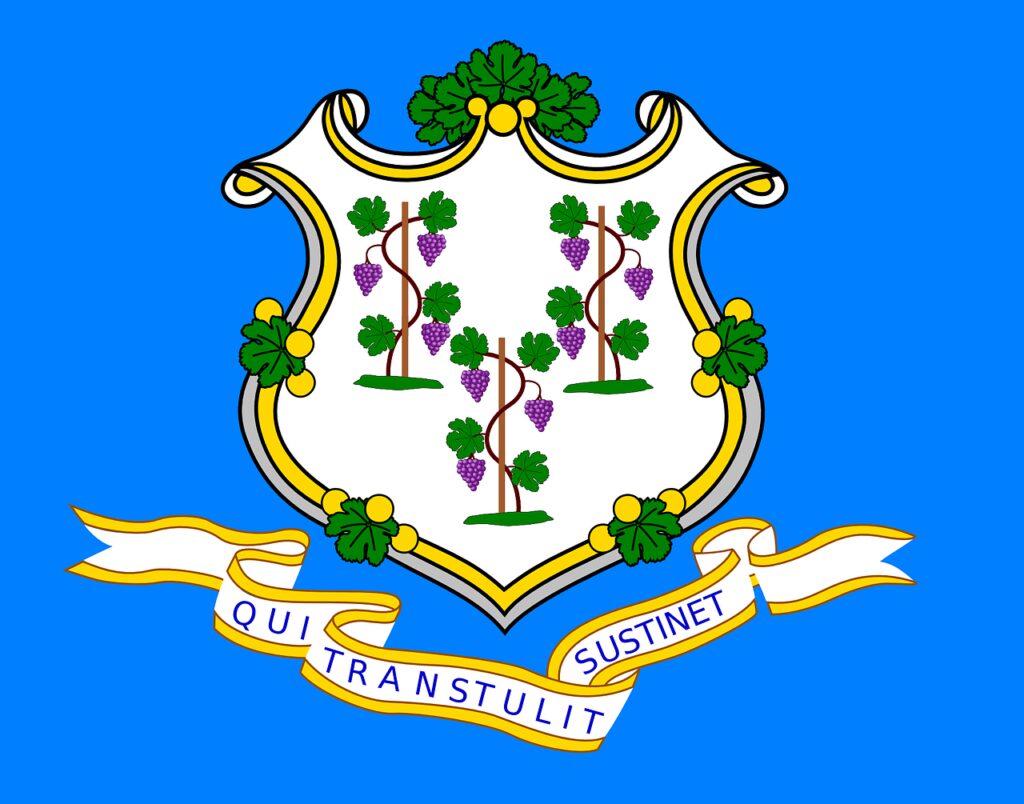
Currently, CBD is legal in Connecticut and is not classified as a controlled substance. The state has adopted policies in alignment with federal law and allows for the cultivation, production, sale, and use of CBD products derived from hemp. Connecticut has also established the Connecticut Hemp Program to regulate hemp cultivation and ensure compliance with state laws.
Under the Connecticut Hemp Program, individuals and businesses must register and obtain licenses to participate in the cultivation, processing, and sale of hemp and CBD products. The program outlines specific requirements and standards to ensure product safety, quality, and proper labeling.
Consumers in Connecticut have access to a variety of retail options for CBD products, including specialized CBD stores, health food stores, and online retailers. However, it is important to note that the use of CBD for recreational purposes is still subject to certain legal considerations. individuals should be aware of the guidelines and regulations surrounding CBD consumption and discuss any potential medical use with their healthcare provider.
While CBD is legal in Connecticut, it is always recommended to stay informed about the latest updates, as laws and regulations may change over time. As with any supplement or health product, consumers should exercise caution and make informed decisions when buying and using CBD in Connecticut.
CBD, or cannabidiol, is a compound derived from the cannabis plant that has gained popularity for its potential health benefits. However, the legal status of CBD in the United States can be confusing due to conflicting regulations at the federal and state levels.
1. Federal laws: According to federal law, CBD derived from hemp is legal in the United States as long as it contains less than 0.3% THC, the psychoactive component of cannabis. The Agricultural Improvement Act of 2018, also known as the Farm Bill, legalized hemp and removed it from the list of controlled substances. This means that CBD products derived from hemp, including oils, tinctures, and topicals, are legal at the federal level.
2. State laws: While federal law permits the use of CBD derived from hemp, states have the authority to enact their own regulations. Some states may have stricter laws regarding the use and sale of CBD, while others may have more relaxed regulations. It is important to be aware of the specific laws in your state regarding the legal status of CBD in the United States.
3. FDA regulations: The Food and Drug Administration (FDA) plays a crucial role in regulating CBD products. Currently, the FDA has only approved one CBD product, Epidiolex, for the treatment of seizures associated with two rare forms of epilepsy. Other CBD products, such as dietary supplements and food additives, are not currently approved by the FDA and are subject to additional regulations.
4. Legalization of marijuana: It is important to note that the legal status of CBD derived from marijuana, which contains higher levels of THC, varies from state to state. While some states have legalized both medical and recreational marijuana, others have strict regulations or have not legalized marijuana at all. The legality of CBD derived from marijuana is often tied to the broader marijuana laws in each state within the United States.
5. Quality and safety: When purchasing CBD products, it is important to consider the quality and safety of the product. Look for products that have been tested by a third-party laboratory for purity and potency. Additionally, choose products that are derived from organic hemp and are free from harmful additives or contaminants to ensure compliance with the legal status of CBD in the United States.
The legal status of CBD at the federal level in the United States is a topic of importance and confusion for many individuals. It is crucial to understand the current regulations to ensure compliance and avoid any legal issues.
Here is a breakdown of the federal legality of CBD:
When it comes to CBD, state laws and regulations play a vital role. Understanding these laws is crucial for compliance and legality. Here are some key points to consider:
1. Legalization: CBD’s legal status varies from state to state. While some states have fully legalized both recreational and medicinal CBD use, others only allow medicinal use. Familiarizing yourself with your state’s specific laws is essential.
2. THC Content: Each state has set limits on the amount of THC allowed in CBD products. THC is the psychoactive component of cannabis. Ensuring that the CBD products you purchase comply with your state’s THC restrictions is important.
3. Licensing and Regulations: Some states require CBD businesses to obtain licenses and follow specific regulations. These regulations may involve testing, labeling guidelines, and product quality standards. Understanding and adhering to your state’s licensing and regulations is essential.
4. Age Restrictions: Many states have age restrictions for purchasing and using CBD products. The minimum age requirement can range from 18 to 21 years old. Familiarizing yourself with the age restrictions in your state will help avoid legal issues.
5. Interstate Commerce: Even if CBD is legal in your state, it’s essential to consider the laws surrounding interstate commerce. Transportation of CBD products across state lines may be subject to federal regulations. Consult legal experts or regulatory agencies to ensure compliance in such cases.
6. Hemp vs. Marijuana: State laws may differentiate between CBD derived from hemp and CBD derived from marijuana. Hemp-derived CBD is generally legal in most states, thanks to the 2018 Farm Bill. However, marijuana-derived CBD may face stricter regulations or even be illegal in certain states. Understanding the distinction and specific laws for each is vital.
7. Changes in Laws: State laws on CBD can change over time. Staying updated with any changes is essential. This includes monitoring legislation, regulatory updates, and legal precedents that may impact CBD’s legality and regulations.
By understanding state laws and regulations regarding CBD, individuals can ensure compliance and safely purchase and use CBD products according to their personal needs. Remember to research and verify your state’s specific laws before making any CBD-related decisions.

CBD enthusiasts in Connecticut, listen up!
We’re about to unravel the intricate web of CBD laws specific to our very own state.
Get ready to dive into the nitty-gritty of this subject as we explore the current status of CBD in Connecticut.
From regulations to restrictions, we’ll shed light on how the legal landscape shapes the availability and use of CBD products in our state.
So, fasten your seatbelts and let’s embark on this informative journey together!
The current status of CBD in Connecticut is as follows:
Discover the secrets of the Connecticut Hemp Program, where legalities and opportunities intertwine. From registration and licensing to the specific requirements for cultivation, processing, and sale, this section uncovers the framework that underpins the hemp industry in Connecticut. Prepare to dive into the nitty-gritty of the state’s regulations and explore the possibilities that lie ahead for aspiring participants in this booming market.
Registration and Licensing are crucial steps for CBD businesses in Connecticut to ensure compliance with state regulations and maintain the integrity of the industry.
By following these steps, CBD businesses in Connecticut can obtain the necessary registration and licensing to legally operate in the state. It is important for businesses to consistently adhere to all regulations and requirements to maintain compliance and the trust of their customers.
| Requirements for Cultivation | Processing | Sale |
|---|---|---|
| Applicants for a cultivation license must ensure they have the necessary documentation for the land they plan to use, undergo a background check, and pay the required fees. | Facilities for processing must be registered with the Department of Consumer Protection and adhere to all federal and state laws regarding the handling and disposal of hemp waste. The keeping of accurate records is essential, as processing facilities must document all activities related to hemp received, processed, or disposed of, and make these records available for inspection. | Retailers must comply with labeling requirements and ensure that CBD products are accurately labeled with information such as batch numbers, expiration dates, and manufacturer or distributor details. Additionally, all CBD products must undergo testing by independent laboratories to ensure quality, safety, and accurate cannabinoid content. |
When considering the requirements for cultivation, processing, and sale of CBD in Connecticut, it is important to understand the regulations set forth by the state. Applicants for a cultivation license must ensure they have the necessary documentation for the land they plan to use, undergo a background check, and pay the required fees.
For processing, facilities must be registered with the Department of Consumer Protection and adhere to all federal and state laws regarding the handling and disposal of hemp waste. The keeping of accurate records is essential, as processing facilities must document all activities related to hemp received, processed, or disposed of, and make these records available for inspection.
In terms of sale, retailers must comply with labeling requirements and ensure that CBD products are accurately labeled with information such as batch numbers, expiration dates, and manufacturer or distributor details. Additionally, all CBD products must undergo testing by independent laboratories to ensure quality, safety, and accurate cannabinoid content.
It is crucial to adhere to these requirements to ensure compliance with Connecticut laws and regulations surrounding the cultivation, processing, and sale of CBD products.
Remember to always stay informed about any updates or changes to the regulations and consult with the appropriate authorities for further guidance.
Looking to buy and use CBD in Connecticut? Let’s dive into the essential details. We’ll explore the retail options for CBD products, discuss the differences between recreational and medicinal use of CBD, and highlight some legal considerations for CBD consumers. So, whether you’re seeking pain relief or simply curious about the benefits, we’ve got you covered!
When it comes to purchasing CBD products, there are several retail options available to consumers. These retail options include physical stores, online retailers, pharmacies, dispensaries, and natural health stores.
Physical stores such as health food stores, wellness centers, and specialty CBD stores offer a wide range of CBD products. These stores allow consumers to see and feel the products before making a purchase. Some stores even have knowledgeable staff who can provide guidance and answer questions about the different CBD products available.
Online retailers have also become increasingly popular for CBD products. Many reputable CBD brands have their own websites where consumers can directly purchase products. Additionally, there are online marketplaces and retailers that offer a diverse selection of CBD products from various brands. Shopping online provides convenience and the ability to compare products and prices.
In certain states, authorized pharmacies are allowed to sell CBD products. This gives consumers the opportunity to purchase CBD products from a trusted source and receive guidance from trained pharmacists.
In states where marijuana is legal for both recreational and medicinal purposes, consumers can buy CBD products from licensed dispensaries. These dispensaries typically offer a wide range of CBD products, including those with higher levels of THC for individuals seeking the benefits of both compounds.
Many natural health stores and holistic wellness centers also carry CBD products. These retailers focus on providing natural and alternative health solutions, and CBD products align with their holistic approach.
When selecting a retail option for CBD products, it is important to consider factors such as product selection, quality, pricing, and customer reviews. Additionally, consumers should ensure that the retailer they choose follows proper labeling and safety regulations to guarantee the authenticity and safety of the CBD products they offer.
To find the best retail option for CBD products, consider visiting local stores, exploring online options, reading customer reviews, and seeking recommendations from friends or healthcare professionals. Thorough research and choosing a reputable retailer will ensure the purchase of high-quality CBD products that meet specific needs and preferences.
When it comes to CBD, it is important to understand the distinction between recreational and medicinal use. Both recreational use and medicinal use of CBD have their own purposes and considerations, and it is important to be aware of them before using CBD products.
Suggestions:
When it comes to consuming CBD, there are several legal considerations that CBD consumers need to be aware of. Here are some important things to keep in mind:
Yes, CBD is legal in Connecticut. The state has legalized the retail sale of hemp-derived CBD and CBD products. Industrial hemp is considered distinct from marijuana and is not a controlled substance. As long as CBD products contain less than 0.3% THC, they are legal for both medical and recreational use in Connecticut.
Connecticut has implemented several laws to regulate the legal status of CBD. Senate Bill No. 603 initiated the state’s pilot hemp growing program, allowing for the manufacturing of CBD products made from hemp. Public Act 19-3 established regulations for hemp growers, processors, and manufacturers. It is important to stay updated on current legislation and regulations regarding CBD in Connecticut.
CBD products can be purchased in various locations across Connecticut, including health and wellness shops, smoke shops, yoga studios, gyms, specialty and gift shops, gas stations, and golf pro shops. Online ordering is also available for convenient delivery.
Yes, CBD oil can be purchased legally without a prescription in Connecticut. Hemp-derived CBD oil is federally legal, and the state has no restrictions on the sales, possession, and transportation of hemp-based products. However, marijuana-derived CBD oil requires a prescription and can only be purchased from licensed medical marijuana dispensaries.
There are no restrictions or possession limits for CBD products in Connecticut as long as they contain less than 0.3% THC. However, it is important to note that some localities within the state may have their own regulations regarding CBD.
Yes, CBD oil can be purchased online from reputable suppliers in Connecticut. Many companies ship their products to all 50 states, offering a wide range of CBD oil products and attractive wholesale deals. When buying online, it is important to choose reputable websites that guarantee third-party lab testing, provide a certificate of analysis, and ensure labeling accuracy.
As we are not lawyers it is always best to check with your local laws for your State and City. This is not legal advice.
CBD, short for cannabidiol, has gained significant popularity in recent years for its potential health benefits. As regulations around CBD vary by state in the United States, it is essential to understand the legal status of CBD in specific regions. In this article, we will focus on its legality in California, a state known for its progressive stance on cannabis.

CBD’s legal status in California is a complex topic influenced by state laws and federal regulations. California has been at the forefront of cannabis legislation, including CBD. Understanding state laws is crucial for determining the legality of CBD products in California.
One significant factor to consider is California Proposition 64, also known as the Adult Use of Marijuana Act. This proposition legalized the recreational use of cannabis, including CBD derived from both marijuana and hemp plants. However, it is essential to differentiate between CBD and marijuana.
CBD differs from marijuana primarily in its THC content. THC is the psychoactive compound that produces the “high” associated with marijuana. CBD products in California must contain no more than 0.3% THC to be considered legal.
When examining the legality of CBD, federal regulations also come into play. The Farm Bill of 2018 legalized hemp-derived CBD at the federal level, effectively removing it from the list of controlled substances. The Food and Drug Administration (FDA) also plays a role in regulating CBD products for safety and quality.
In California, CBD products can be found in various locations. This includes dispensaries, where licensed cannabis products are available, and retail stores or online marketplaces that offer hemp-derived CBD products.

When purchasing CBD in California, it is crucial to consider some tips to ensure you are getting a quality and legal product. Third-party lab testing, product labeling, and assessing the overall quality and safety are essential factors to keep in mind. – CBD, or cannabidiol, is a compound derived from the cannabis plant that is legal in California. – The legal status of CBD in California is governed by state laws, including California Proposition 64, which legalized recreational marijuana. – CBD differs from marijuana in terms of THC content, with CBD containing lower levels of THC and having both medical and recreational uses. – Federal regulations on CBD, such as the Farm Bill 2018, also impact its legality in California. – CBD can be found in dispensaries, retail stores, and online marketplaces in California. – When purchasing CBD in California, consumers should look for third-party lab testing, proper product labeling, and ensure the quality and safety of the product. – In summary, CBD is legal in California, but it is important to understand and comply with state and federal regulations.
Cannabidiol, commonly known as CBD, is a natural compound derived from the cannabis plant. It is one of the many cannabinoids present in the plant, but unlike tetrahydrocannabinol (THC), CBD does not induce psychoactive effects. This means that it does not cause a “high” sensation.
In recent years, CBD has gained significant attention due to its potential therapeutic benefits. Research suggests that CBD may possess anti-inflammatory, analgesic, anxiolytic, and neuroprotective properties. It is commonly used to alleviate symptoms associated with various conditions such as chronic pain, anxiety, epilepsy, and insomnia.
One remarkable characteristic of CBD is its influence on the endocannabinoid system (ECS) in the human body. The ECS plays a crucial role in regulating bodily functions such as sleep, mood, appetite, and immune response. CBD interacts with the receptors in the ECS, thereby promoting balance and homeostasis.
There are different forms in which CBD is available, including oils, tinctures, capsules, topicals, and edibles. The concentration of CBD can vary among these products. It is important to note that CBD products are not regulated by the Food and Drug Administration (FDA). Therefore, it is crucial to choose products from reputable manufacturers that conduct third-party lab testing to ensure their potency and purity.
Before incorporating CBD into your wellness routine, it is essential to consult with a healthcare professional, especially if you are taking any medications or have underlying health conditions.
According to a 2019 survey, the primary reasons consumers use CBD are to manage pain, reduce anxiety, improve sleep, and enhance overall well-being.
Curious about the legal status of CBD in California? This section explores the ins and outs of CBD laws in the Golden State. Dive into the intricacies of state regulations and learn how California Proposition 64 has shaped the landscape. It’s time to uncover the facts and discover what’s allowed when it comes to CBD in California.
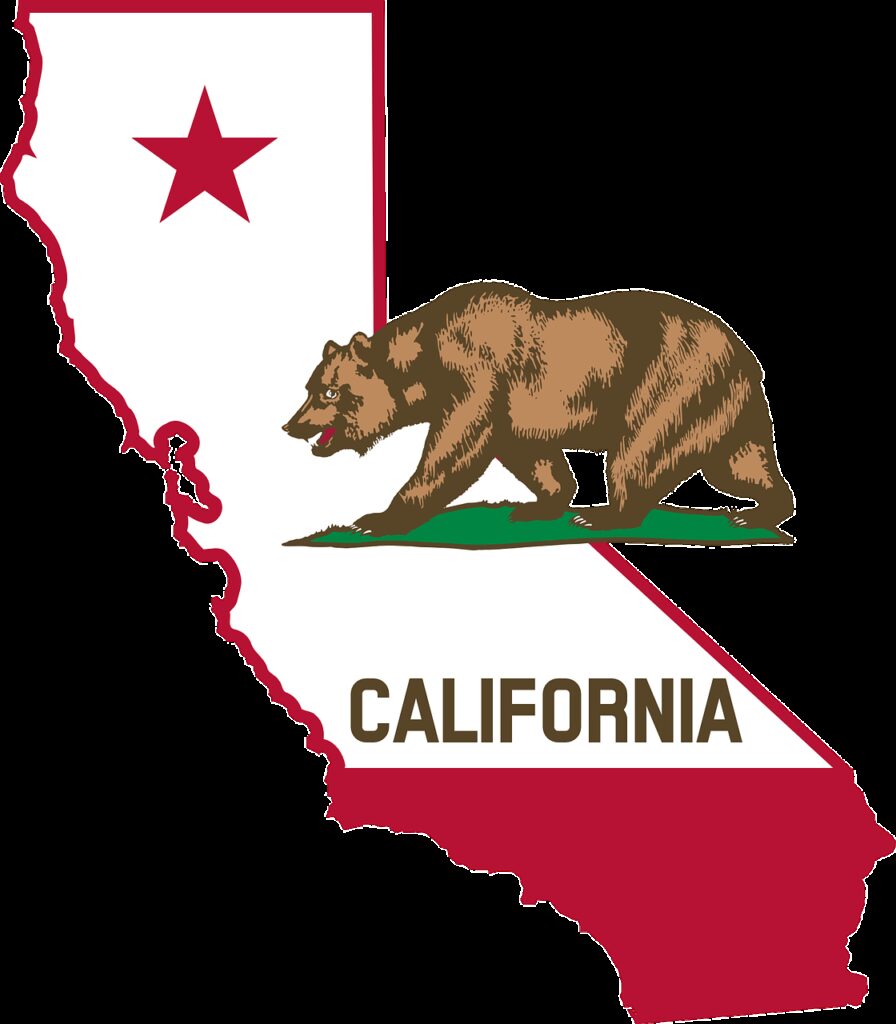
When it comes to CBD, having a thorough understanding of state laws is crucial, especially in California. It is essential to grasp the following key points:
1. State regulations and requirements: California has specific regulations and requirements in place for CBD products. These regulations cover various aspects such as labeling, testing, and manufacturing standards. To ensure the purchase of safe and compliant CBD products, consumers must be aware of these regulations.
2. Impact of California Proposition 64: California Proposition 64, also known as the Adult Use of Marijuana Act, legalized the recreational use of marijuana in the state. However, it is important to note that while marijuana is legal for recreational use, there are still restrictive laws regarding CBD derived from marijuana. CBD derived from marijuana can only be obtained from licensed dispensaries and is subject to stricter regulations.
3. Legal status of CBD: On the other hand, CBD derived from hemp is legal in California. As long as CBD products are derived from hemp plants containing less than 0.3% THC, they can be legally sold and purchased in the state. This legalization has resulted in a wide range of CBD products being available in the market, including oils, capsules, topicals, and more.
4. Consumer responsibility: While CBD is legally available in California, it is the consumers’ responsibility to be informed and conduct proper due diligence before purchasing CBD products. This includes researching the brand, reading product labels, and ensuring that the products have undergone third-party lab testing for quality and safety. Consulting with a healthcare professional is also recommended, especially for individuals with underlying medical conditions.
5. Compliance and enforcement: The state of California actively monitors and enforces regulations related to CBD products. Regular inspections of manufacturing facilities and testing of products are conducted to ensure compliance with safety standards. Consumers should look for products that adhere to these regulations and provide proper labeling and testing information.
Having a comprehensive understanding of state laws is crucial for anyone interested in using CBD products in California. By staying informed and aware, consumers can make educated choices and navigate the CBD market confidently while complying with the state’s laws.
Always prioritize your health and safety when using any CBD products. Stay informed, read labels, research brands, and consult with professionals when necessary. Empower yourself with knowledge to make the best decisions regarding CBD products in accordance with California state laws.
California Proposition 64, also known as the Adult Use of Marijuana Act, was passed in November 2016, legalizing the recreational use of marijuana for adults aged 21 and over in the state of California. This proposition had a significant impact on the legalization of CBD, or cannabidiol, which is derived from the cannabis plant.
Under California Proposition 64, CBD derived from marijuana is legal for both medical and recreational use. However, it is important to note that CBD derived from hemp, a variety of cannabis with low levels of THC, has been legal at the federal level since the passage of the 2018 Farm Bill.
The legalization of CBD under California Proposition 64 has opened up new opportunities for the cannabis industry in the state. Dispensaries, which were previously focused on selling medical marijuana, can now sell cannabis products for recreational use, including CBD products. Additionally, retail stores and online marketplaces have also begun offering CBD products to meet the growing demand.
When purchasing CBD in California, it is important to consider several factors. First, ensure that the product has undergone third-party lab testing to verify its quality and safety. Additionally, carefully examine the product labeling to determine the CBD content, as well as any other ingredients or additives. This information will help you make an informed decision about the product’s suitability for your needs.
CBD and marijuana may share some similarities, but understanding the key differences between the two is essential. In this section, we’ll dive into the contrasting aspects of CBD and marijuana. We’ll explore the levels of THC content in each and the varying purposes they serve, including their applications in medical and recreational use. So, buckle up and join us on this exploration of CBD and marijuana as we shed light on what sets them apart.
The THC content in CBD and marijuana can vary significantly, making it important for consumers to understand the differences between the two. Here is a table comparing the THC content in CBD and marijuana:
| Type of Cannabis | THC Content |
| CBD | Less than 0.3% THC Content |
| Marijuana | Average of 15-30% THC Content |
CBD products, such as oils and tinctures, are derived from hemp plants that contain low levels of THC, typically less than 0.3% THC Content. This minimal amount of THC is not enough to produce psychoactive effects or a “high” in users. It is also within the legal limit set by the Farm Bill 2018, ensuring that CBD products are safe and non-intoxicating.
In contrast, marijuana plants are cultivated for their higher THC content, which can range from 15-30% or even higher in some strains. This higher THC content is what gives marijuana its psychoactive properties and is sought after by recreational users for its “high” effects.
It is important to note that the THC content in CBD products may vary slightly depending on the extraction and manufacturing processes. However, reputable manufacturers provide third-party lab testing results to ensure the accurate THC content is indicated on product labels.
When purchasing CBD products, consumers should always look for third-party lab testing to verify the THC content, ensuring it falls within the legal limit. Additionally, it is essential to follow the product labeling guidelines to understand the THC content and dosage recommendations. By doing so, consumers can make informed decisions and safely enjoy the potential benefits of CBD without the psychoactive effects associated with marijuana.
When it comes to the use of CBD, there are distinct differences between medical and recreational purposes. Here are some key points to consider:
The Federal Regulations on CBD are a crucial aspect to understand when exploring its legality. In this section, we’ll unpack two key components: the significant impact of the Farm Bill 2018 and the role played by the FDA. Get ready to dig into the legal intricacies and explore how these regulations shape the CBD landscape in California. So, let’s dive in and discover the ins and outs of federal CBD regulations!
The Farm Bill 2018, signed on December 20, 2018, had a significant impact on the legal status of CBD in the United States. The bill specifically addressed the cultivation and sale of industrial hemp, which is the plant from which CBD is derived. Under The Farm Bill 2018, industrial hemp with a THC concentration of no more than 0.3% became legal at the federal level.
The legalization of industrial hemp opened up new opportunities for the CBD industry. It allowed for the production of hemp-derived CBD products, including oils, tinctures, capsules, and topicals. This legalization created a more favorable regulatory environment for CBD businesses and increased consumer access to CBD products.
The Farm Bill 2018 also included provisions for the regulation of hemp cultivation. It authorized state agriculture departments and tribal governments to develop their own hemp cultivation programs, subject to approval by the United States Department of Agriculture (USDA). This allowed individual states to regulate the cultivation, processing, and sale of hemp within their jurisdictions.
It is important to note that while The Farm Bill 2018 legalized hemp-derived CBD at the federal level, individual states still have the authority to regulate CBD within their borders. Therefore, it is essential to understand the specific laws and regulations regarding CBD in your state, such as the legal age for purchasing CBD products and any restrictions on the types of CBD products available.
Pro-tip: When purchasing CBD products, always ensure that the product is derived from hemp and contains no more than 0.3% THC. Look for third-party lab testing results to verify the product’s quality and potency.
The role of the FDA in regulating CBD products is pivotal to ensuring consumer safety and product quality. The FDA, or Food and Drug Administration, holds the responsibility of safeguarding public health by regulating various products, including pharmaceutical drugs, food, and dietary supplements. When it comes to CBD, the FDA plays a vital role in providing oversight and establishing regulations.
1. Ensuring Safety: The primary concern of the FDA is to ensure the safety of consumers. The agency evaluates CBD products to ascertain if they meet safety standards and do not pose any health risks. They conduct research and analysis to assess the safety profile of CBD and its potential interactions with other substances.
2. Quality Control: The FDA sets quality control standards for CBD products, which encompass guidelines for manufacturing processes and labeling requirements. They assure that CBD products are manufactured in facilities that follow good manufacturing practices to maintain product integrity and consistency.
3. Labeling Guidance: The FDA provides guidelines for accurate and transparent labeling of CBD products. This encompasses accurate ingredient lists, clear instructions for use, and appropriate health claims. The agency also aims to prevent misleading marketing or false claims about the benefits of CBD products.
4. Research and Education: The FDA supports research and educational initiatives to gain a deeper understanding of the effects and potential benefits of CBD. They collaborate with other organizations and conduct their own studies to gather scientific evidence. This research helps inform their regulatory decisions and enables them to provide accurate information to consumers.
5. Enforcement: The FDA possesses the authority to take enforcement actions against companies that violate regulations or sell unsafe or mislabeled CBD products. They can issue warning letters, initiate product recalls, or even pursue legal action if necessary. These enforcement efforts help protect consumers from harmful or fraudulent CBD products.
It’s important to note that the FDA’s regulations for CBD are still evolving, and currently, CBD products are not approved for use in food or dietary supplements. However, the agency continues to monitor the market and gather evidence to inform future regulatory decisions.
Look no further for CBD in California! Discover the hotspots where you can find this sought-after substance. From local dispensaries to retail stores and booming online marketplaces, there are various avenues to explore. Whether you prefer browsing through shelves, seeking expert advice, or the convenience of a click, we’ve got you covered. So, grab your map and let’s dive into the thriving CBD scene in California!
When it comes to purchasing CBD in California, one of the main options available to consumers is through dispensaries. Here are some key points to consider when choosing a dispensary:
Selection: Look for dispensaries that offer a wide range of CBD products. This can include different forms such as oils, tinctures, capsules, edibles, and topicals.
Quality: Ensure that the dispensary sources CBD products from reputable manufacturers or cultivators. Look for products that are third-party lab tested to guarantee their quality and purity.
Knowledgeable Staff: Seek dispensaries with knowledgeable staff who can provide information about different CBD products, dosages, and usage guidelines. They should be able to answer any questions you may have.
Customer Reviews: Check online reviews and ratings of dispensaries to get an idea of their reputation and the experiences of other customers. This can help you gauge the level of customer satisfaction.
Pricing: Compare prices among different dispensaries to get the best value for your money. However, remember that quality and reputation are also important factors to consider.
Location: Consider the location of the dispensary and whether it is convenient for you to access. Look for dispensaries that are in close proximity to your home or workplace.
Additional Services: Some dispensaries offer additional services such as educational resources, wellness consultations, or even delivery services. These can be beneficial if you’re looking for a more personalized experience.
When it comes to purchasing CBD in California, one of the main options available to consumers is through dispensaries. Here are some key points to consider when choosing a dispensary:
Selection: Look for dispensaries that offer a wide range of CBD products. This can include different forms such as oils, tinctures, capsules, edibles, and topicals.
Quality: Ensure that the dispensary sources CBD products from reputable manufacturers or cultivators. Look for products that are third-party lab tested to guarantee their quality and purity.
Knowledgeable Staff: Seek dispensaries with knowledgeable staff who can provide information about different CBD products, dosages, and usage guidelines. They should be able to answer any questions you may have.
Customer Reviews: Check online reviews and ratings of dispensaries to get an idea of their reputation and the experiences of other customers. This can help you gauge the level of customer satisfaction.
Pricing: Compare prices among different dispensaries to get the best value for your money. However, remember that quality and reputation are also important factors to consider.
Location: Consider the location of the dispensary and whether it is convenient for you to access. Look for dispensaries that are in close proximity to your home or workplace.
Additional Services: Some dispensaries offer additional services such as educational resources, wellness consultations, or even delivery services. These can be beneficial if you’re looking for a more personalized experience.
When it comes to purchasing CBD in California, customers have several options available. You can choose to buy CBD from retail stores or explore the wide selection offered by online marketplaces.
Both retail stores and online marketplaces have their advantages and considerations. Retail stores offer immediate access to CBD products and the ability to speak with knowledgeable staff. On the other hand, online marketplaces provide a wider selection, often at competitive prices, and the convenience of home delivery.
Regardless of whether you choose a retail store or an online marketplace, it’s important to prioritize quality and safety when purchasing CBD. Look for products that have been tested by third-party laboratories to ensure purity and potency. Additionally, check the product labeling for important information such as CBD concentration, ingredients, and suggested usage.
Whether you prefer the experience of shopping in person or the convenience of online browsing, there are plenty of options available to purchase CBD in California. Take the time to research different brands, compare prices and product offerings, and consider your individual needs and preferences. By doing so, you can find a reliable retail store or online marketplace that offers high-quality CBD products to support your wellness journey.
Looking to buy CBD in California? Here are some essential tips to ensure a smooth purchasing experience. We’ll cover topics like third-party lab testing, product labeling, quality, and safety. Plus, we’ll give you a quick overview of CBD’s legal status in California. Get ready to make informed decisions and navigate the CBD market with confidence!
To ensure the quality and safety of CBD products, third-party lab testing is of utmost importance. Third-party lab testing involves sending CBD products to independent laboratories to analyze their content and validate their claims.
| Benefits of Third-Party Lab Testing |
| 1. Accuracy: Third-party lab testing provides accurate and unbiased results regarding the composition of CBD products. This ensures that the product contains the claimed amount of CBD and does not exceed the legal limit of THC. |
| 2. Transparency: By conducting lab tests, CBD companies demonstrate transparency and their commitment to providing consumers with reliable information about their products. |
| 3. Purity: Lab tests can detect the presence of contaminants, such as pesticides, heavy metals, and residual solvents, ensuring that CBD products are free from harmful substances. |
| 4. Product Comparison: Lab test results enable consumers to compare different CBD products based on their cannabinoid profiles and the presence of specific compounds, such as terpenes. |
| 5. Regulatory Compliance: Third-party lab testing helps CBD companies comply with regulations and ensure that their products meet industry standards. |
| 6. Consumer Confidence: Knowing that CBD products have undergone third-party lab testing instills confidence in consumers, giving them peace of mind that they are purchasing safe and reliable products. |
When considering CBD products, look for those that provide transparency by displaying their lab test results on their website or product packaging. These test results should come from reputable and independent laboratories.
Remember that third-party lab testing is an essential step in the CBD industry to protect consumer health and ensure product quality. By choosing CBD products that have undergone extensive testing, you can make informed decisions and prioritize your well-being.
When purchasing CBD in California, product labeling is a crucial aspect to consider. It plays a significant role in providing essential information about the product, ensuring transparency and consumer safety. Here are some key aspects to look for in CBD product labeling:
By carefully reviewing the product label, you can make an informed decision and ensure that you are purchasing a reliable and safe CBD product in California.
When it comes to purchasing CBD products in California, quality and safety are the most important considerations. Here are some key factors to keep in mind:
By considering these factors, you can ensure that you are purchasing CBD products of the highest quality and safety in California.
A True History
In recent years, the demand for CBD products has skyrocketed, leading to an influx of brands and products in the market. While this is a positive sign of growing acceptance and availability, it also highlights the importance of ensuring quality and safety. With the increasing popularity of CBD, some manufacturers may cut corners or mislabel their products, putting consumers at risk.
That’s why it’s crucial to be a discerning consumer and prioritize quality and safety when purchasing CBD products. By following the guidelines mentioned above and staying informed, you can make educated choices and have peace of mind knowing that you are using CBD products of the highest quality.
The legal status of CBD in California can be summarized as follows:
This is an overview of the legal status of CBD in California, emphasizing key points for consumers to consider when purchasing CBD products.
Yes, CBD is legal in California. The state has legalized the sale and manufacture of hemp-derived products and consumable CBD in 2021. However, there are age restrictions, and adults must be over the age of 21 when purchasing hemp-derived or marijuana-derived CBD oil.
California Assembly Bill 45 (AB 45) legalized hemp-derived products and CBD-infused consumable products in California. Manufacturers must register with the State Department of Public Health and follow testing and labeling requirements. Products must meet specific labeling rules, including a primary panel and informational panel with CBD content percentage, manufacturer’s contact information, and government warning statements.
Yes, Governor Gavin Newsom signed AB 45 into law, allowing hemp-derived cannabidiol (CBD) to be included in food, beverages, and dietary supplements sold in California. This is a significant change from California’s prior position on CBD and contradicts the U.S. Food and Drug Administration’s current stance.
It is recommended to purchase CBD from licensed vendors and recognized retailers in California to ensure the product is safe and compliant with state laws. Buying from unknown brands may carry a higher risk of purchasing substandard or unsafe CBD products.
To buy CBD in California, you must be 21 years old or older. Adults over the age of 21 can purchase CBD products, while minors under 18 require a medical card, parental/legal guardian consent, and a doctor’s recommendation to use cannabis-derived CBD oil.
Smoking CBD in public is not legal in California, but it can be smoked in the privacy of homes. However, it is important to note that there is no legal limit to the amount of CBD in a person’s bloodstream when driving. Smokable hemp is allowed for sale, but hemp growers can only sell it out of state until a taxing scheme is developed in California.
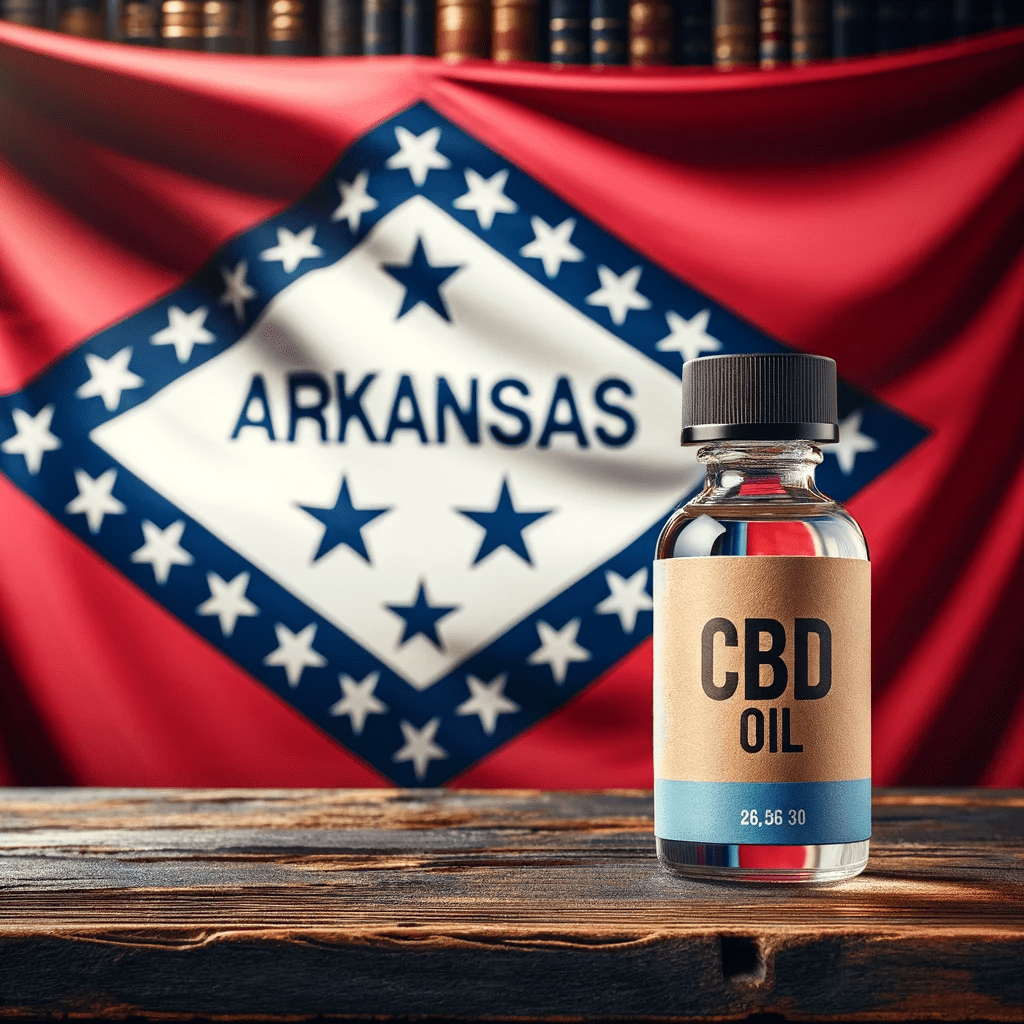
Yes, in Arkansas, you can have CBD oil and other CBD items as long as they come from hemp and have 0.3% THC or less, like the federal law says. The Arkansas Industrial Hemp Act of 2017 made hemp legal and let its growth and production increase within the state. This Act also started the Arkansas Hemp Program for research and growing hemp. So, making and selling hemp-based CBD oil and similar products is legal in Arkansas.
Continue reading Is CBD legal in ArkansasCBD, short for cannabidiol, has gained popularity for its potential health benefits. However, the legal status of CBD varies across different states in the United States. This article focuses on understanding the legal aspects of CBD in Arizona.
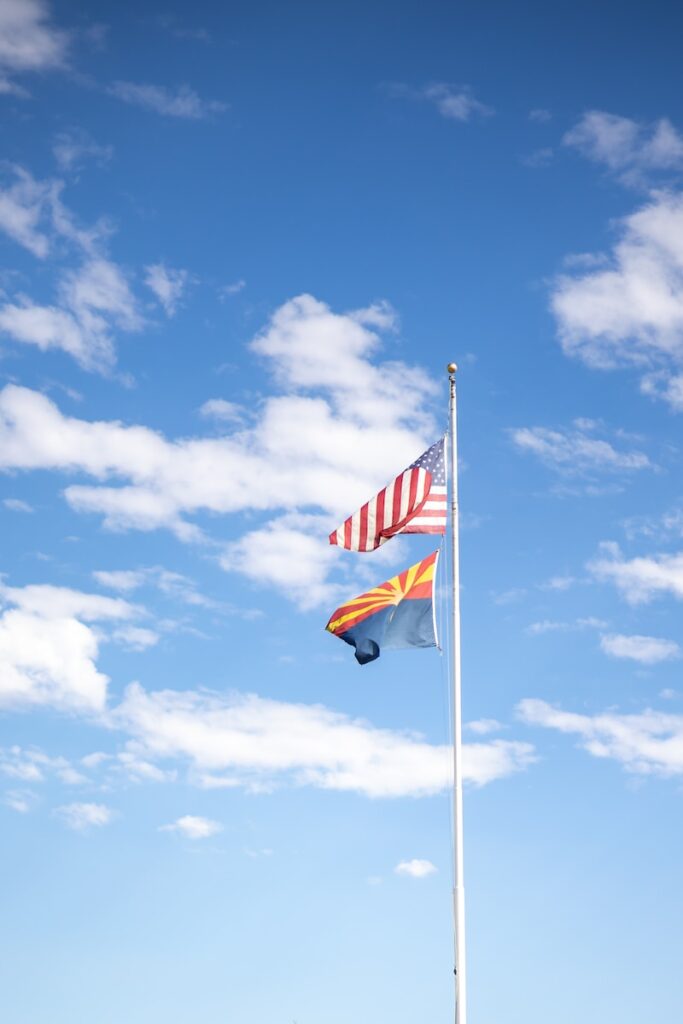
To begin, let’s explore the basics of CBD. CBD is a non-psychoactive compound found in the cannabis plant. It is often derived from hemp, a strain of cannabis with low levels of THC, the psychoactive component responsible for the “high” sensation. Understanding the difference between hemp and marijuana is crucial when discussing CBD laws.
The 2018 Farm Bill brought significant changes to CBD regulations at the federal level. It legalized the cultivation and production of hemp across the country, as long as it contains less than 0.3% THC. This legislation had a significant impact on CBD laws, including those in Arizona.
Arizona has its own specific laws regarding CBD. The state has both a medical marijuana program and recently legalized recreational marijuana. Understanding these two programs is important in determining the legality of CBD in Arizona.
CBD derived from hemp is legal in Arizona, as long as it meets the federal criteria of containing less than 0.3% THC. This means that CBD products made from hemp, such as oils, tinctures, and topicals, can be legally purchased and consumed in the state.
On the other hand, CBD derived from marijuana, which contains higher levels of THC, is only legal for medical marijuana patients in Arizona. These patients must have a qualifying medical condition and obtain a valid medical marijuana card.
As for where to buy CBD in Arizona, there are various options. Dispensaries, which are licensed outlets that sell medical marijuana products, are a common choice for those with a medical marijuana card. Retail stores that specialize in CBD products are also an option for purchasing CBD in the state. Online purchases provide a convenient way to access a wide range of CBD products.
It’s important to stay informed about the current laws and regulations regarding CBD to ensure compliance and make informed decisions.
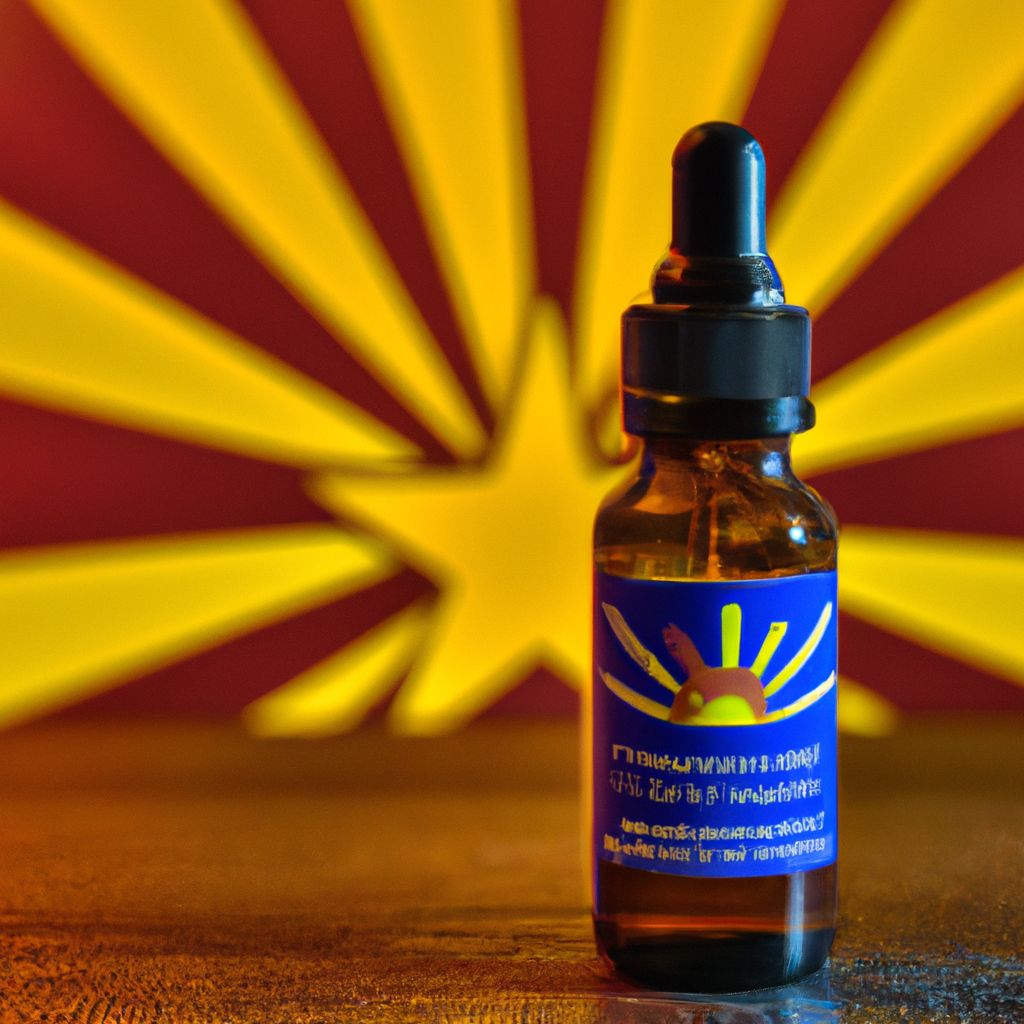
Discover the legal landscape of CBD in Arizona and uncover the intriguing distinctions between hemp and marijuana. Dive into the impact of the 2018 Farm Bill on CBD laws, exploring how it shapes the regulatory framework. Get ready to navigate the fascinating realm of CBD legality in Arizona and gain a deeper understanding of this plant-based remedy.
Understanding the difference between hemp and marijuana is crucial when it comes to discussing the legal status of CBD in Arizona. Here are some key points to consider:
The 2018 Farm Bill had a significant impact on CBD laws in the United States. This legislation legalized the cultivation and commercialization of hemp and its derived products, including CBD, at the federal level. Here are some key points about the 2018 Farm Bill and its impact on CBD laws:
“Arizona’s stance on CBD is crucial to understanding its legal status in the state. In this section, we will explore Arizona’s laws regarding CBD, focusing on their Medical Marijuana Program and the regulations surrounding recreational marijuana. From the legality of medical use to the restrictions on recreational consumption, we will dive into the details that determine CBD’s place in Arizona’s legal landscape. So, let’s unravel the intricacies and discover what Arizona’s laws have to say about CBD.”
The Medical Marijuana Program in Arizona provides access to medical marijuana for qualifying patients. To participate in the program, patients must meet certain criteria and obtain a medical marijuana card.
The program allows patients with debilitating medical conditions, such as cancer, HIV/AIDS, glaucoma, and chronic pain, to use medical marijuana as a therapeutic treatment. It is important to note that medical marijuana should be used under the guidance of a healthcare professional, as it can have both therapeutic and potential side effects.
To qualify for the Medical Marijuana Program, patients must be Arizona residents and have a qualifying medical condition. They need to obtain a written certification from a physician who is licensed to practice medicine in Arizona. The written certification must state that the physician has determined that the patient has a qualifying medical condition and that the potential benefits of using medical marijuana outweigh the potential risks.
Once patients have obtained their medical marijuana card, they can purchase medical marijuana from state-licensed dispensaries. These dispensaries are regulated by the Arizona Department of Health Services and adhere to strict guidelines to ensure the quality and safety of the products.
Patients are allowed to possess up to 2.5 ounces of usable medical marijuana within a 14-day period. They can purchase their medical marijuana from dispensaries or designate a caregiver to obtain it on their behalf. Caregivers must also apply for a registry identification card.
It is essential for patients to follow all regulations and guidelines set forth by the Medical Marijuana Program. Failure to do so can result in legal consequences.
When it comes to recreational marijuana laws in Arizona, there are specific regulations in place that govern its use and possession.
It is important to note that while recreational marijuana is legal in Arizona, there are still regulations and restrictions in place. It is crucial to familiarize yourself with these laws to ensure compliance and avoid any legal issues.
Wondering about the legal status of CBD in Arizona? Let’s dive into the topic and explore the legality of CBD in the Grand Canyon State.
We’ll start by examining the legal landscape surrounding CBD derived from hemp, and then we’ll move on to the regulations regarding CBD derived from marijuana. Get ready to uncover the legal nuances and distinctions that shape the CBD industry in Arizona.
When considering the legality of CBD derived from hemp, it is important to understand the current laws and regulations in place. Here are some key points to consider:
When shopping for CBD products derived from hemp, it is essential to be informed about the laws and regulations governing their legality. By choosing products that comply with federal and state regulations, you can enjoy the benefits of CBD without any legal concerns.
Ensuring the Legality of CBD Derived from Hemp
The legality of CBD derived from marijuana in Arizona is subject to certain regulations outlined by the state’s laws and regulations. Here are some key points to consider:
Fact: As of 2021, there are over 297,000 registered medical marijuana patients in Arizona, highlighting the widespread use and acceptance of medical marijuana, including CBD derived from marijuana, within the state’s healthcare system.
By understanding the legality of CBD derived from marijuana in Arizona, individuals can make informed decisions regarding its access and use for medical purposes while complying with the state’s laws and regulations.
Looking to get your hands on some CBD in Arizona? We’ve got you covered! In this section, we’ll explore the various avenues where you can purchase CBD in the Grand Canyon State. From dispensaries to retail stores and online options, we’ll dive into the exciting world of CBD availability in Arizona. So, whether you prefer browsing the shelves or conveniently shopping from the comfort of your own home, we’ll guide you towards the best places to find your favorite CBD products in Arizona.
Here is a table showing some key information about dispensaries in Arizona:
| Name | Location | Types of CBD Products | Availability |
|---|---|---|---|
| GreenPharms Dispensary | Mesa, AZ | Full range of CBD products including oils, tinctures, edibles, and topicals | In-store purchase only |
| The Giving Tree Wellness Center | Phoenix, AZ | Wide variety of CBD products, both in THC-dominant and THC-free options | In-store and online purchase |
| Arizona Natural Selections | Peoria, AZ | Large selection of CBD products, including oils, capsules, and vape cartridges | In-store purchase only |
| MÜV Dispensary | Scottsdale, AZ | High-quality CBD oils, topicals, and concentrates | In-store and online purchase |
Dispensaries in Arizona are licensed establishments that provide a wide range of CBD products. Here are some important facts to consider when choosing a dispensary:
– Legal Requirements: Make sure the dispensary you choose is operating under the legal guidelines set by the state of Arizona. Verify their licensing and compliance with local laws and regulations.
– Product Variety: Look for a dispensary that offers a diverse selection of CBD products. This ensures that you can find the specific type of CBD product that best suits your needs, whether it’s oils, tinctures, edibles, or topicals.
– Quality Assurance: Consider dispensaries that prioritize quality control. Look for those that source their CBD products from reputable manufacturers and conduct third-party lab testing to ensure purity and potency.
– Availability: Some dispensaries offer online purchasing options, allowing you to conveniently order CBD products from the comfort of your own home. However, not all dispensaries offer this service, so check their availability options before making a decision.
– Customer Reviews: Take the time to read customer reviews and testimonials about the dispensary you are considering. This can provide valuable insights into the overall customer experience and the quality of their CBD products.
Remember, not all dispensaries are the same, so it’s important to do your research and choose a reputable establishment that aligns with your needs and preferences.
By considering these factors, you can confidently choose a dispensary in Arizona that meets your CBD requirements.
When it comes to purchasing CBD in Arizona, there are several retail stores where you can find a wide variety of products. Here is a list of retail stores where you can buy CBD:
It’s important to note that the availability and selection of CBD products may vary from store to store. Additionally, it’s recommended to do some research and read customer reviews before making a purchase from a specific retail store to ensure the quality and reliability of the products being sold.
Over the past few years, the CBD market in Arizona has experienced significant growth. As more people become aware of the potential benefits of CBD, the demand for retail stores that sell CBD products has increased. This growth in demand has led to the expansion of CBD availability, with various retail stores now offering a wide range of CBD options. With ongoing developments in the legal status of CBD and the increasing acceptance of its potential health benefits, it is expected that the retail landscape for CBD in Arizona will continue to evolve and expand in the coming years.
When it comes to purchasing CBD products in Arizona, online purchases provide a convenient and accessible option. Here are some key points to consider:
Considering these factors, online purchases can be a convenient and reliable option when buying CBD products in Arizona. However, it’s important to ensure that you buy from reputable retailers that prioritize quality and transparency.
Remember to check the shipping policies, return or refund options, and customer support provided by the online retailer before making an online purchase. Reading the terms and conditions can also give you a better understanding of their online services.
With these considerations in mind, take advantage of the convenience that online shopping offers and explore the wide range of CBD products available to find the one that suits your needs.
Yes, CBD is legal in Arizona. Both hemp-based and marijuana-based CBD products are legal, with some minor exceptions. It is important to understand the difference between hemp and marijuana, as CBD comes from the hemp plant and contains less than 0.3% THC. Arizona follows federal guidelines for CBD established in the 2018 Farm Bill.
In Arizona, CBD derived from hemp is legal and considered an agricultural product separate from marijuana. To cultivate, process, and harvest hemp or CBD in Arizona, individuals must apply for a license from the Arizona Department of Agriculture and meet certain requirements. There are no possession limits for CBD oil and other CBD products as long as they contain less than 0.3% THC.
Yes, anyone can purchase and use CBD in Arizona as long as the products meet the legal requirements. There is no specific age limit for obtaining and using CBD products in the state, although some retailers may require buyers to be at least 18 years old.
CBD products can be purchased from various establishments throughout Arizona, including smoke shops, CBD stores, marijuana dispensaries, gas stations, specialty wellness boutiques, grocery stores, and restaurants. They can also be purchased online from reputable retailers that provide information about their products’ testing policies and accuracy guarantees.
To ensure the quality and safety of CBD products in Arizona, it is important to check third-party lab reports, read ingredients, and customer reviews. Buying from reputable sellers and manufacturers, who have had proper testing conducted, can also help ensure that you are getting high-quality products.
While CBD is legal in Arizona, it is important to note that CBD products cannot be advertised as dietary supplements or added to food and beverages according to FDA guidelines. Additionally, while there are no possession limits for CBD products, registered medical patients have possession limits for cannabis-derived CBD products.
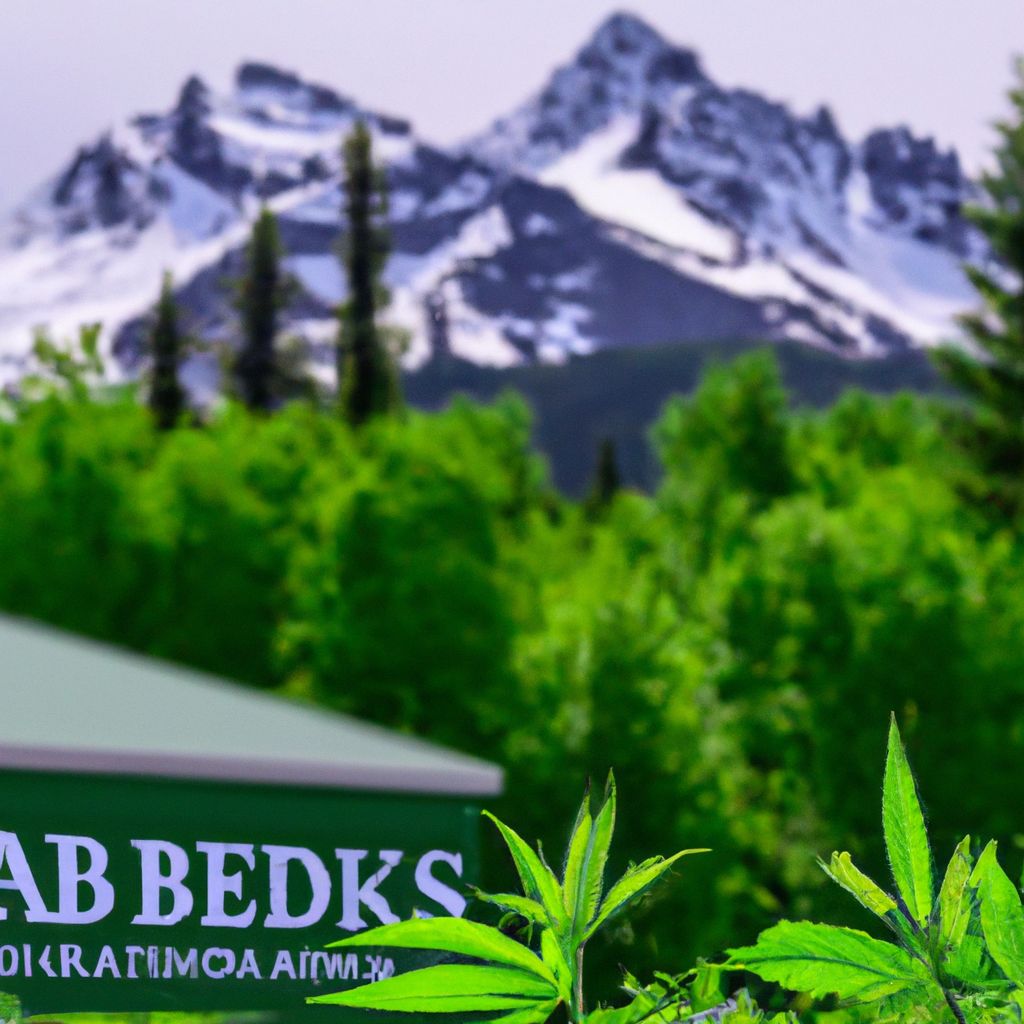
CBD, short for cannabidiol, has gained significant popularity in recent years for its potential health benefits. However, the legality of CBD can vary from state to state. Understanding the legal considerations and regulations surrounding CBD is essential for consumers to ensure compliance and make informed choices. This article will provide an overview of CBD, its legal status in the United States, and specifically delve into the legality of CBD in Alaska.
Understanding CBD:
CBD is a non-intoxicating compound found in cannabis plants. It is known for its potential therapeutic properties, such as alleviating pain, reducing anxiety, and promoting relaxation. CBD works by interacting with the body’s endocannabinoid system, which is responsible for maintaining balance and regulating various bodily functions.
Legal Considerations of CBD:
The legal status of CBD in the United States is complex and can be influenced by federal and state laws. While CBD derived from hemp, a variety of cannabis with low THC content, was federally legalized with the passage of the 2018 Farm Bill, individual states can have their own regulations and restrictions.
Is CBD Legal in Alaska?
In the state of Alaska, CBD is legal under certain circumstances. The current legal status of CBD in Alaska allows for the sale and purchase of CBD products derived from industrial hemp as long as they contain less than 0.3% THC. However, it is important to note that CBD derived from marijuana, which contains higher levels of THC, is only legally available to eligible patients through the state’s medical marijuana program.
Regulations and Restrictions on CBD in Alaska:
Aside from the THC content restriction, there are additional regulations and restrictions on CBD in Alaska. Age restrictions apply, and individuals must be 21 years old or older to purchase and consume CBD products. There are also specific regulations regarding the sale and purchase of CBD, including licensing requirements for businesses and product labeling requirements to ensure transparency for consumers.
Where to Buy CBD in Alaska?
CBD products can be purchased from various sources in Alaska. Licensed dispensaries are available for those who are registered medical marijuana patients. Online retailers offer a wide range of CBD products, providing convenience and accessibility to consumers.
Importance of Understanding CBD Laws:
Understanding CBD laws is crucial for consumers to navigate the ever-evolving landscape of CBD regulations. By staying informed about the legal status and regulations in their state, consumers can make informed decisions and ensure compliance with applicable laws.
Understanding CBD is crucial for anyone interested in exploring its potential benefits. Here are some key points to consider:
Pro-tip: When purchasing CBD products, look for reputable brands like here at Quiet Monk that provide third-party lab testing to ensure quality and purity. Additionally, consider consulting a healthcare professional familiar with CBD to discuss potential interactions with any medications you may be taking.
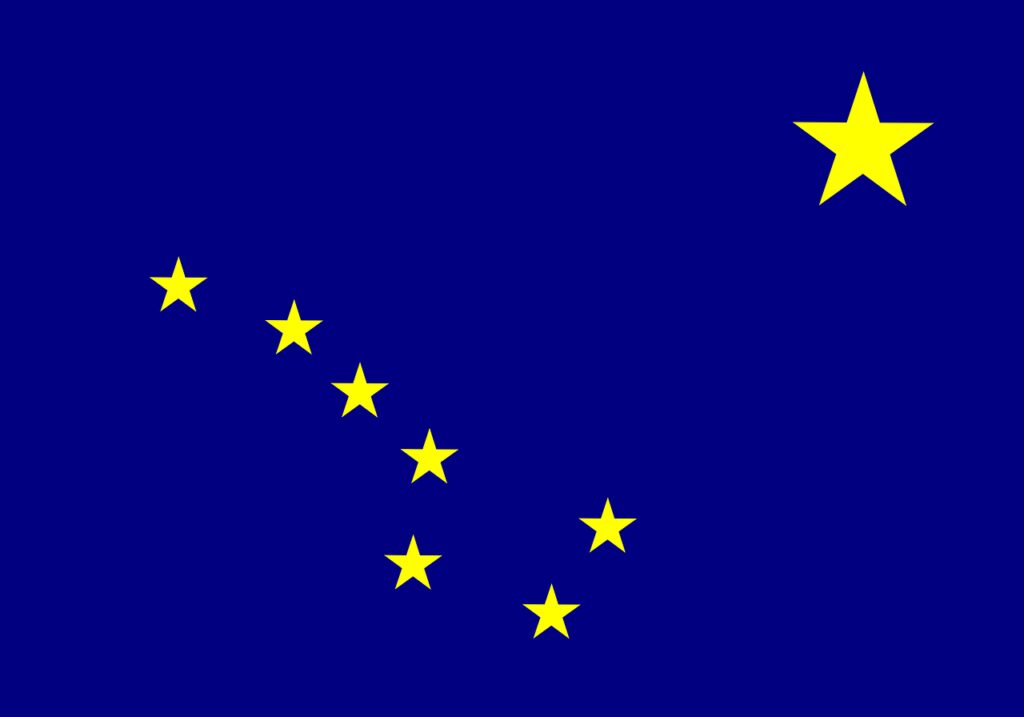
When exploring the sub-topic of “What is CBD?”, it is crucial to have a comprehensive understanding of this compound. Here are some vital points to consider:
Understanding what CBD is and its potential benefits is essential for making informed decisions when using CBD products. It is always recommended to consult with a healthcare professional before incorporating CBD into your routine, especially if you have any pre-existing health conditions.
CBD, or cannabidiol, has gained popularity for its potential health benefits. Understanding how CBD works can help individuals make informed decisions about its use. CBD interacts with the body’s endocannabinoid system, which consists of receptors that regulate mood, sleep, and pain perception. By binding to these receptors, CBD can influence their activity and potentially provide therapeutic effects. Additionally, CBD affects neurotransmitters like serotonin and dopamine in the brain, modulating their release and uptake. This modulation may contribute to CBD’s calming and mood-enhancing effects. CBD also possesses anti-inflammatory properties, inhibiting the production of inflammatory molecules and reducing immune cell activation. This action may benefit conditions such as arthritis and inflammatory diseases. Moreover, CBD has potential analgesic effects by interacting with receptors involved in pain perception and modulation. By affecting these receptors, CBD may alleviate pain and discomfort. Furthermore, CBD exhibits antioxidant properties, protecting cells from damage caused by free radicals. This action may support overall well-being and have potential neuroprotective effects. It is important to note that more research is needed to fully understand CBD’s mechanisms of action and potential benefits. Individual responses to CBD can vary, so it is recommended to consult with a healthcare professional before starting CBD supplementation.
Navigating the legal landscape of CBD can be a whirlwind, but fear not! In this section, we’ll dive into the legal considerations of CBD. Get ready to unravel the complexities and discover the legal status of CBD in the United States. From regulatory frameworks to recent developments, we’ll bring you the facts straight from the source. So hold on tight as we explore the legal side of CBD that you need to know.
CBD, short for cannabidiol, is a compound derived from the hemp plant. Understanding the legal status of CBD in the United States is crucial for consumers and businesses alike.
Here are the key points regarding the legal status of CBD in the United States:
1. CBD derived from hemp: In 2018, the Farm Bill legalized the production and sale of hemp and its derivatives, including CBD, at the federal level. As long as the CBD is derived from hemp with a THC content of 0.3% or less, it is considered legal.
2. CBD derived from marijuana: Marijuana-derived CBD is subject to different regulations. While some states have legalized marijuana for both medical and recreational use, it is still prohibited at the federal level. The legality of marijuana-derived CBD varies from state to state.
3. FDA regulations: The Food and Drug Administration (FDA) regulates the marketing and labeling of CBD products. Currently, the FDA does not allow the sale of CBD as a dietary supplement or food ingredient. However, they have approved one CBD-based prescription drug for the treatment of epilepsy.
4. State regulations: Each state has the authority to regulate the production, sale, and use of CBD within its borders. Some states have aligned their laws with the federal regulations, allowing the sale of hemp-derived CBD products, while others have stricter regulations or have banned CBD altogether.
5. Legitimacy of sellers: It is important for consumers to purchase CBD products from reputable sellers who comply with the applicable laws and regulations. Buyers should look for third-party lab testing reports and clear product labels to ensure the quality and legality of the CBD they are purchasing.
Understanding the legal status of CBD in the United States is vital to ensure compliance and avoid legal issues. It is recommended to stay updated on both federal and state regulations surrounding CBD as they continue to evolve.
TRUE STORY:
One example of the evolving legal status of CBD is the case of Sarah, a woman from Colorado. Sarah had been using CBD oil to manage her chronic pain condition for years. However, when she traveled to a neighboring state where CBD was not yet legal, she was stopped by law enforcement. Despite carrying a CBD product with a THC content below the legal limit, she was temporarily detained and faced legal consequences. This incident highlights the importance of understanding and adhering to the legal status of CBD in different states, even within the same country.
Discover the legal landscape of CBD in Alaska and find out if it’s permissible in this northern frontier. Delve into the current legal status of CBD in Alaska, exploring its regulations and limitations. Uncover the facts and figures surrounding CBD legality in Alaska, providing clarity on this trending topic. Get ready to unravel the legal complexities and gain a comprehensive understanding of CBD‘s position in the Last Frontier.
The current legal status of CBD in Alaska is that it is legal for both medical and recreational use. In 2014, Alaska became one of the first states to legalize recreational cannabis, which includes CBD products with less than 0.3% THC. This means that CBD derived from hemp, which is classified as cannabis with low THC content, is legal to possess, use, and purchase in Alaska.
However, it is important to note that CBD products must be properly labeled and meet certain quality standards. The Alaska Department of Health and Social Services oversees the regulation of CBD products and ensures compliance with labeling requirements. This helps ensure that consumers have access to safe and accurately labeled CBD products.
When purchasing CBD in Alaska, it is recommended to buy from licensed dispensaries or reputable online retailers. Licensed dispensaries can provide guidance on selecting products and offer quality assurance. Online retailers may also provide a wide range of CBD products for convenient access.
Understanding the current legal status of CBD in Alaska is essential for consumers to protect themselves and make informed choices. By following the guidelines set by regulatory authorities, consumers can ensure they are purchasing legal and safe CBD products. Additionally, staying updated on any changes or consumer protection alerts regarding CBD laws is crucial for a positive CBD experience.
For individuals in Alaska looking to explore the potential health and wellness benefits of CBD, it is advised to consult with healthcare professionals and abide by the relevant licensing requirements. By being knowledgeable and informed, consumers can make the best choices when it comes to CBD products.
Remember to stay updated on any changes in CBD laws and regulations in Alaska to ensure compliance and a positive CBD experience.
Curious about the legal status of CBD in Alaska? Let’s dive into the regulations and restrictions surrounding this popular hemp-derived compound. We’ll uncover key details regarding age restrictions, sale and purchase regulations, and product labeling requirements. Get ready to navigate the CBD landscape in Alaska and stay informed on what you need to know before incorporating CBD into your daily routine.
The age restrictions regarding the purchase and consumption of CBD products are as follows:
It is important to note that these age restrictions are in place to ensure the responsible and legal use of CBD products. By setting a minimum age requirement, it helps to prevent underage individuals from accessing and using CBD products.
Ensuring compliance with age restrictions is crucial for both retailers and consumers. Retailers must abide by these regulations to avoid legal consequences and to prioritize the safety and well-being of their customers.
Consumers should also be aware of the age restrictions and should not attempt to purchase or use CBD products if they are under the legal age limit. Following these regulations promotes responsible use and helps maintain the integrity of the CBD industry.
By adhering to the age restrictions, individuals can safely and legally enjoy the potential benefits of CBD products without compromising their own well-being or breaking any laws.
When purchasing CBD products in Alaska, it is essential to consider the Sale and Purchase Regulations that govern the industry. These regulations aim to protect consumers and ensure the quality and safety of CBD products. By understanding and following these regulations, consumers can make informed decisions and have confidence in the CBD products they are purchasing. Retailers, on the other hand, must adhere to these regulations to maintain compliance and build trust with their customers. Through age restrictions, licensing, proper product labeling, compliance with FDA regulations, and adherence to importation and commerce regulations, the sale and purchase of CBD products in Alaska can be regulated effectively. It is crucial for both retailers and consumers to stay updated with any changes or new regulations to ensure the legality and integrity of the CBD industry in Alaska.
To ensure compliance and provide accurate information to consumers, CBD products are subject to specific product labeling requirements. These requirements help guide consumers in making informed decisions about the CBD products they purchase. Here are some key elements that should be included in the product labeling:
Pro-tip: Always carefully read and understand the product labeling before using any CBD product. It is essential to follow the instructions provided and consult with a healthcare professional if you have any specific concerns or questions.

Looking to get your hands on CBD in Alaska? Look no further! In this section, we’ll explore the best places to buy CBD products in the Last Frontier. From licensed dispensaries that offer an array of options, to online retailers that deliver straight to your door, we’ve got you covered. So, whether you prefer a brick-and-mortar experience or the convenience of shopping online, we’ll provide all the information you need to find the perfect CBD retailer in Alaska.
Of course you could just order right here from Quiet Monk!
When it comes to purchasing CBD products in Alaska, licensed dispensaries are the best option. These licensed dispensaries have gone through the necessary legal processes and meet certain standards to ensure the quality and safety of their CBD products.
The legalization of cannabis and CBD products in Alaska has led to the emergence of licensed dispensaries. In 2015, Alaska became one of the first states to legalize recreational marijuana. This paved the way for the establishment of licensed dispensaries where consumers can access CBD products in a regulated and safe manner. The state continues to monitor and regulate the industry to ensure that consumers have access to high-quality CBD products from trusted sources.
When considering purchasing CBD products, online retailers offer a convenient and accessible option. Here are some factors to consider when choosing online retailers for CBD:
By considering these factors, you can ensure a positive online shopping experience when purchasing CBD products. Remember to do thorough research and choose reputable online retailers to ensure the quality and authenticity of the products you purchase.
Understanding CBD laws is crucial in order to navigate the landscape of hemp-derived products effectively.
In this section, we’ll uncover key aspects of the regulatory framework surrounding CBD, shedding light on topics such as consumer protection, FDA regulations, and federal guidelines.
We will also explore the legality of CBD oil and the importance of identifying legitimate sellers.
Furthermore, we’ll touch upon licensing requirements and consumer protection alerts, while delving into the health and wellness benefits associated with CBD.
The Consumer Protection Unit, also known as the CPU, plays a vital role in safeguarding the safety and rights of consumers in relation to CBD products. The unit has the responsibility of enforcing laws and regulations that protect consumers from unfair or deceptive business practices. In addition, they ensure that CBD products meet the necessary standards for safety and efficacy.
Monitoring and regulating CBD products to prevent misleading claims or deceptive packaging is one of the key tasks undertaken by the Consumer Protection Unit. Their main focus is to ensure that all CBD products sold in Alaska are properly labeled, providing accurate and reliable information about the product’s ingredients, potency, and recommended dosage. This transparency allows consumers to make well-informed decisions regarding their purchases.
The Consumer Protection Unit also works closely with the FDA to ensure that CBD products comply with federal regulations. They collaborate with other regulatory agencies to create a comprehensive regulatory framework that governs the production, sale, and advertising of CBD products. This framework upholds the integrity of the CBD industry and shields consumers from potential health risks associated with substandard or contaminated products.
In addition to regulating CBD products, the Consumer Protection Unit offers resources and information to consumers regarding the legality of CBD oil in Alaska. They provide clarification on federal guidelines and licensing requirements for CBD sellers and educate consumers about their rights and protections when purchasing CBD products. By doing so, the unit ensures that consumers have access to legitimate sellers and are aware of any consumer protection alerts related to CBD in Alaska.
The Consumer Protection Unit’s oversight of the importation and commerce regulations of CBD products is of utmost importance. They work diligently to ensure that CBD products imported into Alaska meet the necessary safety and quality standards. By enforcing these regulations, the unit effectively protects consumers from potentially harmful or ineffective CBD products.
Furthermore, the Consumer Protection Unit recognizes the potential health and wellness benefits of CBD and supports responsible and legitimate sellers in providing safe and effective products to consumers. They strive to create an environment where consumers can confidently explore the benefits of CBD without compromising their well-being.
Unfair or deceptive business practices can have serious consequences for consumers and the CBD industry. It is crucial to be aware of these practices and understand how to identify them.
1. Mislabeling: Some CBD products may be mislabeled, either intentionally or mistakenly. This can result in consumers purchasing products that do not contain the advertised amount of CBD or contain harmful additives. It is vital to thoroughly read product labels and check for third-party lab testing to ensure transparency and accuracy.
2. False Claims: Some CBD companies may make exaggerated or false claims about the health benefits of their products. It is important to be skeptical of claims that appear too good to be true and to rely on scientific research and reputable sources for information on CBD’s potential benefits.
3. Price Gouging: During times of high demand or limited supply, some CBD companies may engage in price gouging, charging exorbitant prices for their products. It is crucial to compare prices and research market rates to ensure you are not being overcharged.
4. Poor Quality Control: Some CBD companies may prioritize quantity over quality, resulting in contaminated products or those that do not meet safety standards. Look for companies that prioritize quality control and undergo third-party testing to ensure the safety and purity of their products.
5. Unsubstantiated Marketing Claims: Some CBD companies may make marketing claims that are not supported by scientific evidence. Look for companies that provide sources and references for their claims, as well as those that are transparent about the limitations of current research.
It is essential for consumers to be informed and discerning when choosing CBD products. Research and due diligence are key to avoiding unfair or deceptive business practices and finding reputable companies that prioritize quality, transparency, and consumer safety. (Table is left unchanged)
The FDA regulations, known as FDA Regulations, play a crucial role in governing the use and distribution of CBD products in the United States. It is essential to understand these FDA Regulations to ensure compliance and consumer safety.
1. The FDA has not approved CBD as a food additive or dietary supplement. CBD-infused products, such as edibles, beverages, and dietary supplements, are not currently allowed for interstate commerce under FDA Regulations.
2. The FDA has approved one CBD-based medication called Epidiolex for the treatment of certain types of epilepsy. This medication has undergone rigorous clinical trials and meets the FDA’s standards for safety and effectiveness as per FDA Regulations.
3. The FDA is actively evaluating the potential risks and benefits of CBD. They have issued warning letters to companies making false claims about the therapeutic benefits of CBD products, in accordance with FDA Regulations. The agency is working towards developing a regulatory framework for CBD under FDA Regulations.
4. The FDA has conducted laboratory testing on CBD products to determine their contents and ensure they do not contain harmful substances, in accordance with FDA Regulations. They have found some products to be mislabeled or contain higher levels of THC than permitted by law.
5. The FDA encourages consumers to report adverse reactions or quality issues with CBD products to their MedWatch program. This helps the FDA monitor the safety and quality of these products, as required by FDA Regulations.
6. The FDA works closely with state and local authorities to enforce regulations on CBD products. They may take action against companies that violate FDA Regulations, including issuing warning letters, seizing products, or initiating legal proceedings.
Understanding FDA Regulations is essential for both consumers and businesses operating in the CBD industry. It ensures that CBD products are safe, accurately labeled, and meet regulatory standards as outlined by FDA Regulations. As the FDA continues to evaluate and develop regulations, staying informed about any updates or changes is crucial for all stakeholders involved.
When it comes to CBD products, understanding the regulatory framework is crucial. It helps consumers and businesses navigate the legal landscape and make informed choices. The regulatory framework for CBD in Alaska is governed by various laws and agencies, with the Alaska Department of Health and Social Services (DHSS) overseeing the regulation of CBD products in the state.
| Regulatory Framework |
| Age Restrictions |
| There are specific age restrictions for the purchase and use of CBD products in Alaska. Consumers must be at least 21 years old to legally purchase CBD products. |
| Sale and Purchase Regulations |
| CBD products can only be sold by licensed dispensaries or online retailers authorized by the state. It is important to ensure that you are purchasing from a legitimate and licensed source. |
| Product Labeling Requirements |
| CBD products sold in Alaska must meet specific labeling requirements. These requirements include providing accurate information about the CBD content, ingredients, and any potential side effects or warnings. |
| Licensing Requirements |
| Businesses that wish to sell CBD products in Alaska must obtain the necessary licenses and permits from the Alaska DHSS. Compliance with licensing requirements is crucial to ensure legality and consumer safety. |
| Importation and Commerce Regulations |
| CBD products sold in Alaska must adhere to importation and commerce regulations. This includes complying with federal guidelines and ensuring that the products meet quality standards and are safe for consumption. |
Understanding the regulatory framework surrounding CBD is essential for both consumers and businesses. It helps ensure the legality, safety, and quality of CBD products in Alaska. Compliance with regulations protects consumers from unfair or deceptive business practices and offers consumer protection alerts when necessary.
Story: Mary was a CBD enthusiast who wanted to try different CBD products for her health and wellness. She did her research and made sure to purchase CBD products from licensed dispensaries in Alaska, ensuring that she was supporting legitimate sellers who complied with the regulatory framework. Mary also paid attention to product labeling requirements, making sure to choose products that provided accurate information about CBD content and any potential side effects. By understanding the regulatory framework, Mary felt confident in her CBD purchases and enjoyed the health and wellness benefits that CBD provided.
CBD oil is a popular product that has gained attention for its potential health benefits. However, it’s important to understand the legality of CBD oil before using or purchasing it. Here are some key points to consider:
1. The legality of CBD oil can differ from state to state. It’s crucial to know the specific laws and regulations in your area regarding the production, sale, and use of CBD oil.
2. At the federal level, CBD oil derived from hemp is legal. The 2018 Farm Bill legalized the cultivation and sale of hemp and its derivatives, including CBD oil, as long as it contains less than 0.3% THC (the psychoactive compound in cannabis).
3. Each state has the authority to establish its own laws regarding CBD oil. Some states have fully legalized CBD oil, both derived from hemp and marijuana, while others have stricter regulations or only allow CBD oil with minimal THC content.
4. In Alaska, CBD oil derived from hemp is legal as long as it meets federal guidelines. However, CBD oil derived from marijuana is only legal for medical use and requires a valid medical marijuana card.
5. When purchasing CBD oil, it’s crucial to buy from reputable sources. Look for sellers that provide third-party lab testing to ensure the quality and potency of the product.
6. If you’re considering purchasing CBD oil from another state or online, make sure it complies with Alaska’s importation and commerce regulations.
7. CBD oil has been touted for its potential therapeutic properties, such as pain relief, anxiety reduction, and improved sleep. However, it’s important to consult with a healthcare professional before using CBD oil for any specific health concerns.
Understanding the legality of CBD oil is essential to ensure compliance with local laws and regulations. By being informed, you can make an educated decision when considering the purchase or use of CBD oil. Remember to always prioritize your health and safety when it comes to any supplement or wellness product.
The federal guidelines regarding CBD provide important regulations and considerations for its legal use and distribution in the United States. Here is a table summarizing key points of the federal guidelines:
| Guideline | Description |
|---|---|
| Legal Status | CBD is legal if derived from hemp and contains less than 0.3% THC. |
| FDA Regulations | The FDA regulates CBD products, including labeling requirements and manufacturing practices. |
| Regulatory Framework | There is a framework in place for the cultivation, processing, and sale of hemp-derived CBD. |
| Importation and Commerce Regulations | Importing and interstate commerce of CBD products must comply with federal regulations. |
| Health or Wellness Benefits | CBD products cannot make unsupported health claims and must adhere to strict advertising guidelines. |
| Licensing Requirements | Individuals and businesses involved in the CBD industry may need to obtain specific licenses or permits. |
| Consumer Protection Alerts | Consumer protection agencies provide alerts and information regarding the legality and safety of CBD products. |
The federal guidelines set clear parameters for the legal status of CBD, ensuring that it is derived from hemp and contains minimal levels of THC. The FDA plays a significant role in regulating CBD products to ensure their safety and proper labeling. A regulatory framework is established to govern cultivation, processing, and sale practices. Importation and commerce of CBD products are subject to federal regulations, ensuring compliance across state lines.
Health and wellness benefits of CBD cannot be exaggerated, and advertisements are required to adhere to strict guidelines to prevent misleading claims. Individuals and businesses involved in the CBD industry may need to obtain specific licenses or permits to operate legally. Consumer protection alerts provide valuable information to buyers, allowing them to make informed choices regarding CBD products.
These federal guidelines create a robust framework for the legal use and distribution of CBD products, ensuring consumer safety and industry compliance. By adhering to these guidelines, individuals and businesses can navigate the CBD market with confidence.
When it comes to purchasing CBD products, it’s important to ensure that you are buying from legit sellers who provide high-quality and reliable products. Here are some key factors to consider:
By considering these factors, you can make an informed decision and choose a legit seller who offers high-quality CBD products that meet your needs and expectations. Remember to consult with a healthcare professional before starting any new dietary supplement or wellness routine.
When it comes to importation and commerce regulations, Alaska has specific guidelines that must be followed. These regulations ensure that the import and sale of CBD products within the state are legal and meet certain standards.
| Importation and Commerce Regulations | Description |
| State Licensing | All businesses involved in the importation and commerce of CBD products in Alaska must obtain the necessary state licenses. This includes both online retailers and licensed dispensaries. These licenses ensure that the businesses are operating legally and comply with local regulations. |
| Product Testing | CBD products imported and sold in Alaska must undergo thorough testing to ensure their safety and quality. This testing includes checks for potency, purity, and the absence of harmful substances. The results of these tests must be made available to consumers upon request. |
| Labeling Requirements | CBD products must have proper labeling that includes accurate information about the product’s ingredients, dosage, and potential side effects. The labels must also comply with any specific requirements set out by the state of Alaska, ensuring that consumers have transparent information about the products they are purchasing. |
| Importation Restrictions | There may be restrictions on the importation of CBD products from certain states or countries. It is important for businesses to be aware of these importation and commerce regulations and ensure that the products they import comply with all relevant laws and regulations. |
Importation and commerce regulations play a vital role in ensuring that CBD products available in Alaska meet legal and safety standards. By adhering to these regulations, businesses can provide consumers with access to high-quality CBD products while maintaining compliance with the law.
Fact: Alaska was one of the first states to legalize the recreational use of cannabis, including CBD products, in 2014.
When it comes to CBD, there are several health or wellness benefits associated with its use. These benefits can vary depending on the individual and the specific circumstances, but here are some potential benefits of CBD:
It is important to note that while there is a growing body of research supporting these health or wellness benefits, more studies are needed to fully understand the extent of CBD’s effects on health and wellness. Additionally, individual experiences may vary, and it is important to consult with a healthcare professional before starting any CBD regimen.
When it comes to CBD, understanding the licensing requirements is crucial. Here are some key points to consider:
By understanding and complying with the licensing requirements for CBD in Alaska, businesses can operate legally and provide consumers with safe and reliable products. It is crucial to stay informed about any updates or changes to the licensing regulations to ensure ongoing compliance.
When it comes to consumer protection alerts regarding CBD in Alaska, it is crucial to stay informed and aware of any potential risks or issues. Here are some important points to consider:
By staying informed about consumer protection alerts related to CBD in Alaska, you can make well-informed choices and safeguard yourself from potential risks or scams. Always prioritize your safety and well-being when purchasing and using CBD products.
When considering purchasing CBD products, make sure you are well-informed about local regulations, product quality, and potential risks. It is always advisable to consult with a healthcare professional before using CBD or any other supplement.
Yes, CBD is legal in Alaska as long as it meets federal standards, containing less than 0.3% THC. Both marijuana and hemp-derived CBD oil are legal in the state.
Alaska permits both medical and recreational marijuana use, but there are restrictions in place. Hemp cultivation and processing are still prohibited, but CBD products can be purchased from retail locations and online.
Yes, the Consumer Protection Unit of the Department of Law in Alaska has issued a consumer alert regarding the sale of unregulated CBD oil products in the state. These products have not been authorized for sale and may lack purity or THC content testing.
Yes, CBD oil products are widely available in retail locations in Alaska, including dispensaries, pharmacies, and health food stores. Some popular locations for purchasing CBD oil include Anchorage, Juneau, and Wasilla.
Yes, buying CBD oil online is an option in Alaska. Many companies offer wholesale options, making it fast and convenient to purchase CBD products from the comfort of your own home.
Currently, the cultivation and marketing of industrial hemp are not legal in Alaska. The Department of Natural Resources is in the process of establishing an Industrial Hemp Pilot Program to regulate hemp cultivation in the future.
CBD, short for cannabidiol, has gained popularity for its potential health benefits. However, its legal status varies across different states in the United States. In this article, we will specifically focus on the legality of CBD in Alabama.

Before discussing Alabama’s CBD laws, let’s first understand the general legal status of CBD in the United States. As a result of the 2018 Farm Bill, CBD derived from hemp containing less than 0.3% THC (the psychoactive compound in marijuana) is legal at the federal level. However, individual states have the authority to regulate CBD within their borders.
In Alabama, the legal status of CBD is influenced by state laws. To provide an overview of Alabama CBD laws, it is essential to consider factors such as the source of CBD, THC content, and intended use. These laws govern the production, possession, and distribution of CBD products in the state.
It’s important to understand the conditions that qualify for CBD use in Alabama. Certain medical conditions may be eligible for CBD treatment, and it is crucial to know the specific requirements and guidelines set by the state.
Those interested in using CBD in Alabama need to know where they can legally purchase CBD products. Understanding the authorized retail sources will ensure compliance with state regulations and provide access to safe and reliable CBD products.
Lastly, safety is a significant concern when using CBD. It’s crucial to be aware of potential risks, side effects, and interactions with medication. Taking necessary precautions and consulting with a healthcare professional can help ensure the safe use of CBD in Alabama.
By delving into the legal framework, specific conditions, purchasing outlets, and safety considerations, this article aims to provide a comprehensive understanding of the legal status and practical aspects of using CBD in Alabama.
5000mg CBD Cream
The legal status of CBD in the United States varies depending on various factors such as its source, THC content, and state-specific regulations.
It is essential to research and understand the specific CBD laws in your state to ensure compliance with local regulations. The legal status of CBD in the United States is continuously evolving, with changes occurring at both the federal and state levels. Therefore, it is important to stay informed about any new legislation or updates regarding the legal status of CBD in your area.

Wondering about the legality of CBD in Alabama? Let’s dive into the topic and uncover whether CBD is legal in the state. We’ll start by providing an overview of Alabama’s CBD laws, exploring the regulations and restrictions that surround the use and distribution of CBD products in the state. Stay tuned to understand the legal landscape and make informed decisions about CBD in Alabama.
When it comes to understanding the legal landscape of CBD in Alabama, it is crucial to have an overview of Alabama CBD laws. The state has specific regulations in place that dictate the legality and usage of CBD products. Here are the key points you need to know:
1. Possession and use: In Alabama, the possession and use of CBD products derived from hemp are legal as long as they contain less than 0.3% THC, the psychoactive compound found in cannabis. This aligns with the federal regulations outlined in the 2018 Farm Bill.
2. Medical CBD: Alabama has also established a Medical CBD Program for individuals with qualifying medical conditions. This program allows patients to access CBD oil with higher THC content, but only if recommended and supervised by a licensed physician.
3. Purchasing CBD: CBD products can be purchased from various retailers throughout Alabama, including dispensaries, pharmacies, and online stores. It is essential to ensure that the CBD products you purchase comply with the legal requirements and come from reputable sources.
4. Age restrictions: The use and possession of CBD products in Alabama are limited to individuals who are 18 years or older. Minors can only use CBD oil if they have a qualifying medical condition and are under the supervision of a registered caregiver.
5. Lab testing and labeling: Alabama CBD laws require that CBD products undergo third-party lab testing to ensure quality and accuracy in labeling. This ensures that the CBD products consumers purchase are safe and accurately labeled with their CBD and THC content.
6. State oversight: The Alabama Department of Agriculture and Industries oversees the cultivation, processing, and sale of hemp-derived CBD products in the state. They regulate licensing for growers and processors to ensure compliance with state and federal laws.
It is important to note that while Alabama has legalized CBD under certain conditions, the laws surrounding CBD can be complex and subject to change. It is always advisable to stay updated with the latest regulations and consult with legal professionals or government agencies for specific guidance.
CBD use in Alabama is subject to specific conditions as outlined by the state regulations. It is important to understand which conditions qualify individuals for CBD use in Alabama.
It is important to note that individuals must meet specific criteria and obtain a recommendation from a qualified healthcare professional to legally use CBD in Alabama. The use of CBD should always be a collaborative decision between the patient and their healthcare provider to ensure safe and effective treatment.
Alabama’s regulations on the use of CBD for qualifying conditions reflect the growing body of research on the potential benefits of CBD in managing various medical conditions. As understanding and acceptance of CBD continues to evolve, it is crucial to stay informed about the latest guidelines and consult with healthcare professionals for personalized advice. Emphasizing the need for accurate information and responsible use of CBD is essential in promoting well-being within the boundaries of the law.
When it comes to buying CBD in Alabama, where can you buy CBD? There are several options available. Here is a list of places where you can purchase CBD products:
When purchasing CBD in Alabama, it is important to consider the following:
Remember, it is always a good idea to consult with a healthcare professional before starting any CBD regimen, especially if you have any pre-existing medical conditions or are taking medication that may interact with CBD.
Now that you know where to buy CBD in Alabama and what factors to consider, you can confidently choose the right CBD products that meet your needs and preferences.
Is it safe to use CBD in Alabama? When considering the safety of using CBD in Alabama, there are several important factors to keep in mind:
Fact: According to a survey conducted in 2020, around 14% of adults in Alabama reported using CBD products for various reasons, including pain relief, anxiety reduction, and improving sleep quality.
Yes, CBD is legal in Alabama as long as it is derived from hemp and contains less than 0.3% THC. Alabama follows the federal guidelines set by the 2018 Farm Bill, which removed industrial hemp and its derivatives from the Controlled Substances Act.
Hemp’s federally legal status in Alabama aligns with the 2018 Farm Bill, which legalized industrial hemp and hemp extracts with THC levels below 0.3%. This means that hemp-derived CBD products are legal in Alabama.
Yes, delta 8 THC is legal in Alabama, as long as it is derived from hemp and contains less than 0.3% THC. However, delta 9 THC, which is the primary psychoactive compound in marijuana, is considered illegal in Alabama.
No, doctors cannot prescribe CBD in Alabama. While they cannot prescribe it, doctors may recommend CBD to their patients for certain conditions. The only FDA-approved CBD product is a prescription oil called Epidiolex, which is used to treat certain severe forms of epilepsy.
In Alabama, licensing is required for hemp cultivation. Anyone interested in growing hemp must obtain a license from the Alabama Department of Agriculture and Industries. This ensures that hemp is being grown and processed in accordance with state regulations.
No, there are no possession limits for CBD products that meet the legal guidelines in Alabama. As long as the CBD product is derived from hemp and contains less than 0.3% THC, there are no restrictions on how much an individual can possess.
CBD Legalities in Michigan: Understanding the Laws and Licensing Requirements
CBD Legalities in Michigan: Understanding the Laws and Licensing Requirements
Michigan has emerged as a cannabis-friendly state with favorable laws surrounding CBD. Whether derived from hemp or marijuana, CBD is legal in Michigan, as the state has its own regulations regarding cannabis. In this article, we will delve into the CBD laws specific to Michigan and explore the licensing requirements within the state.

Exploring the Benefits and Legality of CBD in Michigan
CBD, short for cannabidiol, is a non-psychoactive compound extracted from the cannabis plant. Often found alongside THC, CBD offers a wide range of potential benefits, including anti-inflammatory, anti-oxidative, pain relief, anti-seizure, and anxiety relief properties. Numerous medical studies have showcased the therapeutic potential of CBD, making it a subject of growing interest.
To comprehend the laws governing CBD in Michigan, it is crucial to have a clear understanding of what CBD actually is.
Differentiating CBD from Marijuana within Michigan’s Legal Framework
While CBD is derived from the cannabis plant, it is essential to note that it is not synonymous with marijuana. CBD is merely obtained from a cannabis plant, and this distinction is vital to bear in mind. Both industrial hemp and marijuana belong to the cannabis plant species.
Understanding the difference between hemp and marijuana is crucial. Additionally, CBD is a non-psychoactive compound, unlike its cousin THC. Therefore, CBD cannot induce a high or intoxicating effect. As long as CBD is derived from hemp and contains less than 0.3% THC, it remains non-intoxicating.
In compliance with federal regulations, CBD products must be sourced from hemp to maintain legality. With a THC content of 0.3% or less, CBD products do not possess the potential to induce intoxication.
In fact, the THC concentration is so low that one could consume an entire container of CBD oil without experiencing any psychoactive effects. This makes CBD oil an appealing natural alternative to medications with harsh side effects. Extensive research and development have significantly contributed to the growing body of knowledge surrounding CBD oil.
However, it is important to note that the Food and Drug Administration (FDA) is still in the process of determining the approval process for CBD. Until this process is finalized, CBD oil will not achieve dietary supplement status.
Navigating the Complexities of CBD Legality
The legal status of CBD can vary from state to state, presenting a complex landscape. Although CBD is federally legal, individual states have their own regulations. While many states have aligned themselves with the 2018 Farm Bill and do not regulate finished CBD products, Michigan has its own unique approach.
In Michigan, both CBD and THC are legal. Typically, in states where CBD oil is legal, it is imperative to ensure that it is derived from hemp to ensure the THC content remains below 0.3%. However, since marijuana is recreationally legal in Michigan, the source of CBD becomes less significant.
It is essential to note that CBD products derived from marijuana can be intoxicating, while those sourced from hemp are not. This distinction is crucial, as not everyone enjoys the feeling of being high.
Revolutionizing Hemp Cultivation with the 2018 Farm Bill
The passage of the 2018 Farm Bill brought about a significant revolution in the realm of hemp and industrial hemp products. This legislation federally legalized the cultivation of hemp for recreational purposes.
The Farm Bill specifically removed hemp, defined as cannabis containing less than 0.3% THC by weight, from the list of controlled substances.
Regulatory Oversight and Considerations for CBD Oil
The Food and Drug Administration (FDA) holds the authority to regulate CBD oil product labeling, monitor therapeutic claims, and determine the usage of CBD for recreational and dietary purposes. Currently, the FDA does not permit the advertisement of hemp-derived CBD oil as a dietary supplement or as an additive to food and beverages.
The FDA is responsible for authorizing any health claims made by CBD oil products. However, apart from the pharmaceutical drug Epidiolex, no other medications have received this designation. While the FDA has maintained strict regulations in the past, it has shown signs of softening these restrictions and considering appropriate legislation for labeling CBD oil as a dietary supplement.
Furthermore, the Farm Bill has granted states the power to decide whether to allow or prohibit the cultivation and business of CBD within their jurisdictions.
Understanding the Legal Status of CBD in MI
CBD products are fully legal in Michigan, including marijuana products. As a result, there is no need to ensure that CBD products are derived from hemp unless you wish to avoid the psychoactive effects associated with marijuana.
Remember, hemp-derived CBD products contain less than 0.3% THC to comply with federal guidelines, while marijuana products can have THC contents exceeding 25% or more.
If you prefer not to experience a high, it is advisable to use CBD products derived from hemp.
Navigating the Licensing Landscape
According to Michigan state law, licenses are not required for CBD products containing less than 0.3% THC. The state does have an industrial hemp program established by the Michigan Department of Agriculture and Rural Development (MDARD). The program allows farmers, processors, state colleges, and universities to grow, handle, process, and conduct research on industrial hemp.
The hemp program in Michigan is governed by Senate Bill 850, which outlines the regulations and requirements for those involved in the cultivation and utilization of hemp.
Understanding Your Rights
In Michigan, you are allowed to possess CBD items without any legal restrictions.
Finding Reliable Sources for CBD Products
CBD oil products, also known as hemp oil, are readily available throughout Michigan. Consumers can purchase CBD oil and other hemp-derived CBD products from various online stores and brick-and-mortar retailers.
However, it is crucial to exercise caution when buying CBD online. Numerous reports have indicated that approximately 25% of CBD products are either counterfeit, under-dosed, or mislabeled. Given the expense of CBD, it is disheartening to see individuals being taken advantage of by unscrupulous CBD companies.

As a family-owned and operated CBD company, Quite Monk provides only premium CBD products with a 30-day money-back guarantee. We encourage you to consider our products before making a purchase. Your satisfaction is our priority.
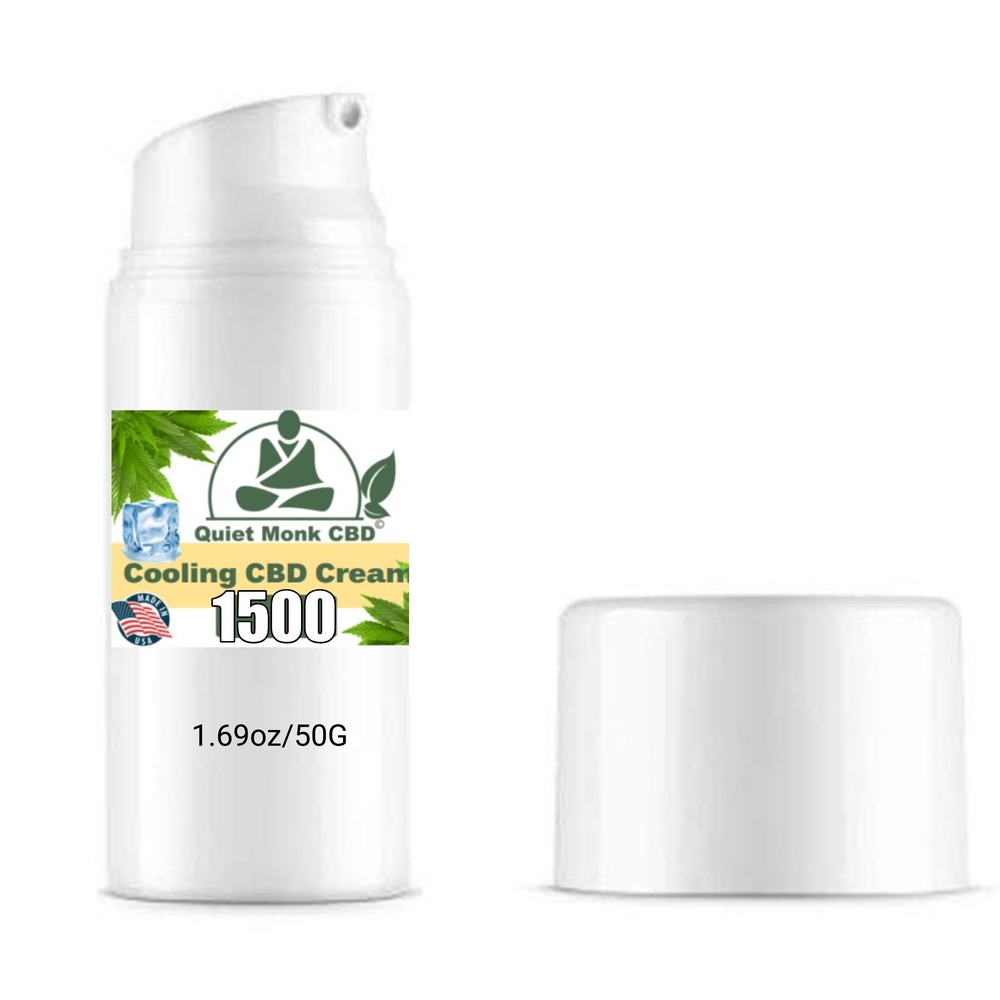
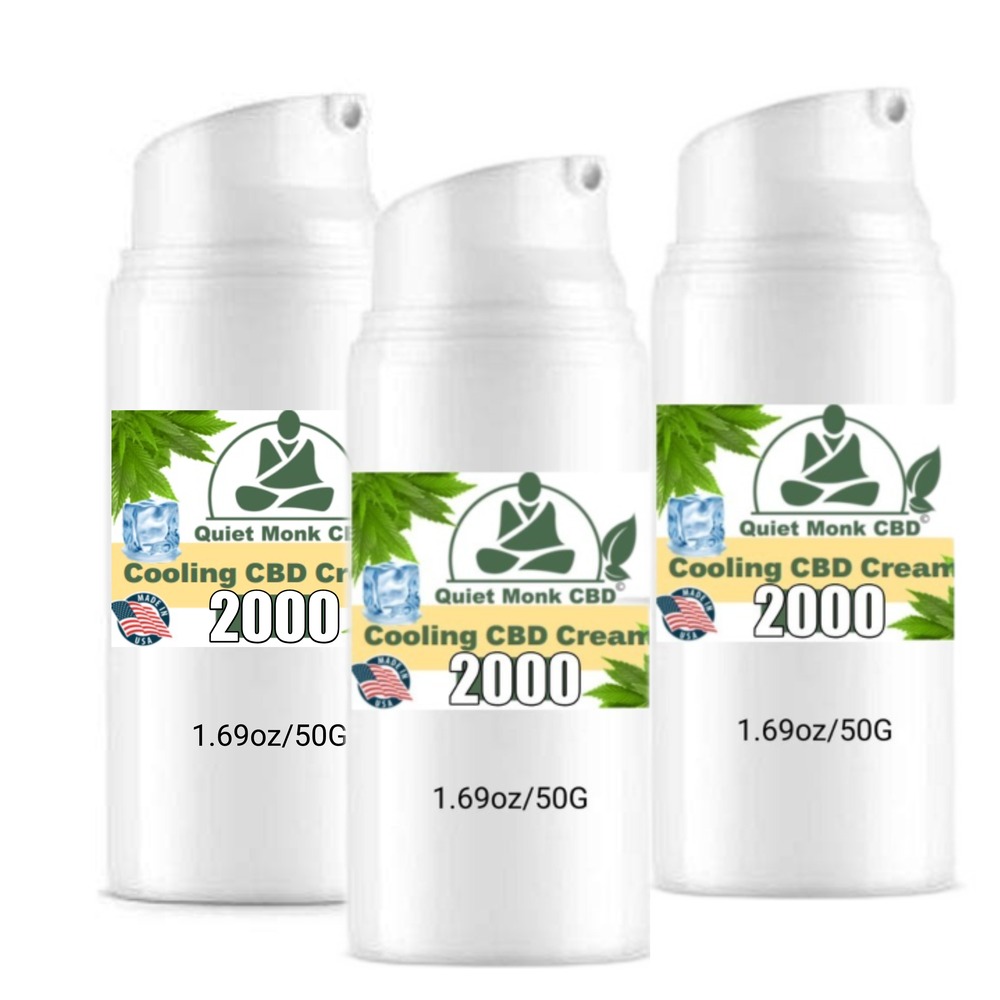
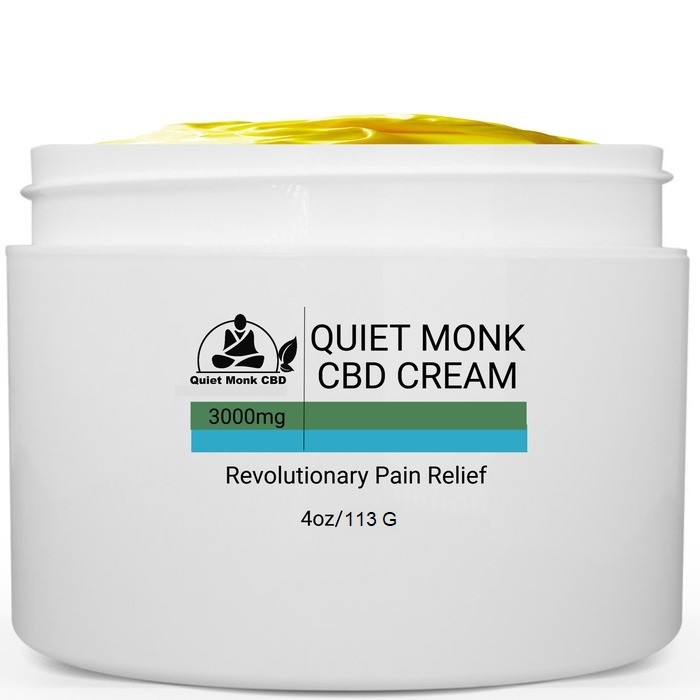
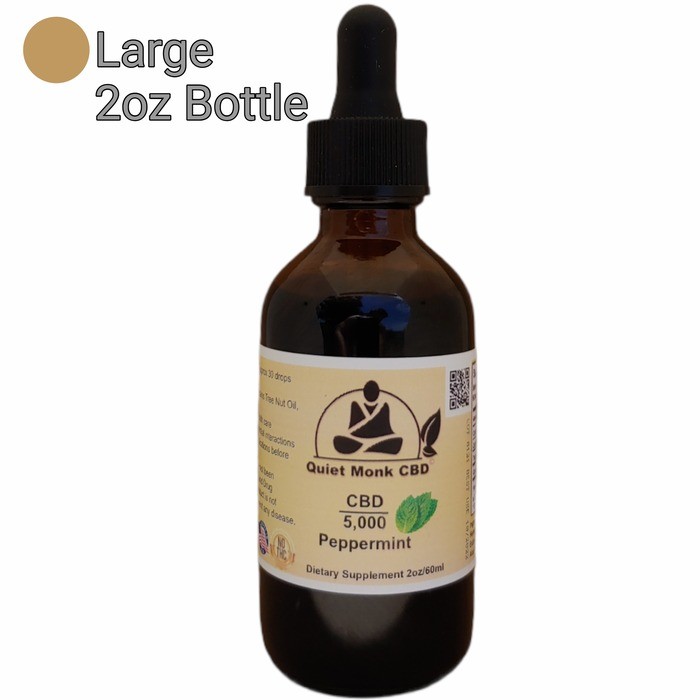
To protect yourself from fraudulent CBD companies, it is recommended to educate yourself on what to look for when purchasing CBD products.
In conclusion, CBD is completely legal in Michigan, aligning with the federal guidelines set forth in the Farm Bill. Michigan’s CBD laws do not have any ambiguous areas or unusual regulations pertaining to hemp or hemp-derived products.
To summarize the legalities of CBD oil in Michigan:
Conclusion A Clear Understanding of CBD Legality in Michigan
In conclusion, CBD oil is completely legal in Michigan, aligning with the federal guidelines set forth in the Farm Bill. Michigan’s CBD laws do not have any ambiguous areas or unusual regulations pertaining to hemp or hemp-derived products.
To summarize the legalities of CBD oil in Michigan:
Michigan residents have the freedom to explore the benefits of CBD without the fear of legal repercussions. Whether seeking relief from pain, inflammation, seizures, or anxiety, CBD offers a natural alternative worth considering.
Remember, it is always recommended to consult with a healthcare professional before incorporating CBD into your wellness routine, especially if you are currently taking any medications or have underlying medical conditions.
With a clear understanding of the laws and licensing requirements surrounding CBD in Michigan, individuals can confidently explore the world of CBD products and their potential benefits.
Please note that while the information provided in this article is accurate at the time of writing, it is always advisable to stay updated on any changes to state or federal regulations regarding CBD.
Choose reputable sources, educate yourself on product quality, and enjoy the benefits of CBD within the legal framework of Michigan.
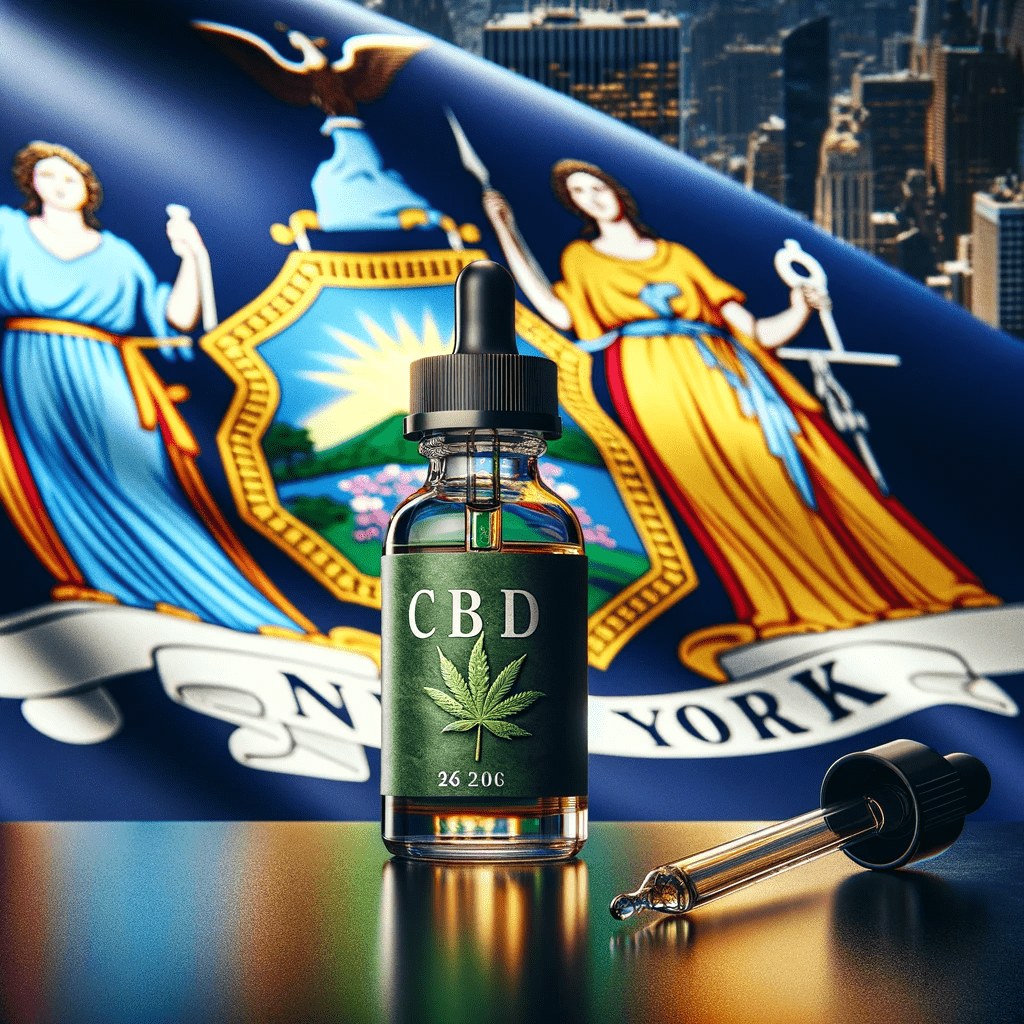
Are you wondering about the legality of CBD in New York? Can you easily purchase CBD oil in the state? In this legislative review, we’ll address these questions and provide more information.
CBD derived from hemp is legal in New York. The state follows the federal guidelines outlined in the Farm Bill, which states that CBD products are legal as long as they contain less than 0.3% THC.
Now, let’s delve deeper into the CBD laws and licensing requirements specific to New York. But yes, it is legal in he state of New York!
Continue reading Is CBD Legal in New York?Are CBD and CBD oil legal in the state of Delaware? Can individuals purchase CBD oil in Delaware? In this legislative review, we will address these inquiries and provide additional information on the subject.
In summary, CBD derived from hemp is legal in Delaware. The state adheres to the federal guidelines established by the Farm Bill, which stipulate that CBD products are legal as long as their THC content is below 0.3%.

First, let’s understand what CBD is and its relation to cannabis. CBD, short for cannabidiol, is a non-psychoactive compound derived from the cannabis plant. It is one of over 100 different cannabinoids found in the hemp plant. While CBD has gained significant attention, researchers are also exploring the potential benefits of other cannabinoids. CBD can be found in various products such as gummies, balms, pills, and tinctures, among others.
Studies indicate that CBD possesses numerous beneficial properties, including anti-inflammatory, anti-oxidative, pain relief, anti-seizure, and anxiety relief properties. It has shown promising results in various medical field studies.
To better understand Delaware’s laws, it’s important to recognize that CBD is a derivative of cannabis. However, it is essential to note that CBD is distinct from marijuana. Both industrial hemp and marijuana fall under the cannabis plant species. CBD is a non-psychoactive relative of THC, meaning it does not produce a high. As long as CBD is derived from hemp and contains less than 0.3% THC, it does not possess the psychoactive effects associated with marijuana.
Federal regulations currently require all CBD products to originate from hemp to maintain federal legality. With a THC content of 0.3% or less, CBD products do not produce intoxicating effects.
In fact, this THC concentration is so low that consuming a considerable amount of CBD oil would not result in a high. Many individuals prefer CBD oil as a natural alternative to medications with harsh side effects. The research and development investments in CBD oil have been extensive in recent years.
It’s worth noting that the FDA is still developing its approval process for CBD. Until this process is finalized, CBD oil cannot achieve the status of a dietary supplement.
Why is CBD illegal in some places? The legality of CBD varies from state to state. While CBD is federally legal, individual states have their own laws governing its use. While most states have followed the guidelines set by the 2018 Farm Bill, some states regulate finished CBD products more strictly.
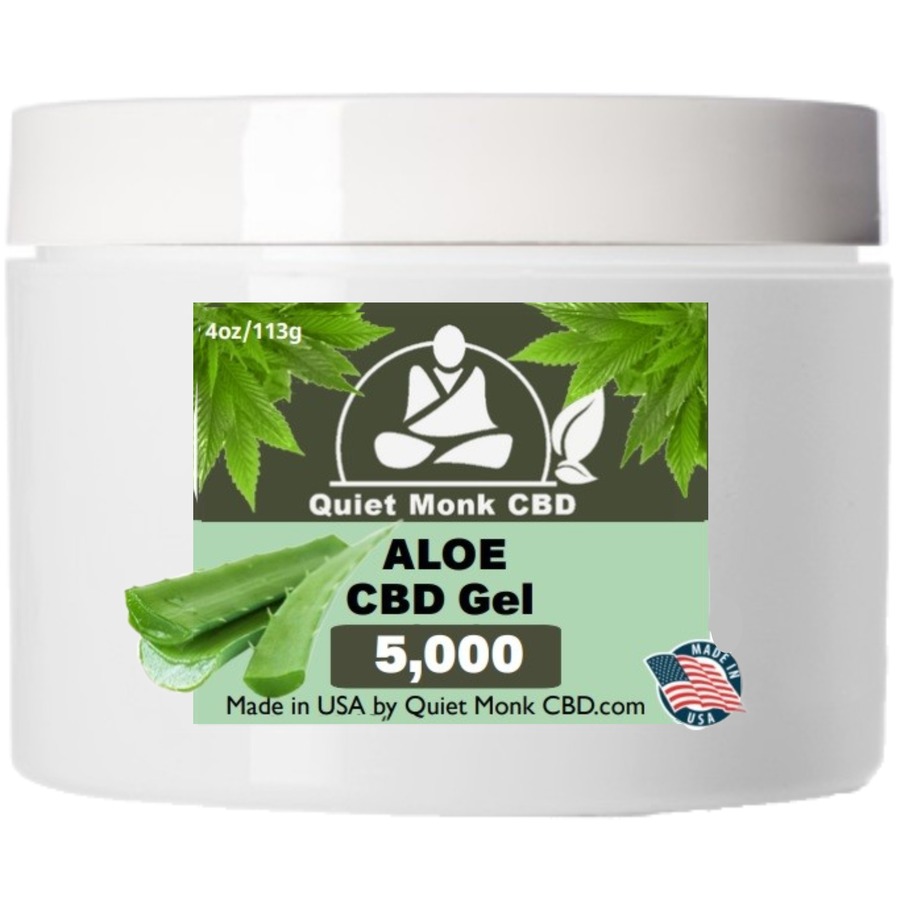

The state’s definition of hemp includes the plant Cannabis sativa L., and any part of the plant, regardless of whether it is growing or not, with a delta-9 tetrahydrocannabinol concentration of no more than 0.3% on a dry weight basis.
In contrast, some more conservative states associate CBD with marijuana, even though CBD itself is non-psychoactive. Consequently, these states have stricter regulations regarding hemp.
The 2018 Farm Bill brought significant changes for hemp and industrial hemp products. It legalized the cultivation of hemp for recreational purposes. The bill specifically removed hemp, defined as cannabis containing less than 0.3% THC by weight, from the list of controlled substances. Cannabis as a whole is also currently under consideration for removal from the same list.
The Food and Drug Administration (FDA) has the authority to regulate CBD oil product labeling, monitor therapeutic claims, and oversee the usage of CBD for recreational and dietary purposes. Currently, the FDA does not allow the advertisement of hemp-derived CBD oil as a dietary supplement or as an additive to food and beverages.
The FDA must authorize any health claims made by CBD oil products. To date, only one medication, Epidiolex, has received such designation. While the FDA has maintained strict regulations, it has recently shown signs of considering appropriate legislation regarding labeling CBD oil as a dietary supplement.
Additionally, the Farm Bill grants states the authority to decide whether to allow or disallow the cultivation and business of CBD.
Is CBD legal in Delaware? Yes, CBD products are legal in the state. Delaware follows the same federal guidelines outlined in the Farm Bill of 2018. To ensure compliance with the law, individuals looking to purchase CBD products in Delaware should seek those derived from hemp and containing less than 0.3% THC.
Licensing requirements for CBD in Delaware are not necessary for products with THC content below 0.3%, according to state law. The regulations for hemp growers and processors are covered under the Delaware Hemp Program (Senate Bill 266). Individuals intending to grow, cultivate, or distribute hemp must apply to be a Delaware Domestic Hemp Production Program Producer, with renewals required every three years. For more information on renewals or new applications, please visit the following website: https://agriculture.delaware.gov/plant-industries/hemp-program/
Regarding CBD possession limits in Delaware, individuals are permitted to possess CBD items without the need for a license.
If you wish to purchase CBD in Delaware, CBD oil products, including hemp oil, can be found in various places. Consumers have the option of buying CBD oil and hemp-derived CBD products from online stores or brick-and-mortar retailers.
However, it’s important to exercise caution when purchasing CBD oil 10,000 online. With numerous brands in the market, it’s essential to choose a reputable company. Quiet Monk CBD, a family-owned and operated CBD company, offers premium CBD oil backed by a 30-day money-back guarantee. Consider exploring our products before making a purchase to ensure quality and reliability.

It’s worth noting that a study conducted by the FDA in the summer of 2020 revealed that approximately 25% of CBD products from different brands were either fake, under-dosed, or mislabeled. Given the expense of CBD products, it is crucial to avoid scams and make informed purchases.
In summary, CBD oil is completely legal in Delaware, and the state aligns with the federal guidelines stated in the Farm Bill. Delaware’s laws surrounding hemp and hemp-derived products are clear, without any ambiguous regulations. For federal guidelines on CBD products, please keep the following in mind:
That concludes our coverage of the legalities surrounding CBD oil in Delaware.